hedonic treadmill
description: the observed tendency for humans to quickly return to a stable level of happiness despite positive or negative life changes.
80 results
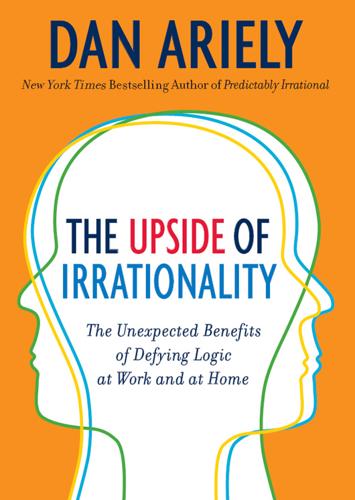
The Upside of Irrationality: The Unexpected Benefits of Defying Logic at Work and at Home
by
Dan Ariely
Published 31 May 2010
“Time heals all wounds” precisely because, over time, you will partially adapt to the state of your world. The Hedonic Treadmill By failing to anticipate the extent of our hedonic adaptation, as consumers we routinely escalate our purchases, hoping that new stuff will make us happier. Indeed, a new car feels wonderful, but sadly, the feeling lasts for only a few months. We get used to driving the car, and the buzz wears off. So we look for something else to make us happy: maybe new sunglasses, a computer, or another new car. This cycle, which is what drives us to keep up with the Joneses, is also known as the hedonic treadmill. We look forward to the things that will make us happy, but we don’t realize how short-lived this happiness will be, and when adaptation hits we look for the next new thing.
…
mismatching of money and need and, 250–51 motivating people to take action and, 252–56 Chat Circles, 225 cheating, 76 childbirth, pain of, 168, 169n children: in growing and preparing of food, 121 parents’ overvaluation of, 97–98 chimpanzees, sense of fairness in, 127 chores, taking breaks in, 177–79, 180 civil liberties, erosion of, 158 Clark, Andrew, 169 climate change, 251–52 closeness, empathy and, 243, 245, 254 clutch abilities, 39–41 CNN, 238 Coates, Dan, 170 cockroaches, social pressure in, 45–46 commercial breaks, enjoyment of television and, 181n comparisons, hedonic adaptation and, 189 compensation, 47 changes in, job satisfaction and, 169–70 see also bonuses completion: employees’ sense of, 77, 79–80 Loewenstein’s analysis of mountaineering and, 80–81 computers, 233 consumer purchases, 185–88 happiness derived from transient experiences vs., 187–88 hedonic treadmill and, 175 placing limits on, 186–87 reducing, 185–86 spacing of, 185, 186 contrafreeloading, 60–63 Jensen’s study of, 60–62, 63 standard economic view at odds with, 62–63 Converse, 95 cooking: children’s involvement in, 121 enjoyment factor and, 62n, 105–6 semi-preprepared food and, 85–88 CO2 emissions, 251–52 counting strategies, 282–83 Count of Monte Cristo, The (Dumas), 123 creation, pride of: ideas and, see Not-Invented-Here (NIH) bias self-made goods and, see IKEA effect creativity, bonuses and improvements in, 47–48 Csíkszentmihályi, Mihály, 49 cultures, organizational: acronyms and, 120 Not-Invented-Here bias and, 119–21 customer revenge, 131–51 against airlines, 142–43 apologies and, 149–51, 152 author’s experience with Audi customer service and, 131–36, 137, 147–49, 153–54 distinction between agents and principals and, 144–47 Farmer and Shane’s “Yours Is a Very Bad Hotel” and, 140–41, 146 fictional case study for Harvard Business Review on, 147–49 increase in, 143 Neistat brothers’ video on Apple’s customer service and, 141–42 passage of time and, 151 phone call interruption experiments on, 135–39, 145–46, 150–51 customization, 94–96 of cars, 88, 89, 94 effort expended in, 89, 95–96 overvaluation despite removing possibility of, 96 of shoes, 95, 96 D Dallaire, Roméo, 255 Darfur, 238, 253 Dart Ball game, 23, 34 Darwin, Charles, 157 dating, 191–235 market failures in, 213–15, 216–17, 220–21, 230–32, 233–35 playing hard to get and, 104 standard practice of, 224–25, 227–28 yentas (matchmakers) and, 213 see also assortative mating; online dating; speed dating decision making: author’s medical care and, 284–88 cooling off before, 257, 279 emotions and, 261–77 gender differences and, 274–76 irreversible decisions and, 285, 286 rationalization of choices in, 287 from rational perspective, 5–6 short-term, long-term decisions affected by, 264–65, 270–74, 276–77 stability of strategies for, 261–65; see also self-herding ultimatum game and, 265–70, 275–76 dentistry, adaptation to pain and, 161–62 design, taking people’s physical limitations into account in, 230–32 destroying work in front of workers, 74–76 Dichter, Ernest, 86 disease: adaptation to pain and, 165, 167 preventative health care and, 251, 256 “survivor” rhetoric and, 241–42 Disney, 154 distraction, performance-based incentives and, 30, 36 division of labor, 77–80 IT infrastructure and, 77, 79–80 Marx’s alienation notion and, 79 Smith’s observations on, 77–78 divorce, foreseeing outcome of, 173 Dodson, John, 18–20, 22, 31, 47 do-it-yourself projects, see IKEA effect Donath, Judith, 225 Dostoyevsky, Fyodor, 157 Doubletree Club, Houston, 140–41, 146 dreams, author’s self-image in, 182–83 DreamWorks SKG, 154 driving: momentary anger during, 261 safety precautions and, 6–7 texting during, 6, 7, 8 see also cars drop-in-the-bucket effect, 244–45, 252, 254–55 Dumas, Alexandre, 123 E Eastwick, Paul, 172–73 Edison, Thomas, 117–19, 122 effort: increase in value related to, 89, 90, 95–96, 105–6; see also IKEA effect joy derived from activity and, 71–72 meaningful work conditions and, 72 ownership of ideas and, 114–16 see also labor egg theory, 86–88 Eisner, Michael, 154 electric chair, 119 electricity, alternating current (AC) vs. direct current (DC), 117–19 emotional cascades, 265–78 gender differences and, 274–76 romantic relationships and, 277–78 ultimatum game and, 265–76 emotional priming: empathy for plight of others and, 246–48 ultimatum game and, 268–70 emotions, 43, 237–79 appeals to, willingness to help others and, 240–42, 248–50, 253–54, 256 decision making and, 261–77; see also decision making in past, humans’ poor memory of, 264 transience of, 257, 261, 270 see also empathy; negative feelings, acting on empathy: animals’ suffering and, 249, 252 apathy toward statistical victims and, 238–41, 242, 246, 247–49, 252–53 Baby Jessica saga and, 237–38 calculating vs. emotional priming and, 246–48 clear moral principles and, 255 closeness and, 243, 245, 254 drop-in-the-bucket effect and, 244–45, 252, 254–55 emotional appeals and, 240���42, 248–50, 253–54, 256 global warming and, 251–52 identifiable victim effect and, 239–42, 248, 256 overcoming barriers to, 252–56 rules to guide our behavior and, 254–55 thought experiment of drowning girl and, 242–43, 245 toward one person vs. many in need, 237–56 vividness and, 24, 243n, 244, 245 endowment effect, 285, 286 Enron, 216 evolution, mismatch between speed of technological development and, 8–9 experiments, 10–11, 288–95 business or public policy and, 292–94, 295 of Gideon, 288–89 medical practice and, 289–92 rational economists’ criticisms of, 49–51 see also specific topics Exxon Valdez oil spill, 249 F fairness, sense of: in chimpanzees, 127 decision making and, 266–67; see also ultimatum game gender differences and, 275–76 Fallows, James, 158 Farmer, Tom, 140–41, 146, 148–49 FedEx, 108–9 feedback, about work, 74–76 Feeks, John, 118–19 Fehr, Ernst, 125–26 financial incentives: meaning of labor and, 72–73, 76 see also bonuses financial markets, safety measures for, 7 financial meltdown of 2008, 7, 21, 216 chronology of events in, 129–30 desire for revenge in wake of, 128–31 lack of experimental approach to, 293 outraged public reaction to bailout in, 128–29, 130 Finkel, Eli, 172–73 First Knight, 50 fixation, pride in creation and ownership and, 89, 122 food: animals’ preference for working for, 59–63 semi-preprepared, 85–88 shortages of, identifiable victim effect and, 239–41 see also cooking Food and Drug Administration (FDA), 292 Ford, Henry, 78–79, 94 Forgea (white terrier), 249 Fox, Michael J., 254 “Fox and the Grapes, The” (Aesop), 198–99 Frank, Barney, 41 Frankl, Viktor, 45 free food, animals’ preference for working for food vs., 60–62 Frenk, Hanan, 161–65, 300 Friends, ultimatum game and, 269, 270–71, 272 frog experiment, 157–58 Frost, Jeana, 219–20, 229, 300 Fryer, Bronwyn, 148 furniture, do-it-yourself, 83–84, 96, 105, 106 future, foreseeing adaptation to changes in, 160, 171–74 G gardening: children growing food and, 121 enjoyment factor and, 105–6 gender differences: assortative mating and, 209, 211 decision making and, 274–76 pain threshold and tolerance and, 168–69 Gideon, 288–89 global warming, 158, 251–52 Gneezy, Ayelet, 135, 144–45, 150, 300–301 Gneezy, Uri, 21, 44, 301 Gore, Al, 158, 252 government policies, experimental approach to, 292–94, 295 H happiness: comparisons to other people and, 189 consumer purchases and, 175, 185–88 inaccurate predictions about, 170–71 return to baseline of, 170 transient vs. constant experiences and, 187–88 Harvard Business Review (HBR), 147–49 health care, see medical care hedonic adaptation, 160–84 to annoying experiences, 177–79, 180 author’s personal history and, 181–84, 189 blindness and, 172–74 breaking up experiences and, 177–81 changes in workers’ pay and, 169–70 comparisons to other people and, 189 consumer purchases and, 175, 185–88 extending pleasurable experiences and, 176–78, 179–81, 185, 186 in future, foreseeing of, 160, 171–74 happiness baseline and, 170 life-altering injuries and, 171–72, 174 moving to California and, 176 new houses and, 168–69 pain and, 160–67 romantic breakups and, 172–73 to transient vs. constant experiences, 187–88 using our understanding of, 176–81, 184–90 hedonic disruptions, 177–81 hedonic treadmill, 175 Heingartner, Alexander, 45–46 Henry, O., 98 herding, 262 see also self-herding Herman, Edward, 45–46 Hippocrates, 82 Hogerty, Megan, 81 homeostatic mechanisms, 81 Hong, James, 201, 203 HOT or NOT study, 201–5, 208 gender differences in, 209, 211 Meet Me feature and, 204–5, 208, 209 humor, sense of, 199, 200, 207, 208, 228 Hurricane Katrina, 250, 251 I ideas: attachment to, see Not-Invented-Here (NIH) bias idiosyncratic fit and, 111–12 identifiable victim effect, 239–42, 248, 256 American Cancer Society and, 241–42 identity, connection between work and, 53–55, 79 idiosyncratic fit, ideas and, 111–12 ignoring workers, 74–76 IKEA, 83–84, 106 IKEA effect, 83–106 author’s creations in rehabilitation center and, 100–101 completion of project and, 101–4, 105 do-it-yourself furniture and, 83–84, 96, 106 effort expended and, 89, 90, 95–96, 105–6 four principles in, 104–5 and lack of awareness of overvaluation, 99 Legos experiment and, 96, 97 Local Motors cars and, 88, 89 Not-Invented-Here (NIH) bias and, 109–10, 121 origami experiments and, 91–94, 97, 98–99, 102–4 parents’ overvaluation of their children and, 97–98 practical implications of, 121–22 relaxation notion and, 105–6 removal of individual customization and, 96 semi-preprepared food and, 85–88 shoe design and, 95, 96 immediate gratification, 5 Inconvenient Truth, An, 252 initiation into social groups, 89 injuries: association of pain with getting better after, 166–67 author’s dating prospects and, 191–96, 210–11 author’s decisions about his medical care and, 284–88 author’s personal history related to, 1–4, 13, 107, 160–62, 166–67, 181–84, 189, 191–96, 210–11, 281–88 battlefield vs. civilian, 167 foreseeing future after, 160 life-altering, adaptation to, 160, 171–72, 174 pain thresholds and tolerance related to severity of, 161–65 Institute for Evolutionary Anthropology, Leipzig, Germany, 126–27 insurance products, 233–34 interruptions: in pleasant vs. painful experiences, 177–81 TV commercials and, 181n see also phone call interruption experiments intuitions: bonuses and, 36–37 received medical wisdom and, 289–92 romantic, 172–73 testing of, 10n, 288–95 inverse-U relationship, defined, 19 iPods and iPhones, battery replacement in, 141–42 irrationality: summary of findings on, 288 upside as well as downside of, 11–12, 294 irreversible decisions, 285, 286 IT infrastructure, division and meaning of labor and, 77, 79–80 J Janoff-Bulman, Ronnie, 170 Jensen, Glen, 60–62, 63 Jensen, Keith, 127 Jewish tradition, 254–55 Johns Hopkins Bloomberg School of Public Health, Baltimore, 152 Joyless Economy, The (Scitovsky), 188 justice, see fairness, sense of K Kahneman, Danny, 32n, 175–76 Kamenica, Emir, 66, 301 Katzenberg, Jeffrey, 154 Kemmler, William, 119 kinship, empathy and, 243 Krishnamurti, Tamar, 172–73 Krzyzewski, Mike, 39 L labor: connection between identity and, 53–55, 79 contrafreeloading and, 60–63 economic model of, 55, 62–63, 105 financial incentives and, see bonuses meaning of, see meaning of labor overvaluation resulting from, see IKEA effect on projects without meaning, 56–57, 63–72 Labyrinth game, 23 Lee, Leonard, 132, 134, 197, 201–2, 301–2 Lee, Sandra, 87–88 leeches, medicinal use of, 290–91 Legos experiments: on IKEA effect, 96, 97 on reducing meaningfulness of work, 66–74, 77, 80 letter-pairs experiment, 74–76, 80 life-altering events, hedonic adaptation and, 170 Life as a House, ultimatum game and, 268, 269, 270, 272, 276 light, adaptation to changes in, 159 Local Motors, Inc., 88, 89 Loewenstein, George, 21, 44, 80–81, 172–73, 197, 201–2, 239–41, 246–48, 302 long-term objectives, short-term enjoyments vs., 4–5 loss aversion, 32–33, 285, 286 lottery winners, hedonic adaptation of, 170, 171 “Love the One You’re With,” 197, 211–12 M malaria, 250, 251 Man’s Search for Meaning (Frankl), 45 marketing, adaptation and, 158 market mechanisms, 215–16 dating and, 213–15, 216–17, 220–21, 230–32, 233–35 Marx, Karl, 79 massages, extending pleasure of, 179–80 matchmakers (yentas), 213 Mazar, Nina, 21, 30, 44, 302 McClure, Jessica (Baby Jessica), 237–38 meals, see cooking meaning of labor, 53–82 in acknowledged, ignored, and shredded conditions, 74–76 animals’ preference for working for food and, 59–63 blogging and, 65 division of labor and, 77–80 draining work of meaning and, 55–57, 63–77 financial incentives and, 72–73, 76 joy derived from activity and, 71–72 labor-identity connection and, 53–55, 79 Legos experiment and, 66–74, 76, 80 lessons for workplace on, 80–82 letter-pairs experiment and, 74–76, 80 “meaning” vs.
…
Because of its generality and pervasiveness, there is also a lot that we don’t yet understand about it. For example, it is unclear whether we experience complete or just partial hedonic adaptation as we get used to new life circumstances. It is also unclear how hedonic adaptation works its magic on us or whether there are many paths to achieving it. Nevertheless, the following personal anecdotes might shed some light on this important topic. (And stay tuned, because more research on hedonic adaptation is on its way.) TO ILLUSTRATE THE complexity of hedonic adaptation, I want to share some examples of ways in which I have not fully adapted to my circumstances. Because a large part of my injury is physically observable (I have scars on my neck, face, legs, arms, and hands), soon after my injury I started paying attention to the ways people looked at me.
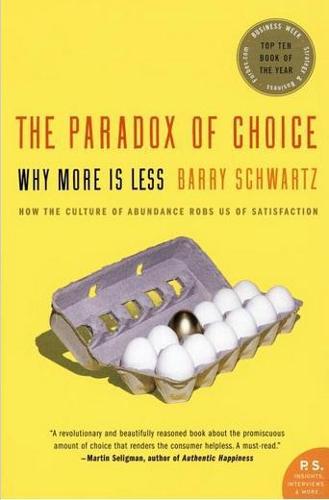
The Paradox of Choice: Why More Is Less
by
Barry Schwartz
Published 1 Jan 2004
Novelty can change someone’s hedonic standards so that what was once good enough, or even better than that, no longer is. And as we’ll see, adaptation can be especially disappointing when we’ve put much time and effort into selecting, from a myriad of possibilities, the items or experiences we end up adapting to. Hedonic Adaptation and Hedonic Treadmills IN WHAT IS PERHAPS THE MOST FAMOUS EXAMPLE OF HEDONIC ADAPTATION, respondents were asked to rate their happiness on a 5-point scale. Some of them had won between $50,000 and $1 million in state lotteries within the last year. Others had become paraplegic or quadriplegic as a result of accidents. Not surprisingly, the lottery winners were happier than those who had become paralyzed.
…
In time, these new commodities also will lose their intensity, but people still get caught up in the chase, a process that psychologists Philip Brickman and Donald Campbell labeled the hedonic treadmill. No matter how fast you run on this kind of machine, you still don’t get anywhere. And because of adaptation, no matter how good your choices and how pleasurable the results, you still end up back where you started in terms of subjective experience. Perhaps even more insidious than the hedonic treadmill is something that Daniel Kahneman calls the satisfaction treadmill. Suppose that in addition to adapting to particular objects or experiences, you also adapt to particular levels of satisfaction.
…
Landman, Regret: The Persistence of the Possible (New York: Oxford University Press, 1993). Chapter 8 In 1973 The data about car air conditioners are in D.G. Myers, The American Paradox (New Haven, CT: Yale University Press, 2000). Hedonic adaption can be For a discussion of the two different types of adaptation, and of adaptation in general, see S. Frederick and G. Loewenstein, “Hedonic Adaptation,” in D. Kahneman, E. Diener, and N. Schwarz (eds.), Well-Being: The Foundations of Hedonic Psychology (New York: Russell Sage, 1999), pp. 302–329. Two of the classic theoretical accounts of adaptation are H. Helson, Adaptation-Level Theory: An Experimental and Systematic Approach to Behavior (New York: Harper and Row, 1964), and A.
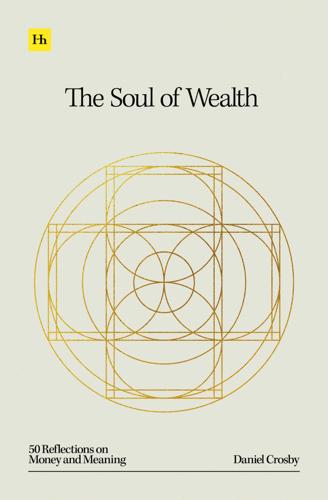
The Soul of Wealth
by
Daniel Crosby
Published 19 Sep 2024
Personal finance gurus often refer to the hedonic treadmill to describe the never-ending pursuit of wealth and serenity. But, as money wizard Frank Costanza proved to America, “serenity now” may lead to “insanity later.” So, while the hedonic adaptation helps us in a broad sense and over the long haul, in the short term it can make us do dumb things with our money. Once we become aware of this tendency toward constant seeking and dissatisfaction, the logical next question becomes, “What do I do about it?” To answer that, here are five practices to help you step off the hedonic treadmill and catch your breath.
…
Research conducted by Robert Emmons from the University of California, Davis and Michael McCollough of the University of Miami concluded that consciously focusing on one’s blessings may have both material and interpersonal benefits, leading to higher levels of well-being and overall life satisfaction.110 Mindfulness and savoring Along with always appreciating what you have, just savoring the present may help overcome hedonic adaptation by increasing awareness of the little things in life. Common activities to achieve this state include meditation, deep breathing exercises, or just taking in a beautiful sunset. A 2007 study by Bryant and Veroff found that basking in positive experiences can boost overall well-being.111 We should also heed the sage wisdom of the 1980s American philosopher Ferris Bueller: Life moves pretty fast. If you don’t stop and look around once in a while, you could miss it. Infrequent splurges Perhaps the simplest and most fun method to ditch the hedonic treadmill is to indulge.
…
Collectively, society is always forging ahead due to an instinctive desire for a better life. The deeply ingrained “not quite there” mentality of humankind has led us to explore oceans, tame the elements, and explore outer space. Hedonic adaptation also helps us assimilate to new environments, and recover from tragedy and grief. Most important to our daily functioning, hedonic adaptation also gives our brains a break. The process of speedily reverting to a mental equilibrium aids us in coping with the highs and lows of everyday life. Moreover, this psychological phenomenon is like an expert chief financial officer, allocating our brain’s resources efficiently.
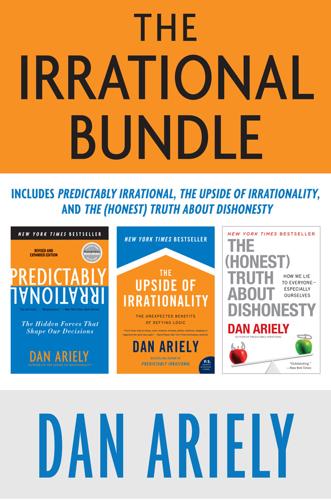
The Irrational Bundle
by
Dan Ariely
Published 3 Apr 2013
“Time heals all wounds” precisely because, over time, you will partially adapt to the state of your world. The Hedonic Treadmill By failing to anticipate the extent of our hedonic adaptation, as consumers we routinely escalate our purchases, hoping that new stuff will make us happier. Indeed, a new car feels wonderful, but sadly, the feeling lasts for only a few months. We get used to driving the car, and the buzz wears off. So we look for something else to make us happy: maybe new sunglasses, a computer, or another new car. This cycle, which is what drives us to keep up with the Joneses, is also known as the hedonic treadmill. We look forward to the things that will make us happy, but we don’t realize how short-lived this happiness will be, and when adaptation hits we look for the next new thing.
…
mismatching of money and need and, 250–51 motivating people to take action and, 252–56 Chat Circles, 225 cheating, 76 childbirth, pain of, 168, 169n children: in growing and preparing of food, 121 parents’ overvaluation of, 97–98 chimpanzees, sense of fairness in, 127 chores, taking breaks in, 177–79, 180 civil liberties, erosion of, 158 Clark, Andrew, 169 climate change, 251–52 closeness, empathy and, 243, 245, 254 clutch abilities, 39–41 CNN, 238 Coates, Dan, 170 cockroaches, social pressure in, 45–46 commercial breaks, enjoyment of television and, 181n comparisons, hedonic adaptation and, 189 compensation, 47 changes in, job satisfaction and, 169–70 see also bonuses completion: employees’ sense of, 77, 79–80 Loewenstein’s analysis of mountaineering and, 80–81 computers, 233 consumer purchases, 185–88 happiness derived from transient experiences vs., 187–88 hedonic treadmill and, 175 placing limits on, 186–87 reducing, 185–86 spacing of, 185, 186 contrafreeloading, 60–63 Jensen’s study of, 60–62, 63 standard economic view at odds with, 62–63 Converse, 95 cooking: children’s involvement in, 121 enjoyment factor and, 62n, 105–6 semi-preprepared food and, 85–88 CO2 emissions, 251–52 counting strategies, 282–83 Count of Monte Cristo, The (Dumas), 123 creation, pride of: ideas and, see Not-Invented-Here (NIH) bias self-made goods and, see IKEA effect creativity, bonuses and improvements in, 47–48 Csíkszentmihályi, Mihály, 49 cultures, organizational: acronyms and, 120 Not-Invented-Here bias and, 119–21 customer revenge, 131–51 against airlines, 142–43 apologies and, 149–51, 152 author’s experience with Audi customer service and, 131–36, 137, 147–49, 153–54 distinction between agents and principals and, 144–47 Farmer and Shane’s “Yours Is a Very Bad Hotel” and, 140–41, 146 fictional case study for Harvard Business Review on, 147–49 increase in, 143 Neistat brothers’ video on Apple’s customer service and, 141–42 passage of time and, 151 phone call interruption experiments on, 135–39, 145–46, 150–51 customization, 94–96 of cars, 88, 89, 94 effort expended in, 89, 95–96 overvaluation despite removing possibility of, 96 of shoes, 95, 96 D Dallaire, Roméo, 255 Darfur, 238, 253 Dart Ball game, 23, 34 Darwin, Charles, 157 dating, 191–235 market failures in, 213–15, 216–17, 220–21, 230–32, 233–35 playing hard to get and, 104 standard practice of, 224–25, 227–28 yentas (matchmakers) and, 213 see also assortative mating; online dating; speed dating decision making: author’s medical care and, 284–88 cooling off before, 257, 279 emotions and, 261–77 gender differences and, 274–76 irreversible decisions and, 285, 286 rationalization of choices in, 287 from rational perspective, 5–6 short-term, long-term decisions affected by, 264–65, 270–74, 276–77 stability of strategies for, 261–65; see also self-herding ultimatum game and, 265–70, 275–76 dentistry, adaptation to pain and, 161–62 design, taking people’s physical limitations into account in, 230–32 destroying work in front of workers, 74–76 Dichter, Ernest, 86 disease: adaptation to pain and, 165, 167 preventative health care and, 251, 256 “survivor” rhetoric and, 241–42 Disney, 154 distraction, performance-based incentives and, 30, 36 division of labor, 77–80 IT infrastructure and, 77, 79–80 Marx’s alienation notion and, 79 Smith’s observations on, 77–78 divorce, foreseeing outcome of, 173 Dodson, John, 18–20, 22, 31, 47 do-it-yourself projects, see IKEA effect Donath, Judith, 225 Dostoyevsky, Fyodor, 157 Doubletree Club, Houston, 140–41, 146 dreams, author’s self-image in, 182–83 DreamWorks SKG, 154 driving: momentary anger during, 261 safety precautions and, 6–7 texting during, 6, 7, 8 see also cars drop-in-the-bucket effect, 244–45, 252, 254–55 Dumas, Alexandre, 123 E Eastwick, Paul, 172–73 Edison, Thomas, 117–19, 122 effort: increase in value related to, 89, 90, 95–96, 105–6; see also IKEA effect joy derived from activity and, 71–72 meaningful work conditions and, 72 ownership of ideas and, 114–16 see also labor egg theory, 86–88 Eisner, Michael, 154 electric chair, 119 electricity, alternating current (AC) vs. direct current (DC), 117–19 emotional cascades, 265–78 gender differences and, 274–76 romantic relationships and, 277–78 ultimatum game and, 265–76 emotional priming: empathy for plight of others and, 246–48 ultimatum game and, 268–70 emotions, 43, 237–79 appeals to, willingness to help others and, 240–42, 248–50, 253–54, 256 decision making and, 261–77; see also decision making in past, humans’ poor memory of, 264 transience of, 257, 261, 270 see also empathy; negative feelings, acting on empathy: animals’ suffering and, 249, 252 apathy toward statistical victims and, 238–41, 242, 246, 247–49, 252–53 Baby Jessica saga and, 237–38 calculating vs. emotional priming and, 246–48 clear moral principles and, 255 closeness and, 243, 245, 254 drop-in-the-bucket effect and, 244–45, 252, 254–55 emotional appeals and, 240–42, 248–50, 253–54, 256 global warming and, 251–52 identifiable victim effect and, 239–42, 248, 256 overcoming barriers to, 252–56 rules to guide our behavior and, 254–55 thought experiment of drowning girl and, 242–43, 245 toward one person vs. many in need, 237–56 vividness and, 24, 243n, 244, 245 endowment effect, 285, 286 Enron, 216 evolution, mismatch between speed of technological development and, 8–9 experiments, 10–11, 288–95 business or public policy and, 292–94, 295 of Gideon, 288–89 medical practice and, 289–92 rational economists’ criticisms of, 49–51 see also specific topics Exxon Valdez oil spill, 249 F fairness, sense of: in chimpanzees, 127 decision making and, 266–67; see also ultimatum game gender differences and, 275–76 Fallows, James, 158 Farmer, Tom, 140–41, 146, 148–49 FedEx, 108–9 feedback, about work, 74–76 Feeks, John, 118–19 Fehr, Ernst, 125–26 financial incentives: meaning of labor and, 72–73, 76 see also bonuses financial markets, safety measures for, 7 financial meltdown of 2008, 7, 21, 216 chronology of events in, 129–30 desire for revenge in wake of, 128–31 lack of experimental approach to, 293 outraged public reaction to bailout in, 128–29, 130 Finkel, Eli, 172–73 First Knight, 50 fixation, pride in creation and ownership and, 89, 122 food: animals’ preference for working for, 59–63 semi-preprepared, 85–88 shortages of, identifiable victim effect and, 239–41 see also cooking Food and Drug Administration (FDA), 292 Ford, Henry, 78–79, 94 Forgea (white terrier), 249 Fox, Michael J., 254 “Fox and the Grapes, The” (Aesop), 198–99 Frank, Barney, 41 Frankl, Viktor, 45 free food, animals’ preference for working for food vs., 60–62 Frenk, Hanan, 161–65, 300 Friends, ultimatum game and, 269, 270–71, 272 frog experiment, 157–58 Frost, Jeana, 219–20, 229, 300 Fryer, Bronwyn, 148 furniture, do-it-yourself, 83–84, 96, 105, 106 future, foreseeing adaptation to changes in, 160, 171–74 G gardening: children growing food and, 121 enjoyment factor and, 105–6 gender differences: assortative mating and, 209, 211 decision making and, 274–76 pain threshold and tolerance and, 168–69 Gideon, 288–89 global warming, 158, 251–52 Gneezy, Ayelet, 135, 144–45, 150, 300–301 Gneezy, Uri, 21, 44, 301 Gore, Al, 158, 252 government policies, experimental approach to, 292–94, 295 H happiness: comparisons to other people and, 189 consumer purchases and, 175, 185–88 inaccurate predictions about, 170–71 return to baseline of, 170 transient vs. constant experiences and, 187–88 Harvard Business Review (HBR), 147–49 health care, see medical care hedonic adaptation, 160–84 to annoying experiences, 177–79, 180 author’s personal history and, 181–84, 189 blindness and, 172–74 breaking up experiences and, 177–81 changes in workers’ pay and, 169–70 comparisons to other people and, 189 consumer purchases and, 175, 185–88 extending pleasurable experiences and, 176–78, 179–81, 185, 186 in future, foreseeing of, 160, 171–74 happiness baseline and, 170 life-altering injuries and, 171–72, 174 moving to California and, 176 new houses and, 168–69 pain and, 160–67 romantic breakups and, 172–73 to transient vs. constant experiences, 187–88 using our understanding of, 176–81, 184–90 hedonic disruptions, 177–81 hedonic treadmill, 175 Heingartner, Alexander, 45–46 Henry, O., 98 herding, 262 see also self-herding Herman, Edward, 45–46 Hippocrates, 82 Hogerty, Megan, 81 homeostatic mechanisms, 81 Hong, James, 201, 203 HOT or NOT study, 201–5, 208 gender differences in, 209, 211 Meet Me feature and, 204–5, 208, 209 humor, sense of, 199, 200, 207, 208, 228 Hurricane Katrina, 250, 251 I ideas: attachment to, see Not-Invented-Here (NIH) bias idiosyncratic fit and, 111–12 identifiable victim effect, 239–42, 248, 256 American Cancer Society and, 241–42 identity, connection between work and, 53–55, 79 idiosyncratic fit, ideas and, 111–12 ignoring workers, 74–76 IKEA, 83–84, 106 IKEA effect, 83–106 author’s creations in rehabilitation center and, 100–101 completion of project and, 101–4, 105 do-it-yourself furniture and, 83–84, 96, 106 effort expended and, 89, 90, 95–96, 105–6 four principles in, 104–5 and lack of awareness of overvaluation, 99 Legos experiment and, 96, 97 Local Motors cars and, 88, 89 Not-Invented-Here (NIH) bias and, 109–10, 121 origami experiments and, 91–94, 97, 98–99, 102–4 parents’ overvaluation of their children and, 97–98 practical implications of, 121–22 relaxation notion and, 105–6 removal of individual customization and, 96 semi-preprepared food and, 85–88 shoe design and, 95, 96 immediate gratification, 5 Inconvenient Truth, An, 252 initiation into social groups, 89 injuries: association of pain with getting better after, 166–67 author’s dating prospects and, 191–96, 210–11 author’s decisions about his medical care and, 284–88 author’s personal history related to, 1–4, 13, 107, 160–62, 166–67, 181–84, 189, 191–96, 210–11, 281–88 battlefield vs. civilian, 167 foreseeing future after, 160 life-altering, adaptation to, 160, 171–72, 174 pain thresholds and tolerance related to severity of, 161–65 Institute for Evolutionary Anthropology, Leipzig, Germany, 126–27 insurance products, 233–34 interruptions: in pleasant vs. painful experiences, 177–81 TV commercials and, 181n see also phone call interruption experiments intuitions: bonuses and, 36–37 received medical wisdom and, 289–92 romantic, 172–73 testing of, 10n, 288–95 inverse-U relationship, defined, 19 iPods and iPhones, battery replacement in, 141–42 irrationality: summary of findings on, 288 upside as well as downside of, 11–12, 294 irreversible decisions, 285, 286 IT infrastructure, division and meaning of labor and, 77, 79–80 J Janoff-Bulman, Ronnie, 170 Jensen, Glen, 60–62, 63 Jensen, Keith, 127 Jewish tradition, 254–55 Johns Hopkins Bloomberg School of Public Health, Baltimore, 152 Joyless Economy, The (Scitovsky), 188 justice, see fairness, sense of K Kahneman, Danny, 32n, 175–76 Kamenica, Emir, 66, 301 Katzenberg, Jeffrey, 154 Kemmler, William, 119 kinship, empathy and, 243 Krishnamurti, Tamar, 172–73 Krzyzewski, Mike, 39 L labor: connection between identity and, 53–55, 79 contrafreeloading and, 60–63 economic model of, 55, 62–63, 105 financial incentives and, see bonuses meaning of, see meaning of labor overvaluation resulting from, see IKEA effect on projects without meaning, 56–57, 63–72 Labyrinth game, 23 Lee, Leonard, 132, 134, 197, 201–2, 301–2 Lee, Sandra, 87–88 leeches, medicinal use of, 290–91 Legos experiments: on IKEA effect, 96, 97 on reducing meaningfulness of work, 66–74, 77, 80 letter-pairs experiment, 74–76, 80 life-altering events, hedonic adaptation and, 170 Life as a House, ultimatum game and, 268, 269, 270, 272, 276 light, adaptation to changes in, 159 Local Motors, Inc., 88, 89 Loewenstein, George, 21, 44, 80–81, 172–73, 197, 201–2, 239–41, 246–48, 302 long-term objectives, short-term enjoyments vs., 4–5 loss aversion, 32–33, 285, 286 lottery winners, hedonic adaptation of, 170, 171 “Love the One You’re With,” 197, 211–12 M malaria, 250, 251 Man’s Search for Meaning (Frankl), 45 marketing, adaptation and, 158 market mechanisms, 215–16 dating and, 213–15, 216–17, 220–21, 230–32, 233–35 Marx, Karl, 79 massages, extending pleasure of, 179–80 matchmakers (yentas), 213 Mazar, Nina, 21, 30, 44, 302 McClure, Jessica (Baby Jessica), 237–38 meals, see cooking meaning of labor, 53–82 in acknowledged, ignored, and shredded conditions, 74–76 animals’ preference for working for food and, 59–63 blogging and, 65 division of labor and, 77–80 draining work of meaning and, 55–57, 63–77 financial incentives and, 72–73, 76 joy derived from activity and, 71–72 labor-identity connection and, 53–55, 79 Legos experiment and, 66–74, 76, 80 lessons for workplace on, 80–82 letter-pairs experiment and, 74–76, 80 “meaning” vs.
…
Because of its generality and pervasiveness, there is also a lot that we don’t yet understand about it. For example, it is unclear whether we experience complete or just partial hedonic adaptation as we get used to new life circumstances. It is also unclear how hedonic adaptation works its magic on us or whether there are many paths to achieving it. Nevertheless, the following personal anecdotes might shed some light on this important topic. (And stay tuned, because more research on hedonic adaptation is on its way.) TO ILLUSTRATE THE complexity of hedonic adaptation, I want to share some examples of ways in which I have not fully adapted to my circumstances. Because a large part of my injury is physically observable (I have scars on my neck, face, legs, arms, and hands), soon after my injury I started paying attention to the ways people looked at me.
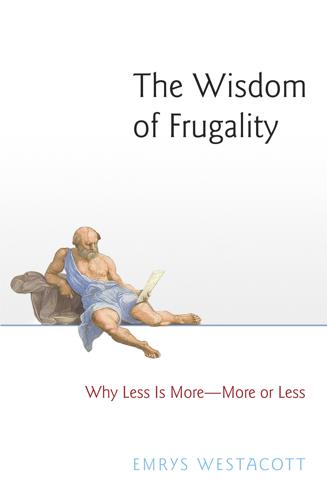
The Wisdom of Frugality: Why Less Is More - More or Less
by
Emrys Westacott
Published 14 Apr 2016
See also acquisitiveness Green, Hetty, 49–50 Grice, Paul, 60 gross domestic product (GDP), 217–21 Gross National Happiness Index, 219 Habermas, Jürgen, 60, 247 Handel, George Frideric, 118 happiness: and acquisitiveness, 156–57; and basic needs, 87–99, 156–57; difficulty of measuring, 211; and economic prosperity, 216–24; and GDP, 218–21; and income, 222–24; and inequality, 151–52, 223–24; and simple living, 73–135; and virtue, 74–76; and wealth, 148, 152–55 happiness-income paradox, 220–21, 223 hardiness, 31, 275–76 Hardy, Thomas, 118 Heaney, Seamus, 118 hedonic adaptation, 112–16. See also hedonic treadmill hedonic treadmill, 99, 205. See also hedonic adaptation Hegel, Georg Wilhelm Friedrich, 125 Heidegger, Martin, 129 Heidorn, Keith, 256 Hesiod, 79, 207 higher education: cost and value of, 167, 245 Hilton, Paris, 168 Hinduism, 31 homelessness, 232–33 Homer, 118, 147 homes: size of, 232 Honoré, Carl, 213 house prices, 244–45 Howard, Henry, 100 Human Development Index, 219 Hume, David, 136, 159, 177 inauthenticity, 170–71 independence.
…
The truly valuable idea it contains is that the key ingredients for happiness are usually within easy reach for those of us not mired in awful circumstances. When we fail to realize this, we assume that happiness lies in the acquisition of what we do not already have. This is the mistake that leads us to step off the path toward contentment and onto the hedonic treadmill. SIMPLE LIVING PROMOTES SERENITY THROUGH DETACHMENT This argument is closely tied to the one just considered; indeed, the two are interdependent. Satisfying one’s basic needs will suffice provided one embraces a certain conception of happiness in which peace of mind is given paramount importance.
…
As Joanne Ciulla notes in The Working Life, “consumption creates a need to work even when the desire to work is weak. . . . The market tempts people with more leisure options than they can afford or have time to enjoy.”1 As a result, people can easily find themselves alternating between various treadmills: the hedonic treadmill of pursuing happiness, the status treadmill requiring conspicuous consumption, and the treadmill of work undertaken to finance one’s activity on the other two treadmills. Paradoxically, then, some of the same factors that have diminished the appeal of frugality and simplicity are also responsible for regenerating interest in the ideals of simple living.

Geography of Bliss
by
Eric Weiner
Published 1 Jan 2008
Brickman surmised that, in the case of the lottery winners, they now derived significantly less pleasure from ordinary events like buying clothes or talking to a friend. What was once enjoyable was no longer so. Psychologists call this the “hedonic treadmill.” Much like a regular treadmill, the hedonic treadmill makes you sweat and should be avoided at all costs. Unlike a regular treadmill, however, the hedonic variety is definitely not good for your health. It will drive you nuts, this infinite cycle of pleasure and adaptation. Interestingly, there are two notable exceptions to the hedonic treadmill. Noise and big breasts. Studies have found that we never really get used to loud noises, despite prolonged exposure. Another study found that women who get breast implants never tire of the enjoyment it brings them, and presumably their companions feel the same.
…
It is these relationships that account for a large chunk of our happiness, and they have little to do with money. Something wasn’t right though. That golden rule of positive psychology, hedonic adaptation, states that no matter what tragedy or good fortune befalls us, we adapt. We return to our “set point” or close enough anyway. It’s been fifteen years since the collapse of the Soviet Union. Why hasn’t Luba adapted? I think it comes back to culture. That sea we swim in. Drain it, as happened in Moldova, and we can’t breathe. We lose our bearings, and hedonic adaptation is short-circuited. Luba lives in a sort of Russian shadow land. It is Russia, but it’s not. The ethnic Moldovans live in their own shadow land.
…
The intense pleasure I derive from the pen—the way it rests in my palm perfectly, the way it glides across the page as if riding a cushion of air—will, according to Ruut Veenhoven and the other happiness experts, diminish over time. I will crave a better, more expensive pen, as I fall prey to the hedonic treadmill. The experts were dead wrong. I enjoyed the pen for as long as I owned it. Which was exactly nine days. That’s when I lost it, in a taxi in New York. Or maybe transiting at Heathrow Airport. That’s not the point. The point is: It’s gone. My first and only Ridiculously Expensive Pen, gone forever.
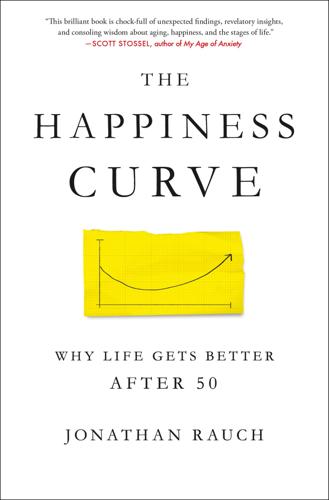
The Happiness Curve: Why Life Gets Better After 50
by
Jonathan Rauch
Published 30 Apr 2018
And if others grow and you don’t, you’ll feel shorter, even though you haven’t shrunk a millimeter. In fact, if everyone was frantically busy working to get richer, the result might be to put everyone in competition with everyone else, resulting in a society stuck on what happiness economists call a hedonic treadmill. The Easterlin Paradox (as it came to be known) had the potential to revolutionize economics. It challenged the hegemony of revealed preferences and material metrics. If economists cared about making people better off, not just materially but in a deeper, life-savoring sense, then revealed preferences might be painting an incomplete or even misleading picture.
…
“When we combine the adaptation principle with the discovery that people’s average level of happiness is highly heritable,” writes Haidt, “we come to a startling possibility: In the long run, it doesn’t much matter what happens to you. If this idea is correct, then we are all stuck on what has been called the ‘hedonic treadmill.’ … We continue to strive, all the while doing things that help us win at the game of life. Always wanting more than we have, we run and run and run, like hamsters on a wheel.” To all of which, add the phenomenon we encountered in chapter 2: the social-competition treadmill. Haidt describes it: The elephant was shaped by natural selection to win at the game of life, and part of its strategy is to impress others, gain their admiration, and rise in relative rank.
…
But I also made another youthful forecast: that my satisfaction would keep pace with my accomplishments. That forecast was off. Yes, I was appreciative, but nowhere near as appreciative as I had believed I would or should be. The closing of the optimism gap, plus upward social comparison, plus the hedonic treadmill and my elephant’s other tricks to keep contentment out of reach: all of those things, as the years ticked by, conspired to create a sense of disappointment which I couldn’t shake by force of will. And that was disappointing. In my forties, caught in the feedback loop, I was stumped and stuck
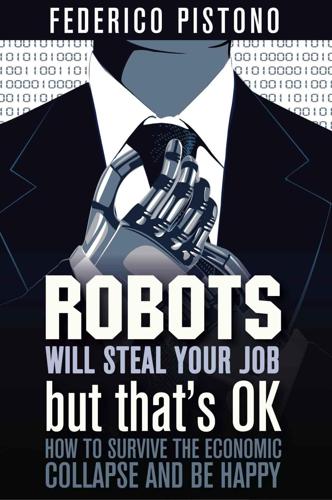
Robots Will Steal Your Job, But That's OK: How to Survive the Economic Collapse and Be Happy
by
Pistono, Federico
Published 14 Oct 2012
If you start giving a present every month to your partner, they will make a habit out of that, and create an expectation, which will then result in less happiness, and plain dissatisfaction when the present does not come, or when it feels cheap, not genuine. The unexpected nature of the act makes it more powerful, the less they expect it, the greater the effect will be. Cultivate new experiences Following the same line as the previous point, trying new things will help you step down from the hedonic treadmill and hedonic adaptation trap. Again, they do not have to be big. If you are right handed, try brushing your teeth with your left hand. Going back home tonight, take a route you have never taken before. Taste a food you have never heard of. Try a new sport. Remember, do not exaggerate any of this advice.
…
Possibly more useful are studies that point to the need to focus policy more directly on urgent personal concerns relating to such things as health and family life and to the formation of material preferences, rather than on the mere escalation of material goods.” A possible explanation of the Easterlin paradox comes from a feature of cognitive behaviour that researchers call adaptation. If you improve your standard of living, you quickly adapt to it, it becomes the norm, and your expectations rise along with it. This leads to the so-called hedonic treadmill. Imagine you are on a treadmill, and you wish to reach your ultimate goal – happiness, which sits just in front of you. As you begin to walk, so does the treadmill, at the same speed as you. In fact, you are causing the treadmill to move! You might be getting some small rewards along the way, but you forget about them soon after you receive them, because your real goal still sits there.
…
We know that we are very bad at predicting our future happiness, as we tend to overestimate the effect that supposedly major events will have in the long term. We know that the memories of our experiences are distorted by our mind, and that we can be easily fooled. We know that we adapt to almost anything, except very few things (noise, cosmetic surgery158). We know that it is hard to step off the hedonic treadmill. We know that happiness is relative, as we tend to compare ourselves with those around us. We know that income does matter for our life satisfaction (in a log scale), but only up to a certain level for our emotional happiness (about $75,000). Most importantly, we know that being employed is crucial to our general well-being.
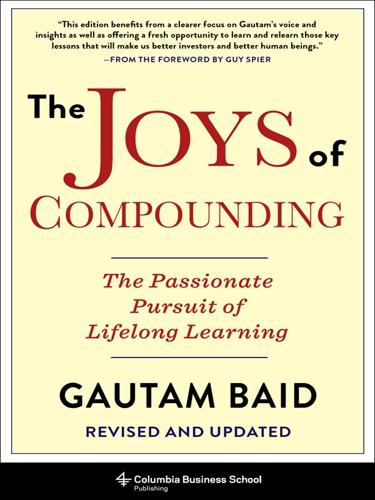
The Joys of Compounding: The Passionate Pursuit of Lifelong Learning, Revised and Updated
by
Gautam Baid
Published 1 Jun 2020
Without industry and frugality nothing will do; with them, everything.” Resist Stepping on the Hedonic Treadmill I saw that it was the artificial needs of life that made me a slave; the real needs of life were few. —William James Dawson Great wealth often inflicts a curse on its owners. It’s called the “hedonic treadmill,” and its function is to continually move the goalpost of your financial dreams, completely extinguishing the joy you thought you would get from having more money, once you attain it. People are constantly running on the hedonic treadmill; as they make more money, their expectations and desires rise in tandem, which results in no permanent gain in happiness.
…
See delayed gratification gratitude, 352 gravity, 22 Great Crash, 282 Great Depression, 273 greed, 346–348, 347 Greenblatt, Joel, 72, 201; on capitalism, 202; on diversification, 244; on SEC, 203–204; on spinoffs, 202–203 Greenspan, Alan, 235 Greenwald, Bruce, 167, 369 Gresham’s law, 146 Griffin, Tren, 26; on decision-making, 290–291; on thinking, 29–30 Gross, Bill, 10 gross domestic product (GDP), 218; of US, 278 gross profit margin, 130 Grove, Andy, 235 gruesome businesses, 213 Gu, Feng, 312 Guerin, Rick, 354 Guinness Book of World Records, 125 Gunther, Max, 322, 327 habits: bad, 113, 359; compounding of, 359–362, 362; Duhigg on, 360; loops, 360; productivity and, 360 Hamtil, Lawrence, 172 happiness: giving and, 65; pleasure compared with, 85; thinking and, 352; writing and, 143–144 Harari, Yuval, 110 Harvard Business Review, 312 Harvey, Paul, 281 Hattagadi, Amay, 291 Hawkins, Mason, 244 head-in-the-sand syndrome, 288 health, compounding of, 356–358 Hedge Fund Market Wizards (Thorp), 249 hedonic adaptation, 85 hedonic treadmill, 84–86 HEG, 189, 196; Graphite India and, 191–192; selling price of, 196; stocks, 188, 195 Heinlein, Robert, 141 helplessness, 272 Hemingway, Ernest, 340 Hester Biosciences, 308, 369 HG Infra Engineering, 310 hidden champions, 239 hierarchy of needs, of Maslow, 35, 64 high-quality compounders, 219 high-quality stocks, 234 high-risk bonds, 240 Holiday, Ryan, 13–14 Holland, David, 178–179 Horace, 261 Housel, Morgan, 10–11, 15, 53, 86, 255, 276, 362; on humility, 54; on wealth, 109 How to Get Lucky (Gunther), 322 Hudson, Richard, 260 human behavior, 329–330 human evolution, 108, 110–111, 285–286 humility, 79–80; circle of competence and, 56–62; Housel on, 54; ignorance and, 52–53; luck and, 326–328; remaining, 324 Huxley, Aldous, 139 hyperbolic discounting, 108–109 hyperinflation, 53–54 IBM, 171, 186 ideas, flow of, 31–32 “If” (Kipling), 376–377 ignorance, humility and, 52–53 ikigai, 33, 34 ikiru, 33 immigration, 278 impatience, 135 incentives: compensation at Berkshire Hathaway, 147–148; Munger on, 145–147 income statement, 130 incompetence, circle of, 58 India, 61, 176, 279; equity markets in, 280 Indian Economy & Market, 59 inflation, 307–308 Influence (Cialdini), 335, 341 information, 241; dissemination of, 36; Munger on, 287 initial public offerings (IPOs), 150; market conditions and, 234; shunning, 239 inner scorecard, 92; Buffett on, 88 inside view, Kahneman on, 294–295 inspectional reading, 16–17 instant gratification, 109–110 institutional imperative, Buffett on, 214 insurance business, 101–102 intangible assets, ROIC and, 222–223 intellectual property, 211 intelligence: emotional, 59, 157–158; Munger on, 257, 295, 325 Intelligent Investor, The (Graham), 69, 92, 252 interconnectedness, 26 interest expense, 130 interest income, 130 interest rates: Buffett on, 58; Federal Reserve and, 297–298.
…
Don’t confuse pleasure with happiness. Pleasure is short-lived, and modern corporations have convinced most people that the only way to be happy is through the pursuit of pleasure. The longer you stay on the hedonic treadmill, the more it will break you down emotionally, so get off of it, quickly. The book Classics: An Investor’s Anthology features an essay about P. T. Barnum that quotes Barnum on the tendency for individuals to step on the hedonic treadmill: Thousands of men are kept poor, and tens of thousands are made so after they have acquired quite sufficient to support them well through life, in consequence of laying their plans of living too expensive a platform….
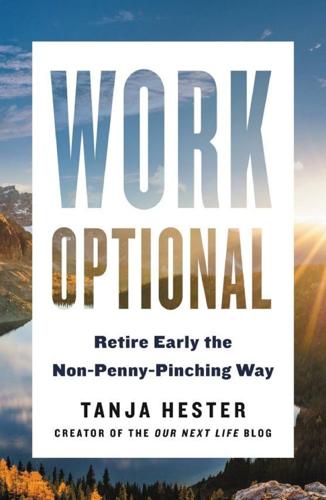
Work Optional: Retire Early the Non-Penny-Pinching Way
by
Tanja Hester
Published 12 Feb 2019
Only a third of people in the US follow a detailed budget, while two-thirds don’t budget or track their spending closely, nor do they follow a big-picture financial plan.1 Lifestyle inflation is a phenomenon that affects people at all income levels and is the result of a psychological phenomenon called hedonic adaptation, which is the tendency we all have to adapt quickly to changes in our lives and return to a baseline level of happiness, regardless of how many good or bad things may happen. Put in purchasing terms, it means that if we set our sights on a new car because we think that will make us happier in some way, we may get an initial happiness boost from buying it, but pretty soon, we’re no happier with the car than we would have been without it—though we’re definitely shorter on cash as a result. Financial experts talk about this as the hedonic treadmill, or the idea that we are always running toward something—usually material things we wish to buy—but never making real forward progress in terms of happiness.
…
Just as you’re rewriting your personal narrative to include your life’s top priorities, expand it to include the fact that you are someone who saves money, even if that’s an entirely new concept in your financial life. It’s never too late to change. And if the concepts of lifestyle inflation and the hedonic treadmill resonate with you, write into your new narrative that not only are you a person who saves, you’re also someone who avoids chasing temporary happiness or status with your spending. And second, give your money a mission statement that ensures it does exactly what you want it to do. When it comes to sticking to financial goals, simple is virtually always better.
…
You might immediately know the answer to this, but if you don’t, go back to the happiest memory you identified in chapter 2. What were you doing? What did it cost? How has spending that money brought you a lasting happiness boost and not just a quick dopamine rush before you returned to the hedonic treadmill? Did spending that money make your life easier in some way? More fun? More interesting? Did it give you memories that you treasure? How, specifically, did that spending benefit you? • What ongoing expenditure makes you happiest? Of all the money you spend regularly, what portion of that gives you the biggest ongoing happiness boost?
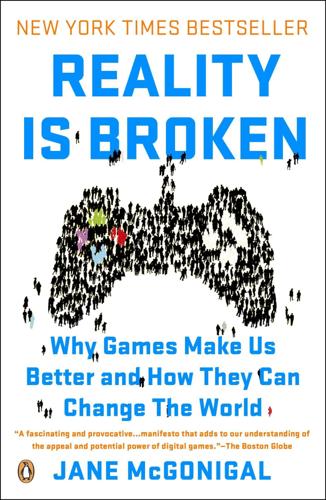
Reality Is Broken: Why Games Make Us Better and How They Can Change the World
by
Jane McGonigal
Published 20 Jan 2011
And increasingly, it’s not just Americans who are giving up real happiness in favor of the pursuit of wealth, fame, and beauty. Thanks to the globalization of consumer and popular culture, everyone on the planet is being sold the same dream of extrinsic reward. This is especially true in emerging economies like China, India, and Brazil, where more and more people are being ushered onto the global hedonic treadmill, encouraged to consume more and to compete for limited natural resources as a way to increase their quality of life. But there is cause for hope. One group is opting out of this soul-deadening, planet-exhausting hedonic grind, and in larger and larger numbers: hard-core gamers. Games, after all, are the quintessential autotelic activity.
…
Social and Personality Psychology Compass, 2007, 1: 1-17. 16 Originally described by Brickman and Campbell in “Hedonic Relativism and Planning the Good Society.” In M. H. Apley, ed., Adaptation Level Theory: A Symposium (New York: Academic Press, 1971), 287-302. Most recently assessed in Bottan, Nicolas Luis, Pérez Truglia, and Ricardo Nicolás. “Deconstructing the Hedonic Treadmill: Is Happiness Autoregressive?” Social Science Research Network, January 2010. http://ssrn.com/abstract=1262569. 17 The term “autotelic” was originally coined by Csíkszentmihályi in Beyond Boredom and Anxiety, 10. 18 Lyubomirsky, Sonja. The How of Happiness: A Scientific Approach to Getting the Life You Want (New York: Penguin Press, 2008), 64. 19 Nelson, Debra L., and Bret L.
…
Unfortunately, the pleasures of found happiness don’t last very long. We build up a tolerance for our favorite things and start to want more. It takes bigger and better rewards just to trigger the same level of satisfaction and pleasure. The more we try to “find” happiness, the harder it gets. Positive psychologists call this process “hedonic adaptation,” and it’s one of the biggest hindrances to long-term life satisfaction. 16 The more we consume, acquire, and elevate our status, the harder it is to stay happy. Whether it’s money, grades, promotions, popularity, attention, or just plain material things we want, scientists agree: seeking out external rewards is a sure path to sabotaging our own happiness.
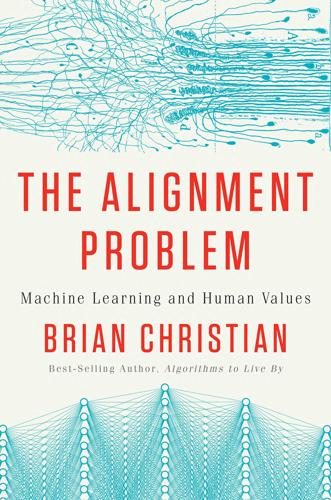
The Alignment Problem: Machine Learning and Human Values
by
Brian Christian
Published 5 Oct 2020
As Rutledge writes, “Momentary happiness is a state that reflects not how well things are going but instead whether things are going better than expected.”74 This sounds exactly like a temporal-difference error—in other words, exactly like the role played by dopamine. Zooming out, we begin to get a neuroscientific and computational account of the well-known phenomena of what’s called the “hedonic treadmill.” Namely, people have a stubborn and persistent return to their emotional baseline, regardless of changes in their long-term quality of life.75 Lottery winners and paraplegics, famously, are emotionally back to more or less where they started not long after their respective dramatic life changes.76 Dopamine and reinforcement learning offer clues as to why.
…
Indeed, if dopaminergic “happiness” comes in large part from being pleasantly surprised, from having opportunities to better learn what to expect, then complete mastery of any domain seems necessarily correlated with boredom—a point that has ethical implications not only for a future ethics of RL agents but, of course, for humans, too. It suggests, for one thing, an evolutionary and computational story about the hedonic treadmill. If our subjective happiness is intimately tied to being pleasantly surprised and it’s the nature of intelligence to work tirelessly to anticipate and mitigate surprise, then we can see how happiness of this kind becomes fleeting. We can also see the evolutionary advantage. An infant may be delighted at the mere ability to wave their arm on command.
…
See stochastic gradient descent Graeber, David, 82 graphics processing units (GPUs), 21, 23, 339nn18, 20 gridworlds, 292–93, 294, 295, 390n29 Griffiths, Tom, 165–66, 177, 178–79 ground truth gaps clinical vs. statistical predictive models and, 97–98 fairness and, 317 human judgments and, 97–98 in image-recognition systems, 75 raw data and, 102–03 in risk-assessment models, 75–76 saliency methods and, 355n54 simple models and, 99, 101–02 TD learning and, 140 Gunning, Dave, 87–89 Hadfield-Menell, Dylan, 266–68, 273, 296, 297–98, 299, 300 Han, Hu, 31 Hand, Learned, 277 Handbook of Moral Theology (Prümmer), 303 Hands on a Hard Body, 312 happiness, 147–50 Harcourt, Bernard, 78–79, 346–47n25, 350n85 Hardt, Moritz, 29, 51, 63, 65–66, 73, 81, 351n87 Harlow, Harry, 188 Harno, Albert, 52 Harvard University, 254, 290 Hass, Robert, 235 Hastie, Trevor, 85 Hebb, Donald, 338n2 Hedonic Treadmill, 148, 149–50 helicopter flying, 168, 257–60, 383nn22–23 Herzberg, Elaine, 326–27 Hinton, Geoffrey, 21, 22, 24, 338–39n12 hiring, 22, 39–40, 48, 343nn72–74, 76–77 Hoare, C.A.R., 395n2 Hobbes, Thomas, 187 Hofstadter, Douglas, 204–05 Holder, Eric, 350n81 Holmes, Oliver Wendell, Jr., 98 Holt, Gregory, 289 Holte, Robert, 94 Hsu, Feng-hsiung, 241–42 Hui, Fan, 243 human judgments bias in, 39, 68 consensus and, 315, 396n9 as fallible, 54 independence from extrinsic motivation and, 209 interpretability and, 113–14 intrinsic motivation and, 186–87 irrational, 386–87n55 rationality enhancement and, 176–77 self-training, 174–80, 369n76 vs. statistical prediction, 91–94, 97–98 transparency and, 319, 397n19 word embedding and, 342n61 See also imitation; value alignment human-machine cooperation, 267–76 AI safety and, 268–69 aspiration and, 275–76, 386–87n55 CIRL, 267–68, 385nn40, 43–44 dangers of, 274–76 demonstration learning for, 271 feedback learning and, 270–71, 386n48 human-human team studies on, 271–73, 386n53 human irrationality and, 366–67n55 legibility and, 269–70, 386n47 parenting and, 269, 385–86n45 Hursthouse, Rosalind, 367n71 Hutter, Marcus, 262–63 Huxley, Aldous, 313 i.i.d.
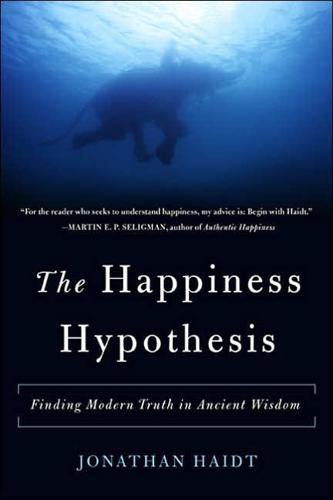
The Happiness Hypothesis: Finding Modern Truth in Ancient Wisdom
by
Jonathan Haidt
Published 26 Dec 2005
In 1 7 5 9 , long before a n y o n e knew a b o u t g e n e s , A d a m Smith reached the s a m e conclusion: % In every permanent situation, where there is no expectation of change, the mind of every man, in a longer or shorter time, returns to its natural and usual state of tranquility. In prosperity, after a certain time, it falls back to that state; in adversity, after a certain time, it rises up to it.12 If this idea is correct, then we are all stuck on what has been called the "hedonic treadmill."13 On an exercise treadmill you can increase the speed all you want, but you stay in the s a m e place. In life, you can work as hard as you want, and accumulate all the riches, fruit trees, and concubines you want, but you can't get ahead. B e c a u s e you can't change your "natural and usual state of tranquility," the riches you a c c u m u l a t e will just raise your expectations and leave you no better off than you were before.
…
T h e rich are happier on average than the middle class, but only by a little, and part of this relationship is reverse correlation: H a p p y p e o p l e grow rich faster because, as in the marriage market, they are more appealing to others (such as bosses), and also b e c a u s e their frequent positive emotions help them to commit to projects, to work hard, and to invest in their futures.27 Wealth itself has only a small direct effect on happiness be-c a u s e it so effectively speeds up the hedonic treadmill. For example, as the level of wealth has doubled or tripled in the last fifty years in m a n y indus-trialized nations, the levels of h a p p i n e s s and satisfaction with life that people report have not changed, and depression has actually b e c o m e more c o m m o n . 2 8 Vast increases in gross domestic product led to improvements in the comforts of life—a larger home, more cars, televisions, and restaurant meals, better health and longer life—but these improvements b e c a m e the normal conditions of life; all were adapted to and taken for granted, so they did not make people feel any happier or more satisfied.
…
like and dislike, 26-28, 78 Gossip, 52-55, 60 love, 170, 197-199, 2 1 9 - 2 2 0 , 223, Group selection, 230—235, 237 225, 2 3 4 - 2 3 5 Gut feelings, 5—6, 64 pleasure and gratification, 83, 9 6 - 9 7 , 143, 161 Hamer, Dean, 234 See also Happiness; Morality and Happiness moral emotions and affective style, 26—44 Epictetus, 81, 82, 87, 8 9 - 9 2 , 223 and altruism, 173—175 Epicurus, 130, 155, 158, 161 pursuit of, 8 1 - 1 0 6 Happiness ( continued) Kant, Immanuel, 161—163, 200 and search for meaning, Kasser, Tim, 145 2 1 3 - 2 3 9 Keeping Together in Time and social relationships, 133—134 (McNeill), 237 and "vertical coherence" of Keillor, Garrison, 66 goals, 145 Keltner, Dacher, 202 and virtue, 156-158 Kerry, John, 208 Happiness formula, 9 0 - 9 4 , 2 19 King, Martin Luther, Jr., 229 Harlow, Harry, 109-1 13, 1 15, 1 18, King, Rodney, 74 131, 205 Klein, Melanie, 1 12 Hawking, Stephen, 85 Kohn, Melvin, 221 Hazen, Cindy, 1 18 Koran, x Hedonic treadmill, 86, 89 Kramer, Peter, 41 Heraclitus, 241 Kuhn, Deanna, 64 Heredity and behavior, 32—33, 86, 90, 1 17 Langer, Ellen, 93 Hillel, 45 Language, 15-16, 5 3 - 5 4 , 2 0 7 Hinde, Robert, 112-113 L a o T z u , 37, 101, 105 Hinduism, 128-129, 135, 140, 145, Laws of Manu, The, 1 2 8 , 1 8 8 171, 188-190, 228, 236 Leary, Mark, 2 0 6 - 2 0 7 Hitchhiker's Guide to the Galaxy, Leary, Timothy, 201 The, 216 Le Conte, Joseph, 1 92 Holmes, Oliver Wendell, Jr., 105 Lerner, Mel, 1 4 5 - 1 4 6 Horn, Holly, 54, 178 Library of Babel ( B o r g e s ) , ix Homer, 129, 160 Life stories, 142-144, 150-151, Hume, David, 1 7 2 0 7 , 2 2 6 Hunter, James, 1 76 Like and dislike, 2 6 - 2 8 , 78 Hypocrisy, xi, 55, 59-80, 130-132, 165 Limbaugh, Rush, 59 Listening to Prozac ( K r a m e r ) , 41 Imp of the Perverse (Poe), 19 Loewenstein, George, 69—70, 79 India, x, 103-104, 140, 188-189, 210, Lorenz, Konrad, 112—113 2 2 7 - 2 2 8 Love, xii, 45, .107-134, 2 1 9 - 2 2 0 , Influence (Cialdini), 49 223, 2 3 8 - 2 3 9 Isen, Alice, 173, 196 Christian, 130-131 familial, 1 1 1 - 1 1 7 James, William, 2 0 3 - 2 0 4 , 2 3 5 - 2 3 6 romantic, 118-127, 132 Jefferson, Thomas, 194-196, 205 See also Agape (emotional state) Jesus, 62, 79, 130, 173, 208 L S D .
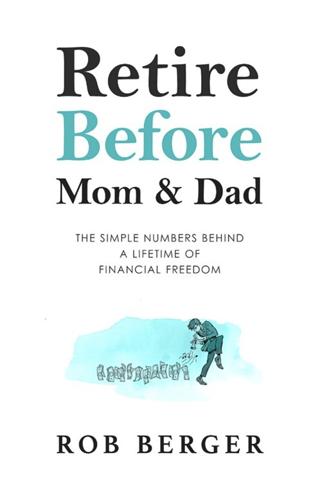
Retire Before Mom and Dad
by
Rob Berger
Published 10 Aug 2019
There is an expression for this: “the hedonic treadmill.” The Hedonic Treadmill We each have a baseline of happiness. A positive event in our lives, like getting a raise or buying a shiny new thing, may temporarily increase our level of happiness. Gradually, however, we’ll return to our baseline. In other words, that cool new car you bought six months ago today is just a car. The raise you received last year is a distant memory as you fret about whether or not you’ll get a raise this year. You may be wondering how I know so much about the hedonic treadmill. I know because I’ve been there.
…
I know because I’ve been there. I’ve run marathons on the hedonic treadmill. I’m a hedonic treadmill champion. I did all the “right” things. I went to college and graduated with a degree and $55,000 in school loans. That was in 1992, when $55,000 bought a lot more than it does today. I went to work and spent 70 to 80 hours a week in the office and even more when I traveled for business. I made good money and spent almost all of it. My wife and I saved a little, but we spent a lot. We bought a house, adopted two children, bought a bigger house, and took a vacation every year. Normal as normal could be. We were on track for a typical life.
…
Index 403(B) 61, 97, 168 401(K) 18-19, 27, 61, 64, 67, 80-81, 85-86, 97, 107, 143, 145, 161, 167-170, 172, 174-179, 181, 183-187, 189-191, 195-196, 200, 202, 213-214, 229, 235-238, 241, 243, 245 3-Fund Portfolio 162, 165, 184-187, 191, 246 7 Levels Of Financial Freedom 44, 48, 50-52, 57 4% Rule 50, 59, 63-65, 69, 160 Actively Managed Mutual Funds 140-142 Asset Allocation 190, 195, 201, 246 Asset Classes 136, 157 Backdoor Roth IRA 172-173, 177 Bad Debt 219 Basis Points (bips) 152, 154, 159, 185-186, 191-192, 195-196, 207 Betterment 192, 207, 243 Blend 146, 186 Bogleheads 162 Bond(s) 20, 33, 38, 65, 129-141, 143, 147-150, 152, 157-163, 184-186, 195-196, 201-202 Charles Duhigg 104 Commissions 205 Commodities 144, 147 Credit Cards 4, 39, 96, 105, 202, 217, 226, 235 Credit Risk 133, 147-148 Debt 4-7, 12, 18, 49, 80, 82, 84, 90-92, 107, 135, 138, 202-203, 215-231, 233-241, 243, 246 Debt Avalanche 225, 228-231 Debt Snowball 225, 228-231 Dividend 19, 134-135, 200 Dividends 134-135, 200 Duration 149 Emerging Markets 131, 145, 163 Equity 6, 132, 135, 140, 216, 225, 227 ETF 207 Expense Ratio 152-154, 159, 184, 186, 190-191, 195 Fee-Only 205-206, 208 Fees 123, 140, 142-143, 151-156, 159, 161, 178, 184-186, 191, 196, 205-206 Fidelity 154, 164, 180, 183-184, 186, 192, 195 Financial Freedom 2-3, 5, 7, 9-13, 17, 19, 23, 28, 35, 41, 43-52, 57, 59, 61, 63, 65-69, 71-76, 93-94, 98-99, 115-116, 142, 153, 156-157, 167, 195-196, 202-203, 211, 215, 222, 224, 227-228, 231, 234, 239, 244, 246-247, 249-250 Fixed Income 135 Freedom Fund 10, 39, 45-51, 59, 63-67, 69, 72, 74, 76, 88, 93, 96-97, 117, 119, 184-185, 206 Good Debt 219 Growth 144, 146, 159, 186 Health Savings Account (HSA) 173-175, 177, 179, 182, 189 Hedonic Treadmill 5-6 I Bonds 149 Index Mutual Fund 80, 140 Interest Rate Risk 131, 133, 147-149 IRA 18, 64, 167, 170-173, 175, 177-181, 189, 191-193, 195-196, 200, 238, 245 Jeff Rose 119 Junk Bonds 148 Level 7 45, 47-52, 59-60, 63, 65-69, 71-76, 93, 96, 98, 115-116, 123, 125, 142, 153, 156-157, 168, 176, 182, 185, 202, 204, 206, 211, 213, 215, 222, 249, 251 Load Fees 153, 155, 159, 184, 186 Market Cap 141, 144-145 Market Capitalization 144 Mark Zoril 207 Maturity 136 Money Audit 11, 87, 89-91, 94, 99, 101, 167 Money Multiplier 9-11, 17, 19-23, 26, 28, 31-32, 38-39, 45-46, 50-52, 63, 71, 105, 153, 167, 195 Morningstar 151, 159, 184-187, 190, 195-196, 200 Mr.
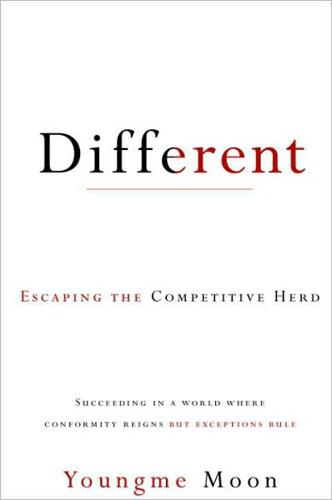
Different: Escaping the Competitive Herd
by
Youngme Moon
Published 5 Apr 2010
As the winners recalibrated their happiness levels, many of the activities they had previously enjoyed (such as reading or sitting down to a good meal) became less pleasurable over time, such that within a few months, the wealthy winners reported being no happier than they had been before hitting the jackpot. Brickman cal ed this adaptational phenomenon the “hedonic treadmil ;” the term was dead on in describing the human predisposition to feel entitled to today what we used to feel thankful for yesterday. What’s amusing about so many of the studies on hedonic adaptation is that they demonstrate the extent to which our propensity to become spoiled is, from an evolutionary perspective, practical y a foregone conclusion. For example, in another study, Daniel Kahneman (a social psychologist and Nobel laureate) and his col eague Jackie Snel confirmed what most of us intuitively know—that if you give people a treat too often, they become less appreciative of it over time.
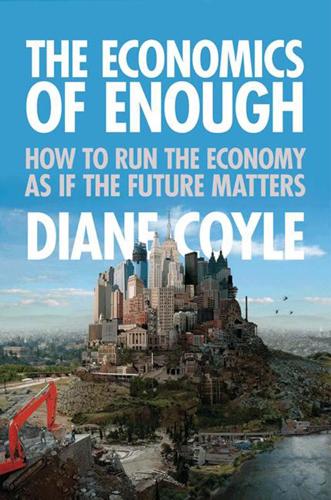
The Economics of Enough: How to Run the Economy as if the Future Matters
by
Diane Coyle
Published 21 Feb 2011
A second and related explanation is that because people quickly get used to better circumstances, they need more and more income just to sustain their happiness—it’s called the “hedonic treadmill.”27 Richard Layard writes: “I grew up without central heating. It was fine. Sometimes I had to huddle over a fire or put my feet into a bowl of hot water, but my mood was good. When I was forty, I got central heating. Now I would feel really miserable if I had to fight the cold as I once did. In fact, I have become addicted to central heating.”28 Together, adaptation and the hedonic treadmill seem good explanations of why at any point in time rich people are happier than poor people, yet over time higher incomes don’t raise happiness.
…
However, this kind of policy conclusion has been strongly challenged by other researchers. In his book The Idea of Justice Amartya Sen agrees that people’s happiness depends on their expectations, which are shaped by their own social situation.37 But he turns the argument about adaptation and the hedonic treadmill back on the happiness crowd: if we just aim for people to be happy with their lot, where is the social discontent that will create the momentum for a better life? Would women have ever gained the vote if many had not been unhappy? Would there have been a civil rights movement without discontent?
…
Whether we are happy depends on inner harmony, not on the controls we are able to exert over the great forces of the universe.”42 Most people are somewhat happy most of the time, no matter where they live or what their conditions are, although with some cultural variation, and the differences reported in the surveys used in the economic research described earlier should be seen in this light.43 The explanation lies in the process of adaptation, the hedonic treadmill. It moderates or limits the psychological highs and lows that the vagaries of experience would otherwise impose on us. “Just as it acts as an emotional ceiling that keeps us from experiencing non-stop joy, it also protects us from being dragged into the emotional pits.”44 Adaptation is a marker of human psychological resilience; it is a desirable characteristic.
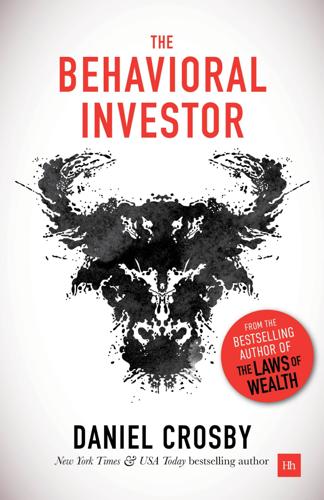
The Behavioral Investor
by
Daniel Crosby
Published 15 Feb 2018
Making money feels good, all right; it just doesn’t feel as good as expecting to make money.”17 If left unchecked, our natural mental processes are a formula for dissatisfaction. We long for wealth but when we get it, the appeal of what we’d so long hoped for quickly dissipates. Psychologists refer to this Sisyphussian struggle as the “hedonic treadmill” and it is what leads us to try, and fail, to keep up with the Joneses. We’re all familiar with the term “keeping up with the Joneses,” but it’s doubtful that we understand just how deeply ingrained this is in our concept of success and how the neurological processes we’ve touched on here contribute to it.
…
Your brain takes up just 2% to 3% of your body weight, but consumes 25% of your energy. Humans are wired to act; markets tend to reward inaction. The importance of money seems to diminish, not improve, decision-making. Our early experiences in capital markets imprint on our brain in ways that tend to be lasting. Hedonic adaptation is the process by which increases in wealth are matched pound-for-pound by increases in expectations. The anticipation of reward releases a flood of dopamine, which primes us to become sloppy and undisciplined; success begets failure. Notes 10 Jason Zweig, Your Money and Your Brain: How the New Science of Neuroeconomics Can Help Make You Rich (Simon & Schuster, 2008), p. 62. 11 Lisa Kramer, ‘Does the caveman within tell you how to invest?’
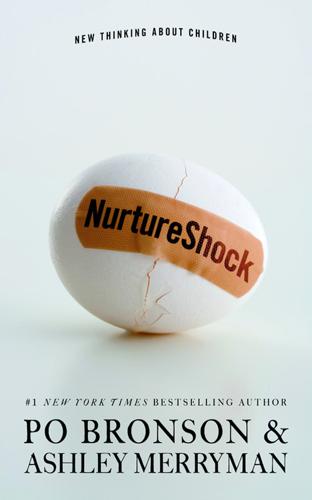
NurtureShock: New Thinking About Children
by
Po Bronson
and
Ashley Merryman
Published 2 Sep 2008
In the last forty years, a lot of cracks have been discovered in Brickman and Campbell’s theory of the hedonic treadmill. First, while most people might have a happiness set point, it’s not a flat neutral—it’s actually a fairly positive state. Around the world, 80 percent of people report being quite happy or very happy. Also, while paraplegics and lottery winners might return to their baseline, other classes of people (on average) never quite recover—such as widows, divorcees, and the long-term unemployed. Emmons’ work was yet another crack in the hedonic treadmill theory. Effectively, he demonstrated that our default wiring can be consciously tricked; by forcing college students to pay attention to the bounty in their everyday lives, he got them to escape the perception-trap of the treadmill.
…
Certainly the two rise and fall together, but Emmons showed that gratitude could be enhanced, independently, and greater well-being would result. By itself, this wasn’t exactly extraordinary, but in the context of happiness theories, it was significant. Back in 1971, two scholars, Philip Brickman and Donald Campbell, described the human condition as a “hedonic treadmill.” Essentially, we have to keep working hard just to stay in the same relative place in society. Even when our situation improves, the sense of achievement is only temporary, because our hedonistic desires and expectations rise at the same rate as our circumstances. Brickman and Campbell noted that lottery winners are not any happier, long-term, than non-winners, and paraplegics are not less happy than those of us with all our limbs.
…
And he figured that kids who felt very grateful and appreciative would be spared from the brunt of troubled moods. It should protect them. But the data from his multiple studies didn’t support this. Kids high in gratitude suffered storms of emotion just as commonly as the kids low in gratitude. At that point, Froh’s thinking was sparked by a few scholars who were rethinking the hedonic treadmill. “They argued that happiness is not a unitary construct,” Froh explained. “You can feel good and have well-being, but still be nervous, still be stressed. You can feel better overall, but the daily stressors haven’t necessarily gone away. For a scholar, this means that when you measure for positive affect, negative affect, and life satisfaction, they won’t all move in the same direction.”
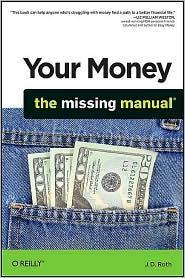
Your Money: The Missing Manual
by
J.D. Roth
Published 18 Mar 2010
Gradually, your lifestyle becomes more expensive so you have to work harder to earn more. You think that if only you got another raise, then you'd have Enough. But in all likelihood, you'd just repeat the process by spending even more. Psychologists call this vicious cycle the hedonic treadmill, though you probably know it as the "rat race." People on the hedonic treadmill think they'd be happy if they just had a little more money. But when they get more money, they discover something else they want. Because they're never content with what they have, they can never have Enough. Most Americans are stuck on this treadmill.
…
The bottom line: Money can't make you happy if your increased wealth brings increased expectations. In other words, if you want more as you earn more, you'll never be content; there will always be something else you crave, so you'll need to work even harder to get the money to buy it. You'll be stuck on the hedonic treadmill, running like a hamster on a wheel. The hedonic treadmill leads to lifestyle inflation, which is just as dangerous to your money as economic inflation; both destroy the value of your dollars. Fortunately, you can control lifestyle inflation. You can opt out, step off the treadmill, and escape from the rat race. To do that, you have to set priorities and decide how much is Enough.
…
Some people believe they can always earn more money to maintain their lifestyles—but their spending usually grows to match their income. (For some examples, see the box on How Much Is Enough?.) And you never know when the economy is going to take an unexpected turn, making it hard to find a job. When you earn more, resist the temptation to spend more. If your spending increases with your earnings, you'll get stuck on the hedonic treadmill (Caught Up in the Rat Race) and be at risk of a financial crisis if you lose your job. If, on the other hand, you keep your spending steady, you can use that increased cash flow to pay down debt or save for the future. By spending smart (see Chapter 5), you can make the most of your income and enjoy life.
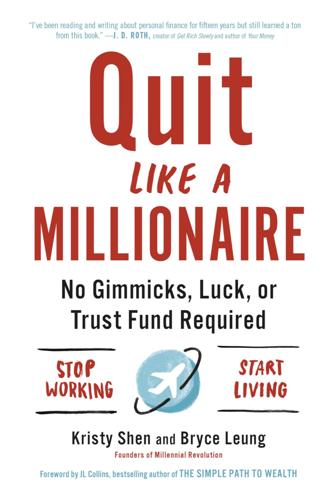
Quit Like a Millionaire: No Gimmicks, Luck, or Trust Fund Required
by
Kristy Shen
and
Bryce Leung
Published 8 Jul 2019
I had spent just as much time researching it and spent just as much money, but it wasn’t the same. I didn’t get that same high. By the time I was on to bag five, it was such a nonevent I don’t even remember it. Soon, I got so bored of my purses I sold or gave away all but one. I had inadvertently gotten on the Hedonic Treadmill. When we buy something special or get a raise, we’re happy because we perceive a positive change in our life. Similarly, when something bad happens, like a blown tire or a health issue, that negative change bums us out. But over time, we get used to the new normal and return to our baseline level of happiness.
…
On average, people thought they needed double what they earned. It didn’t matter if they made $30,000 or $100,000; the threshold was relative to their current salary. So, are we simply incapable of being satisfied with our lot? On the surface, it seems so, but as I dug deeper, I realized that the Hedonic Treadmill—on which no matter how much we run, we always stay in place—is more than a psychological phenomenon. It’s biochemical. BLAME YOUR BRAIN Your brain is a complex machine and neuroscientists are only beginning to understand it. What neuroscientists do understand pretty well is the mesolimbic pathway, which is part of the reward system in the brain.
…
The mesolimbic pathway also contains a structure responsible for processing dopamine called the nucleus accumbens, which houses neural pathways sensitive to dopamine. These are the real gateways to pleasure and happiness. This distinction is why the narrative of “more dopamine = more happiness” isn’t actually true. In 2006, neurologists in Germany conducted an experiment on the nucleus accumbens. What they found explained the Hedonic Treadmill. Subjects were asked to play a game of identifying simple objects like circles and triangles. If they won, they’d get one euro. If they lost, they got nothing. Before starting they were given a percentage likelihood of winning. You would think that people would be pumped if they won money no matter what, right?

Giving the Devil His Due: Reflections of a Scientific Humanist
by
Michael Shermer
Published 8 Apr 2020
Remarkably, research shows that given the choice between, say, a $500,000 home in a neighborhood of million-dollar mansions and a $400,000 home on a street surrounded by $300,000 dwellings, most people opt for the latter.3 They are apparently willing to pay $100,000 for the opportunity to be relatively richer even while being absolutely poorer. Economists call this the hedonic treadmill. Run as fast as you like, you’ll never get there because there is no there, there, without a relative context that gives you a positional rank among your fellow consumers.4 In like manner, men competing for limited high-paying jobs will enter an arms race with their competitors for ever nicer and more expensive suits.
…
Here Frank claims that the transaction costs of keeping up with the Joneses are not presently included in the price of homes, suits, shoes, and parties in terms of the real benefit to the owners, so this is an example of a market failure (and, he opines, a moral hazard) that he suggests can be remedied through a progressive consumption tax wherein these newfound liabilities would not only adjust the transaction costs to account for the hedonic treadmill while simultaneously curtailing needless consumptive behavior, it would also generate additional tax revenues from the rich that could be used to shore up our crumbling Social Security and Medicare accounts. Once you concede the point that markets fail to correct for transaction costs and that individuals must be coerced to act in ways that benefit both themselves and the collective because they would have no economic incentive to do so otherwise, it’s Katy bar the door for adding rules and regulations, taxes, and incentives right and left.
…
Once you concede the point that markets fail to correct for transaction costs and that individuals must be coerced to act in ways that benefit both themselves and the collective because they would have no economic incentive to do so otherwise, it’s Katy bar the door for adding rules and regulations, taxes, and incentives right and left. While we’re at it, we would need to correct for the hedonic treadmill and the positional rank problems with some serious income redistribution from those who have it to those who don’t. So-called “sin taxes” on alcohol and tobacco are just a start. Frank would like to tax sugared soft drinks under the rubric that obesity leads directly to diabetes and heart disease and premature deaths from other causes as well.
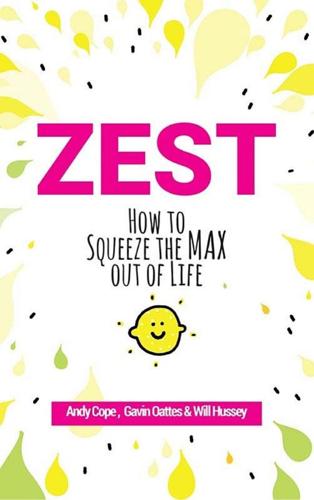
Zest: How to Squeeze the Max Out of Life
by
Andy Cope
,
Gavin Oattes
and
Will Hussey
Published 19 Jul 2019
The modern world has contorted itself to serve every hedonistic need you can think of, and quite a few that haven’t even crossed your mind. Think of hedonism as sex, drugs and rock ‘n’ roll happiness. The problem with instant happiness is something called the hedonic treadmill. A glass of wine every night will feel nice and cosy. For a while. Then you need two glasses for the cosy feeling to kick in. Then three. Then you’re screwed. The hedonic treadmill is like a real treadmill – in the long run you get absolutely nowhere and, if you stay on it too long, it’ll kill you. Remember, practice makes permanent. There’s effort in creating new habits of thinking and behaving.
…
You can check Will out at www.artofbrilliance.co.uk or you can tweet him at @aobrillwill Index ABCDE exercise 189, 190–1, 205 Adams, Tony 216 addiction 118 adversity 189, 190 advertisement 111 aggression 88 alive time 215 aliveness 173–4 Allingham, Henry 216 allodoxaphobia 103 altruism 209 Amazon 28 anger 69, 167 angst 70 animation 65, 66 anxiety 30, 63, 83, 86, 87 Ardagh, Philip 75 Ardagh Tips 56 attachment theory 114 attention 111, 112 attitude 153, 165 can-do 72 awareness 195 Balboa, Rocky 177 belief 189, 191 Beschaulich 25 body 54–6 boogie woogie 127 bothered, being 71–2, 169 Bowie, David 44 brain 101–2 evolution of 148 fuel 148 healthy 218–20 brain injury 133 breathing 197–9, 205 Brilliant, Ashleigh 201 BROMO 115, 116 busyness 38–9, 40 Call the Midwife 77 can-do attitudes 72 Calment, Jeanne 216 capitalism 111 carers 132–6 caring profession 136 Carlson, Mary 137 celebration 67–8, 131 change, willingness to 173 children 45, 67–8 Christakis, Nicholas A. 96 clickbait 69 Cliff, Jimmy 26–7 Cognitive Behavioural Therapy 190 commitment 163–9 comparison 104–7 compassion fatigue 135 compound interest 150–1 compulsive gambling 118 confidence 61, 62 conflict 118 connectedness 108 consequence 189, 191 consumption 42 content of experience 195 contentment 42 counselling 177 Crawford, Matthew 111 creativity 158 daily challenges 58–9 Dali, Salvador 220 dead time 215 Dean, James 128 depression 30, 62, 83, 88 as self-reinforcing cycle 132 depressive episode 88 Deresiewicz, William 106, 122 despair 167 destination addiction 92 Diagnostic and Statistical Manual of Mental Disorders 5th Edn (DSM5) 63 digital detox 117–21 Dillard, Annie 107 disconnectedness 108 dispute, learning to 189, 191–2 Dryden, Dr Windy 105 education level 84 effort 163, 167 ego 194–7 emotional contagion 94–7 emotional soup 96 emotional spillage 96 emotional tolerance levels, normal 88 empathy 147 employee weaknesses 162 emptiness 40, 42, 88 energization 190, 192 enthusiasm 72 envy 104–7, 121 ethnicity 84 eudaimonia 166, 167, 209 euthymia 168 exercise 155 Exorcist, The 195 explanatory style 187–8 Facebook 39, 108–9 FaceTube 39, 128 failure 175 fake news 69 family extended 217 well-being, emotion and 96–7 Feynman, Richard 55 Field, Tiffany 137 flow 9 FOJI (Fear of Joining In)116 FOMO (Fear of Missing Out) 114, 115, 116 food 83, 211 forgetfulness 71 forgiveness 185–7, 204 Fosbury, Dick 81 Fowler, James H. 96 Freud, Sigmund 193 fun 193, 205 gender 84 Gibran, Khalil 20, 121 Gilbert, Dan 101–2 goals 168 Gogglebox 39 Goggling 37–42 Goleman, Daniel 95, 96 good news 68–71 Googling 37–42 gratitude 66 Griffiths, Mark 114 grudges 186 grumbling 61, 185, 186 grumpiness 86 habit 150–2 happiness 62, 72 50/10/40 ratio 83–5 for no reason 209 hacks 210–11 as in-sperience 90–1 instant 166, 167 moment 131–2, 202 sacrificing 166 search for 42, 92–3 as self-reinforcing cycle 132 spectrum 150 thermostat 94 Happiness Pie 83–5 hara hachi bu 217 hard knocks 28–31 Harlow, Harry 137 hate 56–8 haters 56–8 healing 80 health 84 hedonic treadmill 166 hedonism 166, 209 Hicks, Bill 173 Hodgson, Roger 215–16 hope 72, 152–4 House, Oriah, Mountain Dreamer (Invitation, The) 13–16 hugs 137–8 humour, lack of 34 identity 194 of ego 195, 197 illusory self 194 imagination 149 immersion mode 9 imperfections 184 imposter syndrome 36 improvised comedy 129 income 84 individuality 224 inflammation 70 initials, using middle 26 inner strength 75 in-sperience 86–91 Instagram 112, 114, 115, 116, 139 internet addiction 118 irritability 88 Jake, Adventure Time 210 Jamie and the Magic Torch 169 Japan, longevity in 216–17 JOMO (Joy of Missing Out) 116, 117 kalsarikänni see pantsdrunk Katie, Byron 130 Kerouac, Jack: On the Road 53 keystone habits 150, 152, 169 Kim Ki Joon, Dr 114 kindness 57–8 random acts of 57 King, Martin Luther 178, 179 Kington, Miles 218 Kintsugi 183–5, 204 Knopfler, Mark 89 Knudstorp, Jorgen Vig 158 Kool 53 Krishnamurti, Jiddu 196 Lamott, Anne 221 Larson, Gary 104 learned helplessness 154 learning 56 life expectancy 32–3, 216 life satisfaction 167 lifestyle 84 Lightman, Alan 117–18 Logical Song, The 215 London, Jack 223 loneliness 30, 88, 156 longevity league table 216–17 Lucretius 105 mania 88 Manson, Mark 187 marital status 84 Marsh, Nigel 41 materialism 41–2, 105, 197 Mbuki-mvuki 127 mediocrity 88, 165 memories 202 mental illness 62–3 statistics 80 metanoia 80, 81, 82 mindfulness 201, 202 mirror neurons 95 misery 86 modernity 29 MOMO (Mystery of Missing Out) 115 money 42 mood 154 changes 118 morosity 34 motivations 168 Nagasaki, Kendo 194 names 26 meaning of 179–81 Neanderthals 147, 148 negative emotions 70 negativity 61, 62, 69, 72, 165 neocortex 147, 149 neuroplasticity 149 news fake 69 good 68–71 unbiased 70 nexting 102 niceness 57 Nietzsche, Friedrich 138 nightmares 61 NLP 47, 56 nomophobia 113, 114 Normal, being 34–5 normality 177, 204 now, living in the 68, 199–203 Obama, Michelle 57 obesity 155, 156 Oedipus Complex 193 Ogling 37–42 Opening Night Principle 130 openness 95 optimism 72, 83, 152–4, 190 realistic 26 optimistic explanatory style 188, 190 overimagining 149 overthinking 149 Paddington Bear 46 pain 167 panic attacks 30, 63, 87 Palahniuk, Chuck 55 panicking about the future 149 pantsdrunk 139–41 paramedics 136 para-sympathetic arousal 95 passion, finding 158–60 peer review 79 performance review 162 personal development 158 personal responsibility 61 personality 224 pessimism 33 pessimistic explanatory style 188 phobias 103–4 phone separation anxiety 113 physical appearance 84 physical labour 28–9, 30 play 45–7, 225 playground 45 playtime 46–7 Poe, Edgar Allan 155 Poole, Mary 223 positive emotion 70 positive psychology 82, 88, 91, 150, 175 positivity 62, 72, 97 training in 165 post-traumatic growth 178 potential 163 Powell, Richard 184 pratfall effect 138 Pretoogjes 224 procrastination 211 psychological rebuilding 80 random acts of kindness 57 rationalization 147 realistic optimism 154 re-animation 65 regret 225 relapse 118 relationships, investment in 155–7 relaxation 140 remembering 71 retirement 222 Richards, Keith 215 Rogan, Joe 139 roles, social 29 Rose, Axl 174 rumination 149 Schwartz, Kenneth 136 sea squirts 37–8 seeing clearly 26–7 self-awareness 55 self-envy 106 self-harm 30 self-reinforcing cycle 132 Seligman, Professor Marty 189 separation anxiety 113, 114 set point 94 sex drive 88 sharing etiquette 120 sidekick 178–83, 204 silence 112 Simon, Paul 63 skeletons of the past 203–4, 205 skills 165 sleep 160–1 sleep hygiene 160 SLOMO (Slow to Miss Out) 116 small habits 150 smartphone 113–14 detoxing 119 smile 132, 176 Smith, Col.
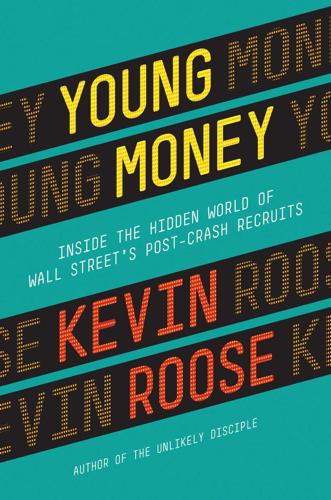
Young Money: Inside the Hidden World of Wall Street's Post-Crash Recruits
by
Kevin Roose
Published 18 Feb 2014
See Bryan Burrough and John Helyar’s Barbarians at the Gate, the classic book about the 1980s leveraged buyout business. “firms have been pushing the process earlier and earlier”: Kevin Roose, “A Grab for Wall Street’s Rising Stars Before They’ve Risen, New York Times (DealBook), March 9, 2011. “In social psychology, this phenomenon is called the ‘hedonic treadmill’”: Shane Frederick, “Hedonic Treadmill,” entry in Encyclopedia of Social Psychology, eds. R. F. Baumeister and Kathleen D. Vohs, Sage Publications, 2007. “There was less to go around…tighter opportunity sets”: Max Abelson and Ambereen Choudhury, “After Massive Job Cuts, Wall Street’s a Different Place,” Bloomberg Businessweek, December 1, 2011.
…
He had the front-office banking job he’d always wanted, he was earning what many twenty-three-year-olds would consider an obscene amount of money, and he had plenty of opportunities on the horizon. But he was having trouble moving up to the next, slightly more elite, slightly better-paid level of Wall Street privilege, and his disappointment was real. In social psychology, this phenomenon is called the “hedonic treadmill”—the shifting of desires relative to achievements. And although it applies in every industry, it’s baked in to Wall Street’s basic ethos. By virtue of their stations in life, young Wall Street bankers and traders are rarely unlucky, but they are always relatively unlucky—there is always someone, somewhere close by, making ten times more money or with ten times more responsibility and status.
…
Some of them had kept their noses to the grindstone, worked hundred-hour weeks well into their thirties, and eschewed the pleasures of a normal life for a chance at rapid, lucrative career advancement. They jumped to the buy side when the time was right, or remained on the management track at their firms, and saw their income increase rapidly year after year. Others had stepped off the hedonic treadmill, accepted the fact that they were likely never going to make it to the CEO’s chair, and did the best they could to provide value to their firms in whatever roles they inhabited. This was a less sexy version of the finance path, but one that was becoming increasingly appealing as the financial sector struggled, and people attempted to mitigate their personal risks by staying put.
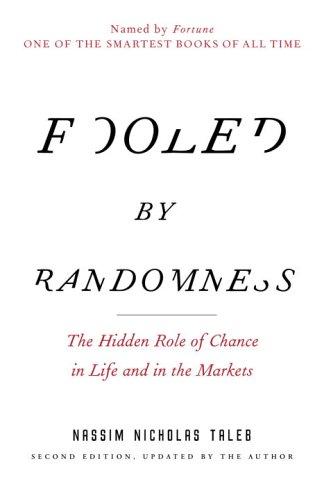
Fooled by Randomness: The Hidden Role of Chance in Life and in the Markets
by
Nassim Nicholas Taleb
Published 1 Jan 2001
For the new field of neuroeconomics, see discussions in Glimcher (2002) and Camerer, Loewenstein and Prelec (2003). Sensitivity to losses: Note that losses matter more than gains, but you become rapidly desensitized to them (a loss of $10,000 is better than ten losses of $1,000). Gains matter less than losses, and large gains even less (ten gains of $1,000 are better than one gain of $10,000). Hedonic treadmill: My late friend Jimmy Powers used to go out of his way to show me very wealthy investment bankers acting miserably after a bad day. How good is all this wealth for them if they adjust to it to such a point that a single bad day can annihilate the effect of all these past successes? If things do not accumulate well then it follows that humans should follow a different set of strategies.
…
Frank, Robert H., 1999, Luxury Fever: Why Money Fails to Satisfy in an Era of Excess. Princeton, N.J.: Princeton University Press. Frank, R. H., and P. J. Cook, 1995, The WinnerTake-All Society: Why the Few at the Top Get So Much More Than the Rest of Us. New York: Free Press. Frederick, S., and G. Loewenstein, 1999, “Hedonic Adaptation,” in Kahneman, Diener and Schwartz. Freedman, D. A., and P. B. Stark, 2003, “What Is the Chance of an Earthquake?” Department of Statistics, University of California, Berkeley, CA 94720-3860. Technical Report 611. September 2001; revised January 2003. Fukuyama, Francis,1992, The End of History and the Last Man.
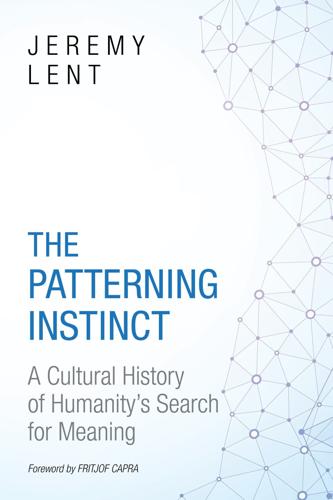
The Patterning Instinct: A Cultural History of Humanity's Search for Meaning
by
Jeremy Lent
Published 22 May 2017
In each case, they found the same results: overall life satisfaction failed to increase with the rise in income levels.75 Easterlin's explanation for this paradox was that while economic growth raised people's standard of living, it also raised their aspirations, leading to a negative effect on their happiness. This effect has become known as the “hedonic treadmill”: no matter how affluent people become, they continually compare themselves with others in their peer group and always desire more. In our globally interconnected world, the standards people compare themselves against are no longer exclusively those of their local peer group but those of the global elite whose images are continually thrust into their presence. The global “hedonic treadmill” is getting ever faster and broader.76 Edward Bernays, the mastermind of modern consumerism, and his followers appear to have succeeded only too well.
…
It then prevails even beyond the times and places where it is advantageous to its followers.” This is another form of lock-in: ideological. “Big ideas,” McNeil observes, “all became orthodoxies, enmeshed in social and political systems, and difficult to dislodge even if they became costly.”68* The “Hedonic Treadmill” A powerful example of ideological lock-in is the standard of gross domestic product (GDP), by which the performance of governments and countries is judged across the world. The economist who invented it in the 1930s, Simon Kuznets, warned that it was a “potentially dangerous oversimplification that could be misleading” and subject to “resulting abuse.”
…
With the advent of “consumptionism,” capitalism instilled an intoxicating new purpose into people's lives, promising them that their feelings of emptiness, meaninglessness, or alienation could be cured through the possession and conspicuous use of manufactured goods. No matter that the “cure” was only temporary: through hard work and dedication, you could earn more money to purchase even more goods, thus stepping on to the hedonic treadmill. This pattern has become so embedded into the global construction of meaning that most people accept it without question. Those fortunate enough to possess more money than others gain more in the short term on the treadmill of temporary satisfaction. However, the ultimate beneficiaries are not human at all but rather the conceptual creations called corporations, which exist collectively to transform the human experience and the natural world into the monetized economy, regardless of the ultimate effect on humanity as a whole.
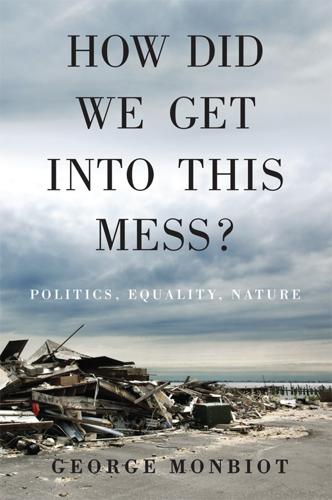
How Did We Get Into This Mess?: Politics, Equality, Nature
by
George Monbiot
Published 14 Apr 2016
He dated eighteen women in 2013, seeking ‘the short sharp hit which keeps you coming back despite the fact that the experience taken as a whole does not add up to anything worth having. My life … is beginning to dance to the Internet rhythm of desire satiated immediately and thinly.’ In seeking someone who was not trapped on the hedonic treadmill, he became trapped on the hedonic treadmill. Could it be this – the immediate satisfaction of desire, the readiness with which we can find comfort – that deprives us of greater freedoms? Does extreme comfort deaden the will to be free? If so, it is a habit learnt early and learnt hard. When children are housebound, we cannot expect them to develop an instinct for freedom that is intimately associated with being outdoors.
…
Aspiration, which increases with income, ensures that the point of arrival, of sustained satisfaction, retreats before us. The researchers found that those who watch a lot of television derive less satisfaction from a given level of income than those who watch only a little. Television speeds up the hedonic treadmill, forcing us to strive even harder to sustain the same level of satisfaction. You have only to think of the wall-to-wall auctions on daytime TV, Dragon’s Den, The Apprentice and the myriad forms of career-making competition the medium celebrates, the generalised obsession with fame and wealth, the pervasive sense, in watching it, that life is somewhere other than where you are, to see why this might be.
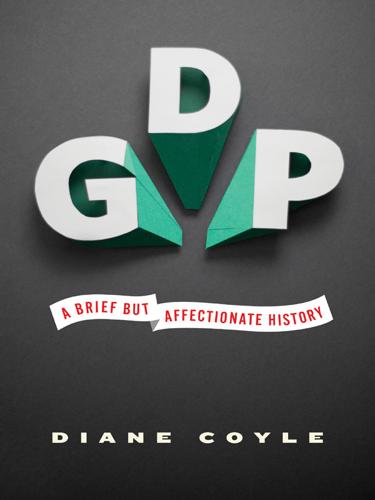
GDP: A Brief but Affectionate History
by
Diane Coyle
Published 23 Feb 2014
The “conspicuous consumption” first named by Thorstein Veblen is a kind of arms race of status, and one that the excesses of corporate pay have let rip in the past quarter century. What’s more, the satisfaction we get from extra income and purchases wears off quickly, leaving us, like Edmund in the story, hungry for another fix. The evocative technical term for this is the hedonic treadmill. If money is an addiction, it’s not surprising that some people think society needs help being weaned off it. Economists such as Robert Frank and Richard Layard advocate a tax on purchases of luxury items. Another policy recommendation has had more traction: that instead of measuring GDP we should be measuring happiness.
…
See also fiscal policy; monetary policy; policy and politics government services, 38–39 Great Depression, 12–13, 119, 121 Greece, 1–5, 72, 73, 138 Greenspan, Alan, 83, 88, 94, 102 Gross Domestic Product (GDP): adjustments and reforms of, 92, 117, 136–38; availability of country data on, 78; calculation issues in, 2, 32–34, 52–54; circular flow model of, 26–27, 27f, 57, 63; complexity of, 24–25, 28–31; concept of, 4–5, 24–31 (see also purpose and meanings of); country comparisons of, 42; criticisms of, 5, 14, 104, 110–11; future of, 121–40; GNP vs., 25; “gross” component of, 25, 30; HDI correlated with, 73–74; importance of, 1–6, 42, 135–36; information gathering for, 33, 37, 51–53, 137–38; international comparisons of, 48–57; issues facing, 121–35; loans influenced by, 3; origins of, 7, 16–18, 119–20; postwar, 43–45, 43t, 62–63; purpose and meanings of, 5–6, 92, 121, 136, 138–40 (see also concept of); recommendations concerning, 136–40; revisions of, 36; spending-income relationship in, 30, 33–34; statistical patterns in, 3; well-being and welfare correlated with, 111, 117, 136; well-being and welfare not measured by, 5, 14, 40, 91–92, 111–14, 124–25, 136, 140 Gross National Product (GNP), 15–16, 25, 115–16 Guevara, Che, 68 Haldane, Andrew, 99, 101 happiness, 5, 6, 110–13, 136, 137. See also well-being and welfare Harrod, Roy, 55 Hart, Keith, 107 HDI. See Human Development Index Healey, Denis, 35–36 hedonic price measurement, 35, 88–90 hedonic treadmill, 112 Heston, Alan, 50 high-income countries. See developed/high-income countries Hitler, Adolf, 41 Holland, 8, 17, 20 Hoover, Herbert, 13 household production/services, 38, 39, 106, 108–9, 140 human capital, 134, 135 Human Development Index (HDI), 72–74, 115, 136, 137 IMF. See International Monetary Fund imputed bank service charge (IBSC), 102–3 income, as GDP measure, 25, 26t income inequality.
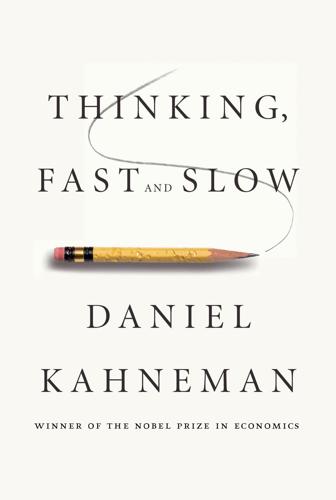
Thinking, Fast and Slow
by
Daniel Kahneman
Published 24 Oct 2011
An objective improvement can be experienced as a loss, for example, when an employee receives a smaller raise than everyone else in the office. The experience of pleasure or pain associated with a change of state is also critically dependent on the dynamics of hedonic adaptation. Brickman and Campbell’s (1971) concept of the hedonic treadmill suggests the radical hypothesis that rapid adaptation will cause the effects of any objective improvement to be short-lived. The complexity and subtlety of hedonic experience make it difficult for the decision maker to anticipate the actual experience that outcomes will produce.
…
Silver, “Coping with Irrevocable Loss, Cataclysms, Crises, and Catastrophes: Psychology in Action,” American Psychological Association, Master Lecture Series 6 (1987): 189–235. studies of colostomy patients: Dylan Smith et al., “Misremembering Colostomies? Former P atients Give Lower Utility Ratings than Do Current Patients,” Health Psychology 25 (2006): 688–95. George Loewenstein and Peter A. Ubel, “Hedonic Adaptation and the Role of Decision and Experience Utility in Public Policy,” Journal of Public Economics 92 (2008): 1795–1810. the word miswanting: Daniel Gilbert and Timothy D. Wilson, “Miswanting: Some Problems in Affective Forecasting,” in Feeling and Thinking: The Role of Affect in Social Cognition, ed.
…
Joseph P. Forgas (New York: Cambridge University Press, 2000), 178–97. Conclusions too important to be ignored: Paul Dolan and Daniel Kahneman, “Interpretations of Utility and Their Implications for the Valuation of Health,” Economic Journal 118 (2008): 215–234. Loewenstein and Ubel, “Hedonic Adaptation and the Role of Decision and Experience Utility in Public Policy.” guide government policies: Progress has been especially rapid in the UK, where the use of measures of well-being is now official government policy. These advances were due in good part to the influence of Lord Richard Layard’s book Happiness: Lessons from a New Science, first published in 2005.
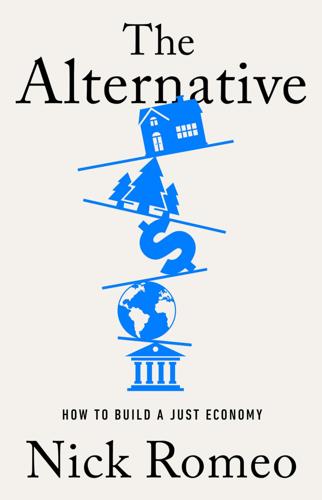
The Alternative: How to Build a Just Economy
by
Nick Romeo
Published 15 Jan 2024
In a narrow sense of the term, he’s behaving rationally. Yet a series of seemingly rational decisions somehow culminates in catastrophe. At each new level of wealth, instead of enjoying the resources he already has, he quickly becomes dissatisfied, returning to a previous level of happiness in a pattern sometimes called the hedonic treadmill. Even very late in the story, Pahóm still has the option to forfeit the trivial sum of a thousand rubles, rest in the grass, and walk leisurely back to the tribe. Yet by this point, he is in the grips of a deadly sunk cost fallacy. He has already invested so much effort; it would be foolish to stop now!
…
“I have grasped too much and ruined the whole affair,” he thinks. Like the heroes of ancient Greek tragedy, he recognizes a vital truth only when it is too late. Long before behavioral economics existed, Tolstoy grasped the structure of some of its central concepts, such as the sunk cost fallacy and the hedonic treadmill. Yet he understands these phenomena more as frailties than fallacies, not bugs in our cognitive software so much as risks within a landscape of moral possibilities. The Devil himself uses them to gain power over Pahóm’s soul. Pahóm is not just predictably irrational. His choices have a crucial moral dimension, and the desire to constantly acquire more deforms his beliefs and behavior.
…
Keynes, reflecting on the philosopher Edmund Burke, put the idea well: “Our power of prediction is so slight, our knowledge of remote consequences so uncertain, that it is seldom wise to sacrifice a present benefit for a doubtful advantage in the future.”2 Ruining your present for a future you may never enjoy is unwise. Yet this does not mean that a good life consists of a consumerist frenzy of immediate pleasures, which, even if one can afford it, merely invites dissatisfaction and exhaustion on the hedonic treadmill. It’s rather a reminder to cultivate more enduring sources of satisfaction, such as family and friendships, ethical conduct, dedication to worthy causes, and the pursuit of excellence in meaningful activities. Tolstoy, like Keynes, recognized that the major topics of economics are inescapably moral and political.
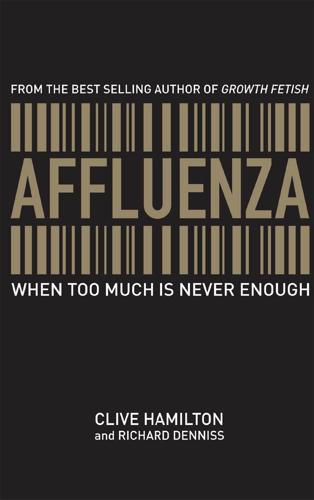
Affluenza: When Too Much Is Never Enough
by
Clive Hamilton
and
Richard Denniss
Published 31 May 2005
Our new discontent causes us to set our goals higher still. In a world dominated by money hunger, if our expectations continue to rise in advance of our incomes we will never achieve a level of income that satisfies. Richard Easterlin, who did much of the early work in this field, described this phenomenon as a ‘hedonic treadmill’, where people have to keep running in order to keep up with the others but never advance. The only way to win is to stop playing the game. Rich societies such as Australia seem to be in the grip of a collective psychological disorder. We react with alarm and sympathy when we come across an anorexic who is convinced she is fat, whose view of reality is so obviously distorted.
…
CHAPTER 11 1 Lambesis Agency 2004, L Style Report, 9th edn, <http://www.lstylereport.com> [11 January 2005]. 209 INDEX Abbott, Tony, 133 advertising, 4, 28, 36–40, 41, 43, 55, 61, 101, 109, 120, 126,172, 187 and neuroscience, 41–2 fake memories in, 46 children and, 47, 50–51 of breakfast cereals, 48–50, 150–1 of cars, 10, 45 of junk food, 51 of margarine, 43 of tobacco, 51–2, 125 of vitamins, 94 restrictions on, 188 use of nagging, 53–4 affluenza, defined, 3, 7 alcohol, 115–17, 180 annual leave see holiday leave anorexia, 16 appliances, 22–3, 37, 38 attention deficit hyperactivity disorder, 55 Aussie battler, 3, 133–4, 136, 139, 151, 180, see also politics Australian Labor Party, 3, 137–9, 151, 191 bankruptcy, 72–3, 175 banks, 12, 75–6, 77–80 barbecues, 23–4 210 INDEX Blair, Tony, 191 botox, 37, 128 brands, 23, 34, 38–40, 41–33, 45, 53, 55, 56, 110, 187 brand loyalty, 39, 55, 189 brand disloyalty, 190 see also advertising; marketing Bray, Robert, 66 Buddhism, 17 caesareans, 34 Calvinism, 16, 17 cars, 10, 13, 45 4WDs, 44–5, 188 see also advertising celebrity, need for, 56–7 children, 21 advertising and, 47–57, 150 and clothes, 33–4 as fashion accessories, 33 behavioural problems of, 55 financial calculus of having, 34–5, 142–5, impact of materialism on, 149–50 sexualisation of, 57 tinys, 52–3 tweens, 55–7 see also downshifting choice, alleged benefits of, 40–1 clothes, 13, 45, 166 see also children Coalition Government, 136–9 see also Liberal Party community, 95, 119, 146, 148, 183 compulsive shopping, 15, 61 see also oniomania conscious consumption, 166, 186–90 conspicuous consumption, 8, 88, 96 cosmetic surgery, 10, 57, 127–9, see also botox cosmetics, 37 Costello, Peter, 35, 141 credit cards, 10–2, 19, 72–81, 102, 103 see also debt debt, 71 passim, 137, 179 attitudes to, 74, 75 Debtors Anonymous, 61, 80–1 foreign debt truck, 82 home equity loans, 79–80 marketing of, 71, 75–7 national debt, 81–4 211 AFFLUENZA deferred happiness syndrome, 89–2, 98, 169 deferrers, 175–6 see also deferred happiness syndrome democratisation of luxury, 26 depression, 16, 38, 93, 114 deprivation, 3, 66, 192, see also poverty, hardship disease-mongering, 120–7 doorbuster sales, 78 downshifters characteristics of, 154–6 motivations of, 156–7, 158 passim new lifestyle of, 165–7 regrets of, 173 downshifting, 17, 152, 153 passim, 180 children and, 156, 159, 160, 166–7 defined, 153 for dogs, 33 politics of, 175, 183–6 reactions to, 176–70 drugs, 114–16, 118 Easterlin, Richard, 6 Eckersley, Richard, 148 economic growth, 3, 4–5, 62–3, 114, 118, 136, 141, 159, 185, 190, 193 environment, 111, 112, 157, 179, 190, 193, 194 evangelical Christianity, 182–3 family size, 20–1 federal election 2004, 3, 136–8 female sexual dysfunction, 121–3 feminism, 27 flexible work hours see work hours Frank, Robert, 9 Frey, Bruno, 63 full employment, 192 gratifiers, 175 growth fetishism, viii, 18, 142, 193 Guevara, Che, 28 happiness, 58, 63–4, 113, 118, 127, 146, 152, 175–6 hardship imagined, 64 genuine, 66 212 INDEX Hayek, Friedrich, 186 health, 113, 156, 157, 164, 166, 179, 193 see also work hours hedonic treadmill, 6, 58, 184 holiday leave, 87, 88, 93 Hood, Robin, 190 houses, 13, 20, 60, 101 size of, 20, 21–2, 37 prices of, 20, 21–2, 134, 137, 179 Howard, John, 82, 138, 141, 142 Idell, Cheryl, 53 identity, 13–4, 45 imports, 73, 83–4 incomes, 4, 58–9, 112 Indigenous Australians, 113 intermittent husband syndrome, 91 karoshi, 92 Kasser, Tim, 14 Klein, Naomi, 38 Latham, Mark, 137, 138 Liberal Party, 136, 138, 139, 151 Luis Vuitton, 9, 28 luxury fever, 8–10, 12, 19, 135, 143, 178 luxury goods, 9–10, 13, 16, 19, 21, 26, 127, 170 Mandelson, Peter, 191 marketing, 13, 28, 37–8, 42, 45, 47, 53, 104, 110–1, 118, 120, 126, 179 see also advertising materialism, 14–5, 17, 47, 55, 89, 119, 154, 184 and values, 146–52 meningococcal disease, 120 middle class, 8–9, 59, 74, 136 middle-class welfare, 139-42, 180 Mill, John Stuart, 138, 186 money, 5, 7, 11, 16–7, 19, 58, 63, 67–8, 80, 97, 98–9, 103, 107, 112, 120, 139, 143–4, 148, 152, 159, 166, 171, 175–7, 178, 187 hunger for, 6, 17, 18, 137, 146, 180, 183–4 see also debt money coma, 80 Moynihan, Ray, 121, 123 213 AFFLUENZA needs, 4, 7, 29, 59–63, 65, 66, 100, 147, 148 neoliberalism, 7, 17, 36, 39–40, 79, 138 as new form of oppression, 186 of relationships, 182 of tax cuts, 136, 139 of the Aussie battler, 133–5, 151 of welfare, 139, 140, 141, 180 of wellbeing, 193–4 progressive, 181, 182 pornography, 151 post-materialism, 4, 155, 157, 184 poverty, 18, 181, 190–2 poverty line, 66–7 presenteeism, 94 privatisation, 40 psychology, role in marketing, 36–41, 46, 51, 53–4, 61 obesity, 118 obsolescence, 110 oniomania, 15–6 see also compulsive shopping Olsen twins, 57 O’Neill, Jessie, 7 ovens, 22–3 overconsumption, 7, 19 passim, 72, 96, 122, 178 overwork see work hours Pavlov, Ivan, 41, 47 plastic bag levy, 103 pets, 28–33 humanisation of, 30, 33 pharmaceutical companies, 120–1, 126 Pocock, Barbara, 98 politics, 60–1, 66, 119, 183 conservative, 144, 181, 190 of choice, 168, 172 relationships, 14, 81, 97, 179, 193, 194 relationship debts, 175 see also work hours retail therapy, 16, 100–1 retirement anxiety, 92, 173–4 right-hand ring, 27 Ritalin, 118 Roberts, Kevin, 39 saving, 71, 82 see also debt 214 INDEX Schor, Juliet, 48 sea change, 153, 155 see also downshifting self-storage industry, 25, 102 social anxiety disorder, 124–6 status, 170 Stutzer, Alois, 63 suffering rich, 63 sunglasses, 25–6 television, 9, 21, 22, 60, 183, 188 lifestyle programs, 37 sales, 24–5 Trapaga, Monica, 49–50 trickle down theory, 191 twin deficits theory, 83 values, 180–3 see also materialism Veblen, Thorstein, 8 Vidal, Gore, 6 voluntary simplicity, 154, 187 see also downshifting wasteful consumption, 100 passim, 179, 190, 194 and guilt, 106–8, 112 wealth, 81–2 whitegoods, 23 see also appliances wellbeing, 14, 40, 54, 58, 113, 115, 118, 142, 163, 190 wellbeing manifesto, 193, 217–24 work hours, 81, 91, 95–6, 158, 161, 163, 174, 179 and children, 90–1 excessive, 85–9, 158 impact on communities, 95–7 impact on health, 90–4, 122 impact on relationships, 85, 90, 91, 97–9, 122, 149 working class, 8–9 workophiles, 87 215 A political manifesto for wellbeing Preamble Australians are three times richer than their parents and grandparents were in the 1950s, but they are not happier.
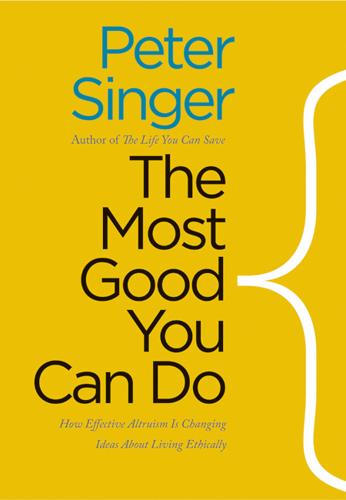
The Most Good You Can Do: How Effective Altruism Is Changing Ideas About Living Ethically
by
Peter Singer
Published 1 Jan 2015
Later he realized that it wasn’t a sacrifice at all because his sense of engagement in making the world a better place means far more to him than new gadgets or a bigger house.2 Julia Wise, as we saw, sees her ability to save hundreds of lives as an “amazing opportunity” but demands no more of herself than she can cheerfully give. Ian Ross is familiar with psychological research about the “hedonic treadmill” of consumer spending, which shows that when we consume more, we enjoy it for a short time but then adapt to that level and need to consume still more to maintain our level of enjoyment. Hence, he says, while donating doesn’t give him much of a rush, he also doesn’t think he is missing out on much.
…
The difference in the level of reported happiness between those who answered yes to the question about donating to charity and those who answered no was equivalent to the difference made by a doubling of income.9 The survey shows a correlation, not causation, and it seems that the causation can run both ways because people who are happy are more likely to give to help others.10 This observation led Aknin, Dunn, and Norton to ask whether recalling an act of spending to help others leads to an increase in happiness and whether this increase in turn makes people more likely to spend on others in the near future. They were able to show that there is a reciprocal relation between the two, producing a positive feedback loop that leads to more spending on others and greater happiness. The authors write that their findings might “have implications for individuals seeking to escape the hedonic treadmill” and offer “a path to sustainable happiness.”11 Many people accept the notion that money can’t buy happiness and therefore that for people living in affluent countries on average or above-average incomes, giving money can bring benefits that outweigh the loss of spending power. But what of donating a part of one’s body?
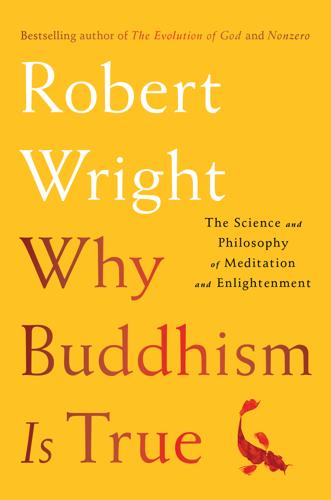
Why Buddhism is True
by
Robert Wright
This is what I discovered after immersing myself in evolutionary psychology: knowing the truth about your situation, at least in the form that evolutionary psychology provides it, doesn’t necessarily make your life any better. In fact, it can actually make it worse. You’re still stuck in the natural human cycle of ultimately futile pleasure-seeking—what psychologists sometimes call “the hedonic treadmill”—but now you have new reason to see the absurdity of it. In other words, now you see that it’s a treadmill, a treadmill specifically designed to keep you running, often without really getting anywhere—yet you keep running! And powdered-sugar doughnuts are just the tip of the iceberg. I mean, the truth is, it’s not all that uncomfortable to be aware of the Darwinian logic behind your lack of dietary self-discipline.
…
Underlying it all is the happiness delusion. As the Buddha emphasized, our ongoing attempts to feel better tend to involve an overestimation of how long “better” is going to last. What’s more, when “better” ends, it can be followed by “worse”—an unsettled feeling, a thirst for more. Long before psychologists were describing the hedonic treadmill, the Buddha saw it. What he couldn’t have seen is its source. We were built by natural selection, and natural selection works to maximize genetic proliferation, period. In addition to not caring about the truth per se, it doesn’t care about our long-term happiness. It will readily delude us about what does and doesn’t bring lasting happiness if that delusion has propelled our ancestors’ genes forward.
…
See also not-self anger, 17, 19, 31–32, 46, 55, 210, 295n anxiety, 4, 20, 22, 23, 26, 36–40, 42, 50, 195, 234, 251, 252, 254, 255, 285n social, 36–40 arhats, 60 armadillos, 237–38 art, 105, 238 atheism, 2 atman, 204 attention-deficit disorder, 17, 18, 137 as addiction, 137–39 attribution error, 176–78, 179–81 autism, 87 babies, 169 bacteria, 29, 197 gut, 197 Bahuna Sutta, 288n Baptists, 259, 260 Barkow, Jerome, 86 Batchelor, Stephen, 220 Buddhism Without Beliefs, 220 beauty, 50, 55, 140, 272 truth and, 264–66 Beck, Aaron, 42 beer, 109 Before Sunrise (movie), 94–95 beneffectance, 83 Bible, 176, 259 biological weapons, 244 biotechnology, 18 birds, 193–95, 197, 198, 200, 204, 214 bliss, 6, 48, 51, 55, 215–16, 241, 248–50 Bloggingheads.tv, 200, 201 Bloom, Paul, 156–57, 165–66 How Pleasure Works, 157 Bodhi, Bhikkhu, 191–92, 215, 218, 287n bodhisattva, 300n body language, 87 boredom, 255 bounds of the self, 196–214, 273 brahman, 204 brain, 3–4, 7, 13, 25, 108, 122–23, 125, 144, 154, 179, 197–98, 219, 224, 226, 242, 275, 288n, 291n, 294n Capgras delusion, 153–56, 188 chemicals, 8–9, 127 Darwinian benefits of self-delusion, 82–86 default mode network, 45–47, 50, 108, 117–19, 135, 167, 200 emptiness and, 153–71, 172–92 illusions and, 171 language and, 78–79 Libet studies, 81 modular mind and, 86–90, 91–120 pleasure and, 7–9, 170–71 prefrontal activity, 125–27 priming, 160 reason and chocolate, 125–31 reason and feelings 121–41 split-brain experiments, 78–82, 99–100 stories and, 170–71 theory of mind network, 87, 108 breath, 16 focus on, 16, 19, 20, 46–48, 49, 53, 107, 115, 252 Brewer, Judson, 135–36, 206–7 Buddha, The, 5, 6, 11, 38, 41, 42, 54, 57, 59, 60, 72, 101, 103, 119, 208–9, 211–12, 261, 285n, 286n, 288n Discourse on the Not-Self, 60–74, 75, 92, 113, 222 “historical,” 73–74 Buddhism, 12 different schools of, 24, 143, 194, 216, 220, 262 Eightfold Path, 49, 139, 190, 228 emptiness doctrine, 142–52, 153–71, 172–92 five aggregates, 61–69, 73, 75–77, 92 Four Noble Truths, 190, 209, 271 Hinduism compared to, 194, 200, 204–6 list of truths, 269–75 Mahayana, 24 and n, 25 and n, 163, 201, 203, 214, 292n, 295n nirvana, 215–24 not-self doctrine, 58–74, 75, 92, 140, 201–3 paradox in, 15–26 “secular,” as religion, 261–64 Theravada, 24 and n, 292n, 295n Tibetan, 10, 105 Western, 2, 11, 13, 110, 269 Zen, 105, 167 Buddhism and Modern Psychology (course), 200 buzz-saw form, 147–49 Cantril, Hadley, 181–84 Capgras delusion, 153–56, 188, 292n career, 5–6, 99, 100, 102, 290n Carnegie Mellon, 122 cars, 159, 209 accidents, 83 road rage illusion, 31–32, 33 Catholicism, 24, 260 causality, 217–24, 296n caution, 133 cells, 242 CEO, 101–4 illusion, 101–4 self as, 62–63, 72, 88, 95, 101–4, 106, 114, 272, 286n Chah, Ajahn, 58–60, 68, 73, 148 Chandrakirti, 237 charioteer metaphor, 125, 127 “cheater detection” module, 87–88 chimpanzees, 29 chocolate, 209 reason and, 125–31 Christianity, 259–61 Christians, 24, 206 cigarettes, 131, 135–38, 140, 141 clarity, 250–53, 299n begins at home, 250–53 saving the world through, 256–59 wisdom of, 252 climate change, 243 Cobain, Kurt, 216 cognitive-behavioral therapy, 40, 42 compassion, 185–91, 265, 272 computers, 154, 155, 253 concentration, 17, 46 meditation, 47–50, 54 mindfulness and, 47–50, 54 conditioned arising, 217–20, 275, 296n consciousness, 24, 61, 62, 65–69, 75–77, 162, 245, 266, 286n, 287n, 288n, 291n control and, 75–90 liberated, 66–67, 286n, 287n, 288n modular mind, 86–90, 91–120 of motivation, 81 split-brain experiments, 78–82, 99–100 wandering mind and, 44–47, 57, 105–20 witness, 68 construction noise, 145, 146–49 consultation, 130 consumerism, 6 control, 61–63, 75–90, 104, 220, 222 addiction and, 131–41 conscious mind and, 75–90 Darwinian benefits of self-delusion, 82–86 letting go, 71–74 paradox of, 71–74 self and, 61–63, 75–90, 93, 120, 121–41, 190, 285n, 286n, 290n split-brain experiments, 78–82, 99–100 Conze, Edward, 69 Cosmides, Leda, 96, 98, 182–83 craving, 119, 209–14, 218, 220, 222, 228, 271, 285n, 295n, 296n, 297n cultural evolution, 242–43 curiosity, 116, 117 Dalai Lama, 16, 17 Daly, Martin, 98 Dartmouth College, 181 Darwin, Charles, 237 The Origin of Species, 29 Darwinism, 9, 10, 29, 41, 96, 99, 118, 119, 158, 161, 162, 173, 212, 224, 266, 274 benefits of self-delusion, 82–86 default mode network, 45–47, 50, 108, 117–19, 135, 167, 200 delusion, 2–6, 13, 25, 154, 156, 213, 226, 256, 296n Capgras, 153–56, 188, 292n everyday, 5–6 happiness, 41 levels of, 40–43 self-, 82–86, 102 depression, 4, 143 desire, 209–14 detachment, 21, 66, 72, 95–96, 110, 119, 190 dharma, 3, 117, 188, 189, 191, 263–64 movies, 3, 13 Diem, Ngo Dinh, 22 Discourse on the Not-Self, 60–74, 75, 92, 113, 222 disease, 160–61 avoidance, 100 dogs, 197 domain-specific psychological mechanisms, 182–83 dopamine, 8–9, 127, 283n dorsolateral prefrontal cortex, 127 doughnuts, 5, 6, 8–10, 89 illusion, 30, 33 drugs, 51, 86, 131, 134, 137, 141, 215–16 Dryden, John, “Jealousy: Tyrant of the Mind,” 97 Duc, Thich Quang, 22, 24 dukkha, 6, 42, 53, 56, 209, 212, 251, 253, 254, 263, 271, 289n, 290n dvesha, 212, 295n Eckel, Malcolm David, 292n ecstasy, 48, 50 egoism, 59, 84 Eightfold Path, 49, 139, 190, 228 Einstein, Albert, 235 enlightenment and, 235–39 emptiness, 24 and n, 25 and n, 142–52, 153–71, 194, 201, 213, 228, 232, 255, 265, 274, 292n, 293n, 295n essence and, 154–71, 172–92 moral judgment and, 173, 174–79 oneness and, 201–7 as truth, 232–33 upside of, 153–71 enemies, 40, 139, 179, 180–91 loving, 185–91 engagement, 66–67, 287n enlightenment, 26, 53–55, 57, 60, 68, 143, 154, 188, 190, 208, 214, 218, 223–24, 225–45, 251, 285n, 287n, 297n, 299n, 300n accessibility of, 53–54 approaches to, 53–55 checklist, 227–29 definition of, 227–28 Einstein and, 235–39 liberation and, 253–56 moral meaning and, 229, 239–42 natural selection and, 235–45 not-self experience and, 229–32 slippery slope toward, 253–56 truth as emptiness, 232–33 environment, 33–40 mismatch, 33–38, 40–41 social anxiety and, 36–40 epilepsy, 78 epiphanies,106 epiphenomenalism, 284n equanimity, 298n, 301n essence, 148, 149, 154–71, 172–92, 201, 202, 213, 214, 233, 235, 236–38, 265, 274, 292n, 293n affect and, 156–65, 236, 292n emptiness and, 154–71, 172–92 essence-of-person machinery, 174–79 moral, 173, 174–79 of opposition, 181–85 pleasure and, 166–67 -preservation machinery, 179–81 stories and, 165–70 essentialism, 156–57, 274 ethnicity, 19, 102, 244, 256 evolution, 3–5, 7, 28, 73, 82, 98, 108, 124, 126, 161, 173–74, 224, 242, 274 bounds of self and, 196–214, 273 cultural, 242–43 Darwinian benefits of self-delusion, 82–86 enlightenment and, 225–45 illusion and, 29–43 modules and, 86–90, 91–104, 108–9, 117–19 pleasure and, 6–9 evolutionary psychology, 3, 10–11, 13, 86, 96, 98, 266, 269, 272 expediency, 188 facial expressions, 87 failure, 15, 84, 117 false positives, 32–38, 41 fear, 22, 23, 26, 32, 36, 42, 102, 237, 254, 255 “five fears,” 38 feelings, 4, 20–22, 26, 61, 62, 66, 75–77, 90, 154, 223, 237–39, 272, 284n, 295n in cosmic context, 233–35 emptiness and, 153–71, 172–92 environmental mismatch and, 33–38, 40–41 “false,” 27–38, 43, 103, 234 false positives, 32–38, 41 as filing, 118–20 illusions as, 22–26, 27–43, 103 infiltration of perception by, 159–62 of jealousy, 96–100 judgment and, 158–62 modular mind and, 86–90, 91–120 negative feelings as illusion, 22–26 nonattachment to, 95–96 observing, 251 obsolete urges, 30–32 original function of, 28–29 as priority labels, 118–20 RAIN, 135–36 reason and, 121–41 social anxiety, 36–40 stories and, 165–67 thought governed by, 123–25 “true,” 27–30, 32, 41, 234 wandering mind and, 105–20 See also specific feelings “Feels Like the First Time” (song), 246, 249 Fishburne, Laurence, 2 five aggregates, 61–69, 73, 75–77, 92, 286n, 287n, 289n, 297n “five fears,” 38 food, 5, 6, 7, 8–10, 29, 51, 124, 166, 169, 233, 238 chocolate and reason, 125–31 junk, 5, 6, 8–10, 30, 89 football, 132, 181–84 Forest Refuge, 117 form, 61–62, 66, 75–77, 143 formlessness, 142–52, 164, 165, 183, 228, 232, 274, 292n Four Foundations of Mindfulness, The, 12, 52–53 Four Noble Truths, 190, 209, 271 Freud, Sigmund, 133 friends, 124, 178, 179 frustration, 44, 46 fundamental attribution error, 176–78, 179–81 fusiform gyrus, 154 future, 108 Gazzaniga, Michael, 78, 79, 88–89, 94, 109, 110 genetics, 3–4, 7, 9, 29, 33, 38, 82, 109, 129, 162, 196, 226, 230, 231, 241, 294n globalization, 242–43, 257 saving the world through clarity, 256–59 Goering, Hermann, 157–59 Goldstein, Joseph, 110–14, 120, 151 The Experience of Insight, 110–14 Good Samaritans, 175–76 Grady, Michael, 48 gratification, 131–34 Great Britain, 80 Greater Discourse on the Destruction of Craving, The, 119 greed, 4, 212, 213 Greene, Joshua, 127 Greenwald, Anthony, 83 Griskevicius, Vladas, 94, 98, 100, 101 guilt, 126, 129, 196 Halberstam, David, 22 happiness, 6, 10, 143, 192, 263, 264, 266 delusion, 41 long-term, 41 short-term, 41 Harman, Gilbert, 177 Harvard University, 127, 174 Harvey, Peter, 72 Hastorf, Albert, 181–84 hatred, 4, 22, 55, 136, 139, 190, 212, 213, 244, 251 as addiction, 139–41 Heart Sutra, 143 “hedonic treadmill,” 10 “here and now,” 285n Hinduism, 167, 204–6 Buddhism compared to, 194, 200, 204–6 Hitler, Adolf, 180 home, 236 honesty, 177 Hume, David, 121–22, 123, 126, 127, 129, 130, 140–41 humor, 116 hunter-gatherer ancestors, 31, 33, 34, 35, 36, 38, 40, 82, 133, 134, 161, 162, 178, 242, 243 Hussein, Saddam, 180 illusion, 5–6, 9–11, 22–26, 53, 81, 85–86, 101–4, 171, 173, 206, 225, 270, 285n Darwinian benefits of self-delusion, 82–86 environmental mismatch and, 33–38, 40–41 false positives, 32–38, 41 feelings as, 22–26, 27–43, 103 Mahayana concept of, 24 The Matrix and, 1–3, 13, 14, 24, 54, 182, 225 natural selection and, 29–43 obsolete urges, 30–32 optical, 144 road rage, 31–32, 33 self as, 24–25, 101–4, 212, 213, 272 snake, 32–33, 41 social anxiety and, 36–40 impermanence, 56, 63, 92, 101, 222, 228, 285n, 289n, 290n, 297n impulse control, 138–39 infidelity, 86, 116–17, 129–30 inner judge, 127–31 insecurity, 186 insight, 110–15 insight meditation, 56–57, 106, 110–15 Insight Meditation Society, 19, 56, 110, 117, 150, 260 insula, 123 interdependence, 203–5, 243 interdependent co-arising, 203–5, 217n intertemporal utility function, 91–93, 98, 100 intimacy, 114 intuition, 198, 199, 233, 235, 272, 274 Iraq, 180, 181 Iraq War, 180 James, William, 196, 261–64 Varieties of Religious Experience, 261 Japan, 181 jaw grinding, 20–21, 69, 71 jealousy, 88, 96–101, 116 Jesus, 11, 73, 225, 260, 261 “historical,” 73 Jews, 206 Johnson, Samuel, 116 Journal of Marketing Research, 93 joy, 90, 192 judgment, 17, 32, 71, 151, 223, 298n affective, 156–65, 236 feelings and, 158–62 inner, 127–31 moral, 173, 174–79 junk food, 5, 6, 8–10, 30, 89 “Just as I Am” (hymn), 260 karma, 261 Kazmeier, Dick, 181, 184 Keats, John, 266 Kelman, Herbert C., 180 Kennedy, John F., 156, 157, 159, 165 Kenrick, Douglas, 94, 98, 100, 101 kin care, 40, 100, 188, 196–97, 234 “king” metaphor, 76–78, 92, 101, 286n Kinsley, Michael, 17 Knight, Bobby, 16, 17 Kornfield, Jack, 110 Kurzban, Robert, 77, 84, 89–90, 94, 128, 129 Why Everyone (Else) Is a Hypocrite: Evolution and the Modular Mind, 90 language, 64, 77, 78 brain and, 78–79 liberation, 53, 73, 150, 214, 218, 225, 271 consciousness, 66–67, 286n, 287n, 288n enlightenment and, 253–56 from suffering, 53 nirvana, 215–24 Libet, Benjamin, 81 libido, 133 Liebenson, Narayan, 150–51 Little Buddha (movie), 54 lizards, 29, 187–88, 194 love, 26, 185–91, 196, 237 parental, 189 loving-kindness, 17, 185–91, 256 for enemies, 185–91 meditation, 185–91 loyalty, 85 Mahayana Buddhism, 24 and n, 25 and n, 163, 201, 203, 214, 292n, 295n mantra, 47 mate-acquisition module, 98–100, 101, 103, 114, 290n Matrix, The (movie), 1–3, 12, 14, 24, 54, 182, 225, 241 medial orbitofrontal cortex, 170–71 meditation, 2, 11–14, 15–26, 27–28, 39–40, 44–57, 90, 145, 155, 207, 275 concentration, 47–50, 54 enlightenment and, 53–55 insight, 56–57, 106, 110–15 loving-kindness, 185–91 mindfulness, see mindfulness meditation nirvana and, 215–24 not-self doctrine, 58–74, 92, 140, 201–3, 295n paradoxes of, 15–26 pursuing enlightenment and, 253–56 reasons for, 44–57, 250–53 saving the world with clarity, 256–59 serenity, 47–50 success at, 15–16 time for, 255–56 unseen order and, 246–66 Vipassana, 56–57, 58, 105, 106, 109, 110–15, 151, 295n walking, 19, 264–65 wandering mind, 44–47, 57, 105–20 meditation retreats, 11–14, 18–19, 39, 42–47, 70, 77, 142, 146, 169, 172, 186, 193–96, 207, 246–50, 262 concentration, 47–50, 54 side effects of, 51–52 memory, 46, 84 mental formations, 61, 62, 66, 75–77, 285n, 286n mesial prefrontal cortex, 291n Metacognitive Revolution, 257, 259 metaphysics, 216, 261, 273 link to moral meaning, 229, 262–63, 266 truth and, 262–63, 266 metta, 17 metta meditation, 185–91 Microsoft, 88 middle age, 162–63 mind, 23, 223 control and, 75–90 jealousy and, 96–100 modular, 86–90, 91–120, 272 reason and feeling, 121–41 split-brain experiments, 78–82, 99–100 wandering, 44–47, 57, 105–20 mind-body problem, 72, 129 mindfulness, 11–14, 16, 44–57, 97, 105, 135, 222 concentration and, 47–50, 54 enlightenment and, 53–55 in real life, 50–53 Vipassana, 56–57, 58, 105, 106, 109, 110–15, 151, 295n wandering mind and, 44–47, 57, 105–20 mindfulness-based cognitive-behavioral therapy (MBCBT), 40 mindfulness meditation, 11–14, 16, 20, 27–28, 40, 42–43, 44–57, 104, 131, 135, 139, 140, 146, 149–52, 186, 216, 219, 223, 244–45, 250–53, 271, 275 ancient, 13 concentration, 47–50, 54 modern, 13 nirvana and, 215–24 saving the world through clarity, 256–59 unseen order and, 246–66 Vipassana, 56–57, 58, 105, 106, 109, 110–15, 151, 295n wandering mind and, 44–47, 57, 105–20 “mind-only” doctrine, 24 mirror-touch synesthesia, 198 MIT, 122 modules, 86–90, 91–104, 108, 182–83, 249, 272 addiction and, 131–41 jealousy, 96–100, 101 long-term, 128–29 mate-acquisition, 98–100, 101, 103, 114, 290n messy, 100–104 modular mind, 86–90, 91–120, 272 reason and, 128–38 self-discipline and, 132–36 short-term, 128–29 theory of mind, 87, 108 wandering mind and, 105–20 moha, 212, 295n molecules, 144 moment of truth, 256 money, 6, 80, 91–92, 99, 116, 122–23 as reward, 80 monkeys, 8 Montaigne, Michel de, 83 “moods” paradigm, 94 Moral Animal (Wright), 3, 11 moral meaning, 90, 151, 173, 174–79, 189, 229, 258, 260, 273–75 enlightenment and, 229, 239–42 essence and, 173–79 metaphysics and, 229, 262–63, 266 truth and, 252, 262–63, 266, 274 Moses, 54 motivation, 82, 99, 121, 122 consciousness of, 81 movies, 1–3, 54, 93–94, 102, 113 dharma, 3, 13 The Matrix, 1–3, 13, 14, 24, 54, 182, 225 Muhammad, 54 Müller-Lyer illusion, 144 muscle metaphor, for self-discipline, 132–36 music, 170 turning noise into, 146–49 Muslims, 24, 206 mutualism, 197 Nagel, Thomas, 239 natural selection, 3–5, 7, 13, 71, 82, 100, 108, 117–19, 124–27, 129, 132, 134, 161, 163, 174, 177–78, 184, 219, 224, 259, 266, 270–75 bounds of self and, 194–214, 273 enlightenment and, 225–45 illusion and, 29–43 pleasure and, 6–9 Nazism, 157, 180 negative feelings, 22–26, 160 as illusion, 22–26 Neurological Science, 153 New Republic, 17, 180 nihilism, 298n–301n nirvana, 53, 214, 215–24, 271, 296n, 297n conditioned arising, 217–20 unconditional, 216–24 Nirvana, 215–16 Nisbett, Richard, 80, 176 noise, 145–49 construction, 145, 146–49 turned into music, 146–49 nonattachment, 21, 66, 72, 95–96, 110, 119, 135 Nonzero (Wright), 243 not-self, 24 and n, 25, 56–57, 58–74, 75, 92, 101, 113, 140, 148, 194, 199, 201–3, 222, 228, 255, 272–73, 288n, 295n Discourse on the Not-Self, 60–74, 75, 92, 113, 222 enlightenment and, 229–32 exterior version of, 199, 208, 211, 212, 229–31, 273 interior version of, 199, 208, 209, 231, 273 nuclear weapons, 18, 181, 244 nucleus accumbens, 122 oneness, 193–214, 294n emptiness and, 201–7 optical illusions, 144 orgasm, 133, 166 pain, 26, 90, 123, 125, 151, 196 tooth, 69–71 paradox, 15–26, 199, 201, 205 in Buddhism, 15–26 of control, 71–74 of meditation, 15–26 passions, 64, 121, 140–41 calm, 140–41 violent, 140–41 past, 108 paticca-samuppada, 217–20 Paul, 54 peace, 26 perceptions, 4, 33, 61, 62, 66, 75–77, 145, 148, 155, 158, 183, 221, 223, 234, 238, 257, 265, 275 emptiness and, 153–71, 172–92 infiltrated by feeling, 159–62 Pessoa, Luiz, 127 The Cognitive-Emotional Brain, 127 physical body.
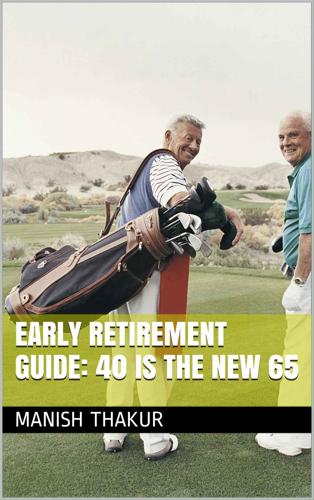
Early Retirement Guide: 40 is the new 65
by
Manish Thakur
Published 20 Dec 2015
The problem being is that we are often terrible at figuring out what makes us truly happy. Many people think having a lofty status or nice things will makes us happy, but Thomas Gilovich, a Cornell psychologist, found that experiences far outrank material possessions in their ability to create lasting or even momentary happiness. The psychological phenomenon is called the "Hedonic Treadmill." It is the tendency for people to quickly return to a relatively stable level of happiness, whether or not a positive or negative event has happened. This is because as we make more money, our expectations and desires also increase. So, in the end, it doesn't make sense to spend decades of our lives trying to find the next car, house, or gadget that will make us happier.
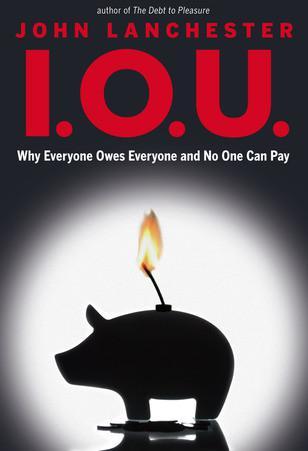
I.O.U.: Why Everyone Owes Everyone and No One Can Pay
by
John Lanchester
Published 14 Dec 2009
We wouldn’t notice and reflect just on the past decade of good times but on the whole question of what our societies had as their goals, where capitalism had brought us, and whether we wanted to keep working quite as hard as we had, in the direction of an always-receding vision of contentment. The “hedonic treadmill” is what this is called: as you have more and more, your idea of what it would take to be happy keeps receding just out of reach. It’s always the next pay raise, the next purchase, the next place you move to or go on holiday which will make you happy. The credit crunch could have been a moment to reflect on that.
…
Germain Depository Institutions Act, 185 Gaussian copula function, 116–17, 157–60, 163 Geithner, Timothy, 188 Germany, 58, 222, 229 banks of, 36, 77, 83, 227 housing in, 40, 91–92, 94 Nazis and, 138–39, 180 Glass-Steagall Act, 64–65, 187–88, 199–200 Goldilocks economy, 107, 174 Goldman Sachs, 40, 77–78, 163, 190, 225 profitability of, 78, 227–28 Goodwin, Sir Fred, 76–77, 204, 206 government, see politics, politicians Great Depression, 21, 65, 99, 170, 186–87, 199–200 greater fool theory, 104 Great Moderation, 107, 174 Greenspan, Alan: derivatives and, 166, 183–84 house prices and, 165, 173–74, 176 interest rates and, 107–8, 165, 173–77 regulation and, 184, 188–89 risk and, 142–43, 164–66, 174, 184 Greenspan put, 174 gross domestic product (GDP), 80–81 of Earth, 2–4, 80 free-market capitalism and, 14–15 of U.K., 32, 214, 220 Haarde, Geir, 12 Haji-Ioannou, Stelios, 227 Haldane, Andrew, 36–37 Halifax, 38, 89 Hamanaka, Yasuo, 51 Harlot’s Ghost (Mailer), 172 health care, 13, 17, 198, 217, 222, 226–27 hedges, hedge funds, 164–66, 171 definition of, 54n–55n LTCM and, 54–56, 80, 142, 162, 164–65, 230–31 risk and, 49–50, 52, 58, 115, 155, 205 hedonic treadmill, 218 heuristics, 137–38 hindsight bias, 137 Hollinger, 59 Home Owners’ Loan Corporation, 99 Hong Kong, 7–8, 13–14 Hongkong and Shanghai Bank, 7, 53 Hoover, Herbert, 98–99 houses, housing, home ownership, 27–29, 40, 82–102, 109–32, 149, 157–60, 163–66, 187 balance sheets and, 27–28, 38 bubbles in, 5, 86–87, 89–90, 92, 101, 115, 159–60, 170, 173–74, 176–78, 216–17, 219, 223 foreclosures on, 83–85, 126–31 in Iceland, 10–11 inflation and, 88, 101, 179–80 in Ireland, 92, 110, 170–71 leverage and, 60–61, 83, 95, 97 liquidity and, 28–29, 90, 96–97 for low-income borrowers, 100, 113, 118, 121–23, 126–27, 130–31, 163 politics and, 87–89, 91, 96–101, 177–78 prices of, 5, 28–29, 37–38, 61, 71, 86–91, 101, 109–11, 113, 115, 125, 157, 160, 164–66, 173–76, 194, 208 and sense of dislocation, 95–97 in U.K., 38, 87–98, 110, 122, 177–78 in U.S., 37, 82–86, 95, 97–101, 109–10, 114–15, 122, 125–31, 157–58, 163 see also mortgages HSBC, HSBC Holding, 36, 53 Hume, David, 147 Hypo Real Estate, 40 IBM, 58, 65, 69 Iceland, Icelanders, 15 economic crisis in, 9–12, 23–24, 40, 170, 216, 223 pots and pans revolution in, 223 Iguchi, Toshihide, 51 illusion of validity, 140 incentives, 206–11, 224, 228 for bankers, 19, 37, 206–8 bond-rating agencies and, 209–11 incomes, 4, 13, 17, 66, 171, 203–4, 212, 221 balance sheets and, 26, 28, 30–31 banking and, 19–20, 37, 206–8, 218 housing and, 60, 90, 93–94, 100, 126, 130–32, 163 inflation and, 92, 179 India, 3–4 industrialization, 96–97 inequality, see equality, inequality inflation, 107, 144, 147, 220–21 asset price, 109–10 housing and, 88, 101, 179–80 incomes and, 92, 179 interest rates and, 102–3, 172–73, 178–80, 221 ING Group, 36 Innumeracy (Paulos), 8 insolvency, see solvency, insolvency interest, interest rates, 11, 24, 58–64 bonds and, 20, 61–63, 103, 107–10, 112, 144 and cost of money, 102–3 credit and, 172–73, 175, 209 derivatives and, 20, 47, 58, 63–64, 66, 69–70, 114, 121–22 government determination of, 102–3, 107–8, 172–80, 221 Greenspan and, 107–8, 165, 173–77 loans and, 59–60, 66, 74, 102, 108, 145, 172–73 mortgages and, 8, 58, 86, 89, 91–92, 95, 100, 102, 108, 110, 112–14, 122, 128, 145–46, 174, 176, 212 risk and, 69–71, 144–45, 165 International Monetary Fund (IMF), 15, 19, 186 International Swaps and Derivatives Association (ISDA), 79–80, 183 investing, investments, investors, 28, 58–63, 101–9, 171–72, 175–77, 181, 187, 213, 221 banks and, 25, 30, 43, 228 blue chip, 106 bonds and, 62–63, 102–3, 107–8, 111, 208–9 of China, 109, 176–77 derivatives and, 54–56, 58, 69–70, 73, 117, 120, 132, 153, 158, 172, 184 diversification of, 146–48 hedge funds and, 54n–55n housing and, 86–88, 97, 101 interest rates and, 102–3 regulation and, 225–26 risk and, 5, 68, 70, 88, 103, 144, 146–53, 158, 165, 184, 190 in stocks, 59, 73, 101–7, 111, 146–52, 158, 175, 192 values and, 60–61, 104, 198 investment trusts, 55n Ireland, 15, 169–71, 177 economic contraction in, 170–71, 222–23 housing in, 92, 110, 170–71 Jacobs, Jane, 82 Japan, Japanese, 18, 51–54, 77 banks of, 43, 51, 229 derivatives and, 51–52, 54 Johnson, Simon, 19–20, 185–86 Jorion, Philippe, 156–57, 162 J.P.
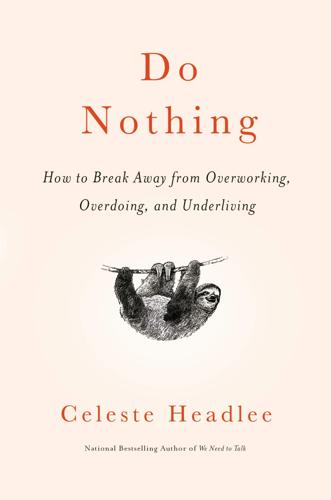
Do Nothing: How to Break Away From Overworking, Overdoing, and Underliving
by
Celeste Headlee
Published 10 Mar 2020
We have endured incredible hardship and unspeakable tragedy, but we developed a coping mechanism to prevent us from slipping into despair. It’s called the hedonic treadmill. It’s a tendency in our species to adjust our mood so that no matter what terrible things happen, we quickly return to the same level of happiness we enjoyed before the traumatic event. There’s a catch, though: It also works in reverse. In other words, if an incredibly happy change occurs in our lives, we don’t move forward as happier people. Instead, the hedonic treadmill brings us right back to the state of mind we were in before the raise in pay, new house, or lost weight.
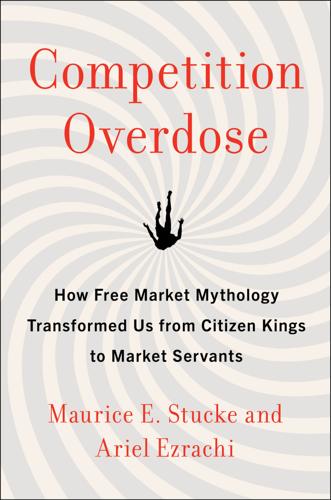
Competition Overdose: How Free Market Mythology Transformed Us From Citizen Kings to Market Servants
by
Maurice E. Stucke
and
Ariel Ezrachi
Published 14 May 2020
Though bumper stickers are considered lowbrow in these settings and are therefore rare among such families, another kind of signifier is quite common: banners in the rear windows of their vehicles that proclaim their offspring’s progression through elite educational institutions beginning with prep school through to college and graduate school. It’s true that status competition can fuel a race to the bottom, as when a neighbor’s purchase of a Porsche Boxster prompts other neighbors to buy even more expensive cars, despite being unable to afford them. This has been called the “hedonic treadmill.” But are those school banners really about status? If status were driving students to apply to top-ranked colleges, the rejection rates in the 1950s and 1960s would have been higher. This would not have been a relatively recent phenomenon. Another explanation is fear. The victims in any race to the bottom must decide if it is better to play the game or to bear the costs of opting out.
…
Thanks to Facebook, Instagram, and other ubiquitous forms of social media, we’re now engaged in a competition with smiling acquaintances around the globe who seem to make more money, work at dream jobs, own fancier cars, go on better vacations, live in nicer homes, and have kids who seem to attend more prestigious schools than our own. This competition keeps the hedonic treadmill humming, and the consumerist economy, too; but like the desire for power or fame, it results in a hunger that can never be satiated. Under this zero-sum competition, every time others acquire more, we seem to have less, so we feel the need to catch up. Even if we manage to ascend to ever higher rungs, there will always be someone better off and we’ll always be striving for the next rung.
…
See also zero-sum competition Greenspan, Alan, 128, 130, 261–63 Guardian, 209–10 Guttentag, Christoph, 16 Hall, James, 267 Hamilton College, 197 Hart, Oliver, 164 Harvard Business Review, 75, 276–77 Harvard University, 15, 17, 24, 26–27, 35–36, 112 health services, privatization of, 184–85 healthy competition. See noble competition hedonic treadmill, 28 Heller, Dean, 152 Heller, Joseph, 142 helmet rule, NHL, 4–5 Heng, Rachel, 245 higher education. See colleges and universities high-value customers, 87–91 Hininger, Damon T., 177 Hispanic students’ college acceptance levels, 24–25 Hitler, 190 homo economicus, 71, 73, 74, 76, 156 honesty in used car market, 63–64 horsemeat scandal, xii, 41–42, 45–47 hotel industry, 78–79 human nature abdicating responsibility for negative outcomes, 281–84 caring about others, 237–39, 244 conditional cooperation, 240–44 desire for choice, 94 ethical and moral leadership can shape our behavior, 284–87 See also cultural conditioning IAC (InterActiveCorp), 109–11, 111, 115–16 ICE (US Immigration and Customs Enforcement), 169, 175–76 IDC (International Data Corporation), 221 immigrants and privatization of prisons, 169, 175–76 income gap and college admissions, 25 individual and collective interests, divergence of, 12–20, 39–40, 242–43, 263 industrial farming, 53, 287, 288 inefficiencies in UK’s NHS, 186 Informant!
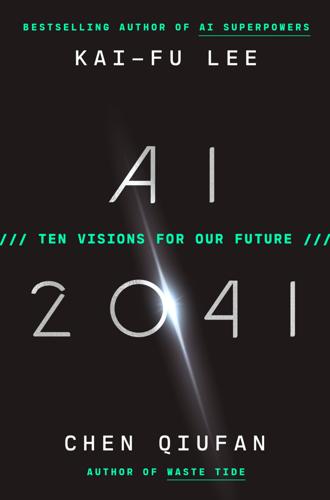
AI 2041: Ten Visions for Our Future
by
Kai-Fu Lee
and
Qiufan Chen
Published 13 Sep 2021
Material wealth is mostly related to the bottom two layers of the pyramid—where sustenance or financial security are ensured by material wealth. Some people even associate material wealth with higher-level needs like power, esteem, and sense of accomplishment. But interestingly, research suggests that chasing material wealth cannot produce sustained feelings of happiness. Psychologist Michael Eysenck introduced the term “hedonic treadmill” to describe our tendency to always readjust to a fixed level of happiness, despite monetary and possession gains (or losses). Studies have shown that people who come into sizable wealth (such as winning a lottery) are happy for a few months, but after that, their happiness usually drops down to their baseline level before coming into wealth.
…
This is what doomed Crown Prince Mahdi’s quixotic attempt to build his AI-enabled paradise in “Isle of Happiness”—his AI aimed to improve the guests’ “hedonic happiness.” When they first arrived on the island, the guests indulged in various pleasurable activities that produced short-term bursts of happy feelings, but over time, they were back on the hedonic treadmill, always treading, but never achieving lasting happiness. In contrast with hedonic happiness (material wealth, pleasure, enjoyment, comfort), people who advance above the bottom two levels of the Maslow hierarchy pursue eudaimonic happiness (growth, meaning, authenticity, excellence). Maslow’s hierarchy states that only after the levels of hedonic happiness are satisfied can people move up to eudaimonic happiness.
…
This is why Princess Akilah wanted to replace Mahdi’s hedonic AI with her eudaimonic AI—to help deliver to each person individualized happiness that is more experiential and purposeful, with love and authenticity. It was in this context that this eclectic group of high-achieving visitors were invited to take part in the experiment, by becoming inhabitants of the island. Take Viktor. Before coming to the island, the successful entrepreneur was stuck on his hedonic treadmill. While he had achieved material wealth, success, and esteem, something was missing from his life. He was far from self-actualized and had sought refuge in mind-altering substances and other hedonistic escapes. These circumstances made him an ideal candidate for Akilah to recruit him to the island, where she would try to elevate him to eudaimonic happiness.
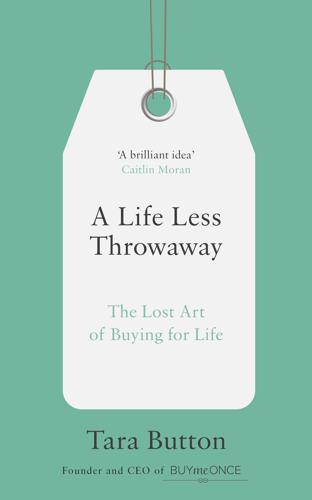
A Life Less Throwaway: The Lost Art of Buying for Life
by
Tara Button
Published 8 Feb 2018
It took fifty years (between 1900 and 1950) for the cooking stove to go from being a luxury (with 10 per cent of the population having one) to a necessity (with 80 per cent). In comparison, microwaves took just ten years to do the same.1 Unless we’re careful, we may have mass roll-outs of products that within a year feel as much a necessity as a refrigerator would feel to us today. The hedonic treadmill where we get used to whatever luxuries come our way is speeding up, it seems, but there is a way to turn the treadmill back the way it came. * * * exercise TURNING NECESSITIES INTO LUXURIES To counter this, try turning necessities into luxuries. This week, when you use your everyday items, take a minute with each one, close your eyes and imagine life without it.
…
•‘If I had an unforeseen tragedy and lost my income, could this purchase become a dangerous burden?’ MONEY AND LIFESTYLE The course of life never runs smooth, and while in the movies the trajectory tends to be towards wealth, this doesn’t always happen in reality. Fortunes can tumble, too, and part of the cruelty of the hedonic treadmill effect (the fact that we get used to our good fortune and then look to improve upon it) is that if our fortunes reverse and we have to go back to living more frugally, even if we were perfectly happy with that before, it seems like a disaster. Increasing our spending as soon as we get a pay rise and spending money we expect to have in the future can leave us exposed if our fortunes flounder.
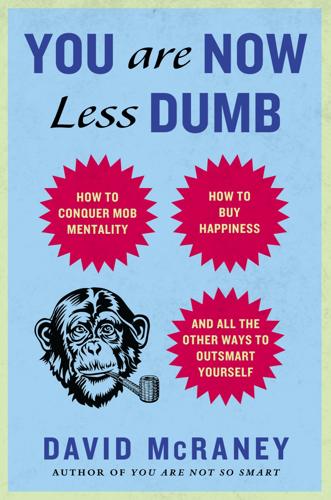
You Are Now Less Dumb: How to Conquer Mob Mentality, How to Buy Happiness, and All the Other Ways to Outsmart Yourself
by
David McRaney
Published 29 Jul 2013
Like a bobber on a fishing line, no matter how deep their moods sank or how high they arose, their moods eventually returned to a previous state just slightly above the midpoint. The time it took for the extreme emotions to fade varied, but two or three months was about all it took for most people. Brickman helped coin a term to describe this phenomenon: the hedonic treadmill. Okay, so that gets us to where we need to be. Affective forecasting and the hedonic treadmill are part of a larger phenomenon called, unimaginatively, your psychological immune system. When you feel damaged by rejection, loss, shame, humiliation, powerlessness, and all the other dark emotional states, or what psychology calls negative affects, your mind has a tremendous capacity for psychological healing.
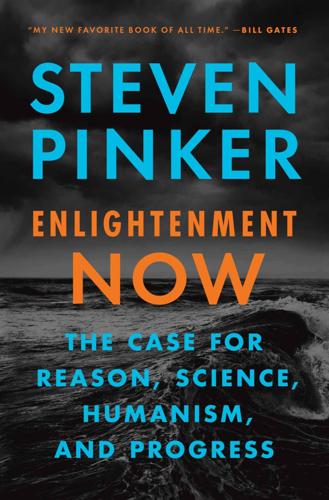
Enlightenment Now: The Case for Reason, Science, Humanism, and Progress
by
Steven Pinker
Published 13 Feb 2018
In 1973 the economist Richard Easterlin identified a paradox that has since been named for him.3 Though in comparisons within a country richer people are happier, in comparisons across countries the richer ones appeared to be no happier than poorer ones. And in comparisons over time, people did not appear to get happier as their countries got richer. The Easterlin paradox was explained with two theories from psychology. According to the theory of the hedonic treadmill, people adapt to changes in their fortunes, like eyes adapting to light or darkness, and quickly return to a genetically determined baseline.4 According to the theory of social comparison (or reference groups, status anxiety, or relative deprivation, which we examined in chapter 9), people’s happiness is determined by how well they think they are doing relative to their compatriots, so as the country as a whole gets richer, no one feels happier—indeed, if their country becomes more unequal, then even if they get richer they may feel worse.5 If, in this sense, things never get better, one can wonder whether all that economic, medical, and technological so-called progress was worth it.
…
Absolute income, not relative income, is what matters most for happiness (a conclusion that’s consistent with the finding discussed in chapter 9 on the irrelevance of inequality to happiness).21 These are among a number of findings that weaken the old belief that happiness adapts to ambient conditions like the eye, returns to a set point, or remains stationary as people vainly stride on a hedonic treadmill. Though people often do rebound from setbacks and pocket their good fortune, their happiness takes a sustained hit from trials like unemployment or disability, and a sustained boost from gifts like a good marriage or immigrating to a happier country.22 And contrary to an earlier belief, winning the lottery does, over the long term, make people happier.23 Since we know that countries get richer over time (chapter 8), we can think of figure 18-1 as a freeze-frame in a movie showing humanity getting happier over time.
…
A Brief Guided Tour,” New York Times, May 13, 2016. 33. Accuracy of Wikipedia: Giles 2005; Greenstein & Zhu 2014; Kräenbring et al. 2014. CHAPTER 18: HAPPINESS 1. Transcribed and lightly edited from https://www.youtube.com/watch?v=q8LaT5Iiwo4 and other Internet clips. 2. Mueller 1999, p. 14. 3. Easterlin 1973. 4. Hedonic treadmill: Brickman & Campbell 1971. 5. Social comparison theory: See chapter 9, note 11; Kelley & Evans 2016. 6. G. Monbiot, “Neoliberalism Is Creating Loneliness. That’s What’s Wrenching Society Apart,” The Guardian, Oct. 12, 2016. 7. Axial Age and origin of deepest questions: Goldstein 2013.
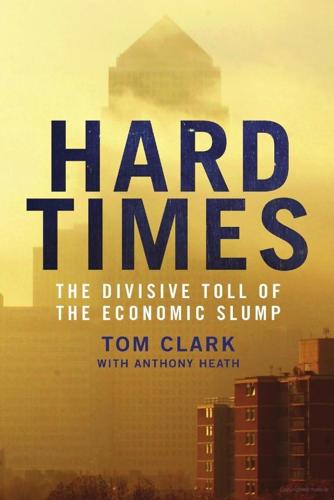
Hard Times: The Divisive Toll of the Economic Slump
by
Tom Clark
and
Anthony Heath
Published 23 Jun 2014
Looking across the population as a whole, the average satisfaction scores in this data lend support to a sanguine reading of the slump: the data tracks a little ripple of misery that arrived with the recession, but that very soon washes away.8 This fits with the so-called ‘setpoint theory’ of happiness, according to which expectations rise and fall automatically in line with the resources available. While the economy is booming, this tendency of the psyche to reset in line with rising affluence is known as the ‘hedonic treadmill’, since it demands that we acquire the extra stuff churned out by the economy simply to stand still in happiness terms.9 In general, that is a real bar to our enjoyment of the extra leisure that Keynes envisaged for future generations.10 In hard times, however, it could just be that the silver lining of this dark cloud shimmers through.
…
(i), (ii) Gallup polls (i), (ii), (iii), (iv) Galton, Francis (i) GDP (gross domestic product) (i), (ii), (iii), (iv) Geithner, Tim (i) gender divide (i) General Social Survey (GSS) (i), (ii), (iii) generational divide (i), (ii), (iii), (iv), (v) Gen X (i), (ii), (iii) Gen Y (i) Germany employment protection (i), (ii) human unhappiness (i), (ii), (iii), (iv) inequality (i) social networks (i), (ii), (iii) social security (i), (ii) unemployment (i) girls, employment of (i) graduates (i), (ii), (iii) The Grapes of Wrath (Steinbeck) (i) Great Depression change in GDP (i), (ii) crime rates (i) death rates (i) Europe (i) and Great Recession (i), (ii), (iii), (iv), (v) growth and national income (i) human unhappiness (i), (ii), (iii) hysteresis (i) lynchings (i) polarised public opinion (i), (ii) public policy (i) social mood (i) social networks (i), (ii), (iii) social security (i), (ii), (iii) Steinbeck on (i) unemployment (i), (ii), (iii), (iv) ‘Great Gatsby Curve’ (i) Great Hanshin earthquake (i) Great Recession change in GDP (i), (ii) economic gap (i) and Great Depression (i), (ii), (iii), (iv), (v) growth and national income (i), (ii) human unhappiness (i), (ii), (iii), (iv), (v), (vi) long shadow of class action (i) future generations (i) overview (i) unemployment (i) young people (i) low-grade jobs (i), (ii) polarised public opinion (i), (ii), (iii) post-recession agenda (i) Cameron conundrum (i) future policy (i) polarisation (i) public policy (i), (ii) social mood (i) social networks (i), (ii), (iii), (iv), (v), (vi) social security (i) start of (i) unemployment (i), (ii), (iii), (iv), (v) uneven impact (i) Greece (i), (ii), (iii) Greenberg Quinlan Rosner (i), (ii) Greenspan, Alan (i) Gregg, Paul (i) growth see economic growth Hacker, Jacob (i) Hansard (i) Hansard Society (i) happiness (i), (ii), (iii), (iv), (v), (vi), (vii), (viii) Happiness (Layard) (i) ‘Happy Days Are Here Again’ song (i) hardship (i), (ii), (iii), (iv), (v), (vi), (vii) Hatton, Timothy (i), (ii) health (i), (ii), (iii), (iv), (v), (vi), (vii) healthcare (i), (ii), (iii), (iv) ‘hedonic treadmill’ (i) helping (informal volunteering) (i), (ii), (iii) Help to Buy (i) heritability of unemployment (i) Heritage Foundation (i), (ii) Hills, Sir John (i) Hispanic community (i), (ii) home ownership (i), (ii) Hoover, Herbert (i), (ii), (iii) household incomes (i), (ii), (iii), (iv), (v) household leverage (i) housing costs (i), (ii), (iii), (iv) home ownership (i), (ii) housing benefit (i) poverty (i) social housing (i) wealth reduction (i) human unhappiness (i) family life (i) overview (i) public policy (i) suicide (i) unemployment (i) well-being data (i) working population (i) hysteresis (i), (ii) identity (i), (ii) immigration (i), (ii), (iii), (iv) incapacity benefit (i), (ii), (iii), (iv), (v) income (i), (ii), (iii), (iv), (v) income distribution (i), (ii), (iii), (iv), (v), (vi), (vii), (viii) income support (i), (ii) inequality (i) causes (i) economic gap (i) income distribution (i), (ii) job insecurity (i) life satisfaction (i) polarised public opinion (i), (ii), (iii), (iv), (v) post-recession agenda (i), (ii), (iii), (iv), (v) poverty (i) public policy (i), (ii) social mobility (i), (ii), (iii) social security (i) unemployment (i) inflation (i), (ii), (iii) informal volunteering (helping) (i), (ii), (iii) insecurity austerity (i) class divide (i) human unhappiness (i), (ii), (iii) job insecurity (i) pay gap (i) polarised public opinion (i) post-recession agenda (i), (ii), (iii) social networks (i), (ii) unemployment (i) Institute for Employment Research (i) Institute for Fiscal Studies (IFS) (i), (ii), (iii), (iv), (v), (vi) intergenerational income (i) investment (i) Ipsos MORI (i), (ii) Ireland (i) isolation (i), (ii) Italy (i), (ii) Japan (i), (ii), (iii), (iv), (v), (vi) Jarrow March (i) job insecurity see insecurity Jobseeker's Allowance (i), (ii), (iii), (iv) jobs growth (i), (ii), (iii), (iv) Kahn, Lisa (i) Kan, Naoto (i) Kantar (i) Keynes, John Maynard (i), (ii), (iii), (iv), (v) King, Mervyn (i) Kobe (i) Komarovsky, Mirra (i), (ii), (iii), (iv), (v), (vi), (vii), (viii), (ix), (x) Krueger, Alan (i), (ii) Krugman, Paul (i) Labour Force Survey (i) labour market (i), (ii) labour productivity (i), (ii), (iii) ladder of opportunity (i) Layard, Richard (i) Lehman Brothers (i), (ii) Leunig, Tim (i) Lewis, Michael (i), (ii) life expectancy (i), (ii), (iii), (iv), (v) life satisfaction (i), (ii), (iii), (iv), (v) Lilley, Peter (i) living standards (i), (ii), (iii), (iv), (v), (vi) Li, Yaojun (i) loans (i), (ii), (iii), (iv), (v) London (i), (ii), (iii), (iv), (v), (vi), (vii) lone parents (i), (ii), (iii), (iv) long-term unemployment (i), (ii), (iii), (iv) low-grade jobs (i), (ii), (iii), (iv), (v), (vi), (vii) Machin, Stephen (i) Macmillan, Harold (i) macroeconomic policy (i) male employment (i), (ii), (iii), (iv), (v) male suicide (i) manufacturing (i), (ii), (iii) ‘marginalised’ workers (i) Marie Antoinette (i) Marienthal hardship (i), (ii), (iii) human unhappiness (i), (ii), (iii), (iv), (v) neighbours informing on each other (i) social networks and groups (i) unemployment (i), (ii), (iii), (iv) marriage rates (i), (ii), (iii) medical bills (i) medical staff (i) mental health (i), (ii), (iii), (iv) Mexico (i) middle class (i), (ii) migration (i) minimum wage (i), (ii), (iii), (iv), (v), (vi) mobility (i), (ii), (iii), (iv) monetary policy (i), (ii) money-saving activities (i) money supply (i) money worries (i), (ii), (iii) mortality rates (i), (ii) motivation (i) National Child Development Survey (NCDS) (i), (ii) National Conference on Citizenship (i) National Government (i) National Housing Federation (i) national income (i), (ii), (iii) National Longitudinal Survey of Youth (i) necessities (i), (ii) NEETs (not in education, employment or training) (i) neighbourliness (i), (ii), (iii) neoliberalism (i) net worth (i) New Deal (i), (ii) New Labour (i), (ii) New Right (i), (ii) New York Times (i) New Zealand (i) Nixon, Richard (i) Northern Rock (i) North–South divide (i), (ii), (iii), (iv) Obama, Barack (i), (ii), (iii), (iv), (v), (vi), (vii), (viii) Occupy (i) OECD see Organisation for Economic Co-operation and Development old age (i), (ii), (iii) O'Loughlan, Joel (i), (ii) optimism (i), (ii), (iii) Organisation for Economic Co-operation and Development (OECD) (i), (ii), (iii), (iv), (v), (vi), (vii) Orwell, George (i), (ii), (iii), (iv) Osborne, George (i), (ii), (iii), (iv), (v), (vi), (vii), (viii) Packer, George (i) Pakistani community (i) parental income (i), (ii), (iii) parenting (i), (ii), (iii), (iv) parent–teacher associations (PTAs) (i), (ii), (iii) participation careers (i), (ii), (iii), (iv) part-time work (i), (ii) path dependency (i) pay squeeze (i), (ii), (iii), (iv), (v), (vi), (vii), (viii), (ix) Peck, Don (i) pensions (i), (ii), (iii), (iv), (v) People's Budget (1909) (i) Personal Responsibility and Work Opportunity Reconciliation Act (i) Pew Center (i), (ii), (iii) Philip, Prince (i) Philpott, Mick (i) The Pinch (Willetts) (i) polarised public opinion (i) desired level of inequality (i) divided communities (i) economic divide (i) genetic discrimination in healthcare (i) post-recession agenda (i) social security (i), (ii) solidarity (i), (ii), (iii), (iv) unemployment (i) policy see public policy postal deliveries (i) poverty absolute poverty (i), (ii), (iii), (iv), (v), (vi) debt (i) health (i) housing costs (i), (ii) income distribution (i) losing face (i), (ii) low-grade jobs (i), (ii) post-recession agenda (i), (ii), (iii), (iv) public policy (i), (ii) relative poverty (i), (ii) social security (i), (ii) UK (i), (ii), (iii) unemployment (i), (ii) uneven impact of recessions (i) US (i), (ii), (iii), (iv) working population (i), (ii) poverty pay (i), (ii), (iii), (iv) pregnancy (i), (ii) Prescott, John (i) Priestley, J.B.
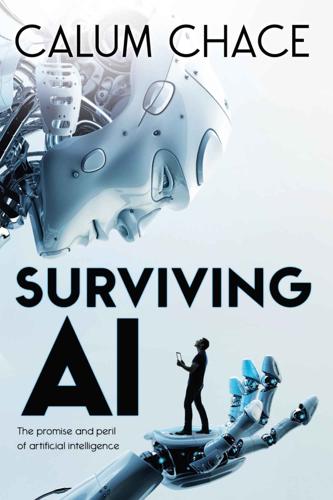
Surviving AI: The Promise and Peril of Artificial Intelligence
by
Calum Chace
Published 28 Jul 2015
Those technologies which do cross the chasm are then adopted by the “early majority”, then the “late majority”, and finally by the “laggards”. But by the time the early majority is getting on board the hype is already ancient history, and people are already taking for granted the improvement to their lives. The hype cycle has run its course. The hedonic treadmill is a name for the fact that most people have a fairly constant level of happiness (hedonic level), and that when something significant in our life changes – for good or bad – we quickly adjust and return to our previous level. When we look ahead to an anticipated event we often believe that it will change our lives permanently, and that we will feel happier – or less happy – forever afterwards.
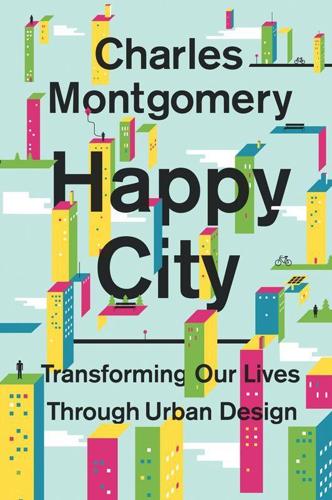
Happy City: Transforming Our Lives Through Urban Design
by
Charles Montgomery
Published 12 Nov 2013
Analysis from free-market think tanks such as the Cato Institute assures us that “high levels of economic freedom and high average incomes are among the strongest correlates of subjective well-being,” which is to say that being rich and free should make us happier. So why wasn’t the half-century surge in wealth accompanied by a surge in happiness? What was counteracting the effect of all that money? Some psychologists point to the phenomenon dubbed the “hedonic treadmill”: the natural human tendency to shift our expectations along with our changing fortunes. The treadmill theory suggests that the richer you get, the more you compare yourself to other rich people and the faster the wheel of desire spins beneath your feet, so that you end up feeling as though you haven’t made any progress.
…
Return commute times have shot past sixty-eight minutes in the New York megalopolis, seventy-four minutes in London, and a whopping eighty minutes in Toronto. Dozens of studies have now confirmed beyond doubt what Atlantans know from experience: the obvious solution to congestion—building more roads—simply produces more traffic, creating a hedonic treadmill of construction and frustration. Happy Feet One group of commuters reports enjoying themselves more than everyone else. Their route to happy mobility is simple. These are people who travel on their own steam like Robert Judge. They walk. They run. They ride bicycles. Despite the obvious effort involved, self-propelled commuters report feeling that their trips are easier than the trips of people who sit still for most of the journey.
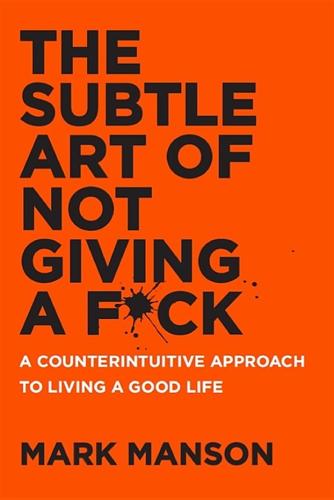
The Subtle Art of Not Giving a F*ck: A Counterintuitive Approach to Living a Good Life
by
Mark Manson
Published 12 Sep 2016
A fixation on happiness inevitably amounts to a never-ending pursuit of “something else”—a new house, a new relationship, another child, another pay raise. And despite all of our sweat and strain, we end up feeling eerily similar to how we started: inadequate. Psychologists sometimes refer to this concept as the “hedonic treadmill”: the idea that we’re always working hard to change our life situation, but we actually never feel very different. This is why our problems are recursive and unavoidable. The person you marry is the person you fight with. The house you buy is the house you repair. The dream job you take is the job you stress over.
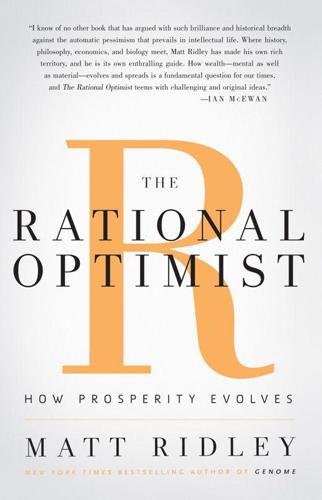
The Rational Optimist: How Prosperity Evolves
by
Matt Ridley
Published 17 May 2010
Of course, it is possible to be rich and unhappy, as many a celebrity gloriously reminds us. Of course, it is possible to get rich and find that you are unhappy not to be richer still, if only because the neighbour – or the people on television – are richer than you are. Economists call this the ‘hedonic treadmill’; the rest of us call it ‘keeping up with the Joneses’. And it is probably true that the rich do lots of unnecessary damage to the planet as they go on striving to get richer long after the point where it is having much effect on their happiness – they are after all endowed with instincts for ‘rivalrous competition’ descended from hunter-gatherers whose relative, not absolute, status determined their sexual rewards.
…
Abbasids 161, 178 Abelard, Peter 358 aborigines (Australian): division of labour 62, 63, 76; farming 127; technological regress 78–84; trade 90–91, 92 abortion, compulsory 203 Abu Hureyra 127 Acapulco 184 accounting systems 160, 168, 196 Accra 189 Acemoglu, Daron 321 Ache people 61 Acheulean tools 48–9, 50, 275, 373 Achuar people 87 acid rain 280, 281, 304–6, 329, 339 acidification of oceans 280, 340–41 Adams, Henry 289 Aden 177 Adenauer, Konrad 289 Aegean sea 168, 170–71 Afghanistan 14, 208–9, 315, 353 Africa: agriculture 145, 148, 154–5, 326; AIDS epidemic 14, 307–8, 316, 319, 320, 322; colonialism 319–20, 321–2; demographic transition 210, 316, 328; economic growth 315, 326–8, 332, 347; international aid 317–19, 322, 328; lawlessness 293, 320; life expectancy 14, 316, 422; per capita income 14, 315, 317, 320; poverty 314–17, 319–20, 322, 325–6, 327–8; prehistoric 52–5, 65–6, 83, 123, 350; property rights 320, 321, 323–5; trade 187–8, 320, 322–3, 325, 326, 327–8; see also individual countries African-Americans 108 agricultural employment: decline in 42–3; hardships of 13, 219–20, 285–6 agriculture: early development of 122–30, 135–9, 352, 387, 388; fertilisers, development of 135, 139–41, 142, 146, 147, 337; genetically modified (GM) crops 28, 32, 148, 151–6, 283, 358; hybrids, development of 141–2, 146, 153; and trade 123, 126, 127–33, 159, 163–4; and urbanisation 128, 158–9, 163–4, 215; see also farming; food supply Agta people 61–2 aid, international 28, 141, 154, 203, 317–19, 328 AIDS 8, 14, 307–8, 310, 316, 319, 320, 322, 331, 353 AIG (insurance corporation) 115 air conditioning 17 air pollution 304–5 air travel: costs of 24, 37, 252, 253; speed of 253 aircraft 257, 261, 264, 266 Akkadian empire 161, 164–5 Al-Ghazali 357 Al-Khwarizmi, Muhammad ibn Musa 115 Al-Qaeda 296 Albania 187 Alcoa (corporation) 24 Alexander the Great 169, 171 Alexander, Gary 295 Alexandria 171, 175, 270 Algeria 53, 246, 345 alphabet, invention of 166, 396 Alps 122, 178 altruism 93–4, 97 aluminium 24, 213, 237, 303 Alyawarre aborigines 63 Amalfi 178 Amazon (corporation) 21, 259, 261 Amazonia 76, 138, 145, 250–51 amber 71, 92 ambition 45–6, 351 Ames, Bruce 298–9 Amish people 211 ammonia 140, 146 Amsterdam 115–16, 169, 259, 368 Amsterdam Exchange Bank 251 Anabaptists 211 Anatolia 127, 128, 164, 165, 166, 167 Ancoats, Manchester 214 Andaman islands 66–7, 78 Andes 123, 140, 163 Andrew, Deroi Kwesi 189 Angkor Wat 330 Angola 316 animal welfare 104, 145–6 animals: conservation 324, 339; extinctions 17, 43, 64, 68, 69–70, 243, 293, 302, 338–9; humans’ differences from other 1, 2–4, 6, 56, 58, 64 Annan, Kofi 337 Antarctica 334 anti-corporatism 110–111, 114 anti-slavery 104, 105–6, 214 antibiotics 6, 258, 271, 307 antimony 213 ants 75–6, 87–8, 192 apartheid 108 apes 56–7, 59–60, 62, 65, 88; see also chimpanzees; orang-utans ‘apocaholics’ 295, 301 Appalachia 239 Apple (corporation) 260, 261, 268 Aquinas, St Thomas 102 Arabia 66, 159, 176, 179 Arabian Sea 174 Arabs 89, 175, 176–7, 180, 209, 357 Aral Sea 240 Arcadia Biosciences (company) 31–2 Archimedes 256 Arctic Ocean 125, 130, 185, 334, 338–9 Argentina 15, 186, 187 Arikamedu 174 Aristotle 115, 250 Arizona 152, 246, 345 Arkwright, Sir Richard 227 Armenians 89 Arnolfini, Giovanni 179 art: cave paintings 2, 68, 73, 76–7; and commerce 115–16; symbolism in 136; as unique human trait 4 Ashur, Assyria 165 Asimov, Isaac 354 Asoka the Great 172–3 aspirin 258 asset price inflation 24, 30 Assyrian empire 161, 165–6, 167 asteroid impacts, risk of 280, 333 astronomy 221, 270, 357 Athabasca tar sands, Canada 238 Athens 115, 170, 171 Atlantic Monthly 293 Atlantic Ocean 125, 170 Attica 171 Augustus, Roman emperor 174 Augustus the Strong, Elector of Saxony 184–5 Australia: climate 127, 241, 300, 334; prehistoric 66, 67, 69–70, 127; trade 187; see also aborigines (Australian); Tasmania Austria 132 Ausubel, Jesse 239, 346, 409 automobiles see cars axes: copper 123, 131, 132, 136, 271; stone 2, 5, 48–9, 50, 51, 71, 81, 90–91, 92, 118–19, 271 Babylon 21, 161, 166, 240, 254, 289 Bacon, Francis 255 bacteria: cross fertilisation 271; and pest control 151; resistance to antibiotics 6, 258, 271, 307; symbiosis 75 Baghdad 115, 177, 178, 357 Baines, Edward 227 Baird, John Logie 38 baking 124, 130 ‘balance of nature’, belief in 250–51 Balazs, Etienne 183 bald eagles 17, 299 Bali 66 Baltic Sea 71, 128–9, 180, 185 Bamako 326 bananas 92, 126, 149, 154, 392 Bangladesh 204, 210, 426 Banks, Sir Joseph 221 Barigaza (Bharuch) 174 barley 32, 124, 151 barrels 176 bartering vii, 56–60, 65, 84, 91–2, 163, 356 Basalla, George 272 Basra 177 battery farming 104, 145–6 BBC 295 beads 53, 70, 71, 73, 81, 93, 162 beef 186, 224, 308; see also cattle bees, killer 280 Beijing 17 Beinhocker, Eric 112 Bell, Alexander Graham 38 Bengal famine (1943) 141 benzene 257 Berlin 299 Berlin, Sir Isaiah 288 Bernard of Clairvaux, St 358 Berners-Lee, Sir Tim 38, 273 Berra, Yogi 354 Besant, Annie 208 Bhutan 25–6 Bible 138, 168, 396 bicycles 248–9, 263, 269–70 bin Laden, Osama 110 biofuels 149, 236, 238, 239, 240–43, 246, 300, 339, 343, 344, 346, 393 Bird, Isabella 197–8 birds: effects of pollution on 17, 299; killed by wind turbines 239, 409; nests 51; sexual differences 64; songbirds 55; see also individual species bireme galleys 167 Birmingham 223 birth control see contraception birth rates: declining 204–212; and food supply 192, 208–9; and industrialisation 202; measurement of 205, 403; population control policies 202–4, 208; pre-industrial societies 135, 137; and television 234; and wealth 200–201, 204, 205–6, 209, 211, 212; see also population growth Black Death 181, 195–6, 197, 380 Black Sea 71, 128, 129, 170, 176, 180 blogging 257 Blombos Cave, South Africa 53, 83 blood circulation, discovery of 258 Blunt, John 29 boat-building 167, 168, 177; see also canoes; ship-building Boers 321, 322 Bohemia 222 Bolivia 315, 324 Bolsheviks 324 Borlaug, Norman 142–3, 146 Borneo 339 Bosch, Carl 140, 412 Botswana 15, 316, 320–22, 326 Bottger, Johann Friedrich 184–5 Boudreaux, Don 21, 214 Boulton, Matthew 221, 256, 413–14 bows and arrows 43, 62, 70, 82, 137, 251, 274 Boxgrove hominids 48, 50 Boyer, Stanley 222, 405 Boyle, Robert 256 Bradlaugh, Charles 208 brain size 3–4, 48–9, 51, 55 Bramah, Joseph 221 Branc, Slovakia 136 Brand, Stewart 154, 189, 205 Brando, Marlon 110 brass 223 Brazil 38, 87, 123, 190, 240, 242, 315, 358 bread 38, 124, 140, 158, 224, 286, 392 bridges, suspension 283 Brin, Sergey 221, 405 Britain: affluence 12, 16, 224–5, 236, 296–7; birth rates 195, 200–201, 206, 208, 227; British exceptionalism 200–202, 221–2; climate change policy 330–31; consumer prices 24, 224–5, 227, 228; copyright system 267; enclosure acts 226, 323, 406; energy use 22, 231–2, 232–3, 342–3, 368, 430; ‘glorious revolution’ (1688) 223; income equality 18–19, 218; industrial revolution 201–2, 216–17, 220–32, 255–6, 258–9; life expectancy 15, 17–18; National Food Service 268; National Health Service 111, 261; parliamentary reform 107; per capita income 16, 218, 227, 285, 404–5; productivity 112; property rights 223, 226, 323–4; state benefits 16; tariffs 185–6, 186–7, 223; see also England; Scotland; Wales British Empire 161, 322 bronze 164, 168, 177 Brosnan, Sarah 59 Brown, Lester 147–8, 281–2, 300–301 Brown, Louise 306 Bruges 179 Brunel, Sir Marc 221 Buddhism 2, 172, 357 Buddle, John 412 Buffett, Warren 106, 268 Bulgaria 320 Burkina Faso 154 Burma 66, 67, 209, 335 Bush, George W. 161 Butler, Eamonn 105, 249 Byblos 167 Byzantium 176, 177, 179 cabbages 298 ‘Caesarism’ 289 Cairo 323 Calcutta 190, 315 Calico Act (1722) 226 Califano, Joseph 202–3 California: agriculture 150; Chumash people 62, 92–3; development of credit card 251, 254; Mojave Desert 69; Silicon Valley 221–2, 224, 257, 258, 259, 268 Cambodia 14, 315 camels 135, 176–7 camera pills 270–71 Cameroon 57 Campania 174, 175 Canaanites 166, 396 Canada 141, 169, 202, 238, 304, 305 Canal du Midi 251 cancer 14, 18, 293, 297–9, 302, 308, 329 Cannae, battle of 170 canning 186, 258 canoes 66, 67, 79, 82 capitalism 23–4, 101–4, 110, 115, 133, 214, 258–62, 291–2, 311; see also corporations; markets ‘Captain Swing’ 283 capuchin monkeys 96–7, 375 Caral, Peru 162–3 carbon dioxide emissions 340–47; absorption of 217; and agriculture 130, 337–8; and biofuels 242; costs of 331; and economic growth 315, 332; and fossil fuels 237, 315; and local sourcing of goods 41–2; taxes 346, 356 Cardwell’s Law 411 Caribbean see West Indies Carnegie, Andrew 23 Carney, Thomas 173 carnivorism 51, 60, 62, 68–9, 147, 156, 241, 376 carrots 153, 156 cars: biofuel for 240, 241; costs of 24, 252; efficiency of 252; future production 282, 355; hybrid 245; invention of 189, 270, 271; pollution from 17, 242; sport-utility vehicles 45 The Rational Optimist 424 Carson, Rachel 152, 297–8 Carter, Jimmy 238 Carthage 169, 170, 173 Cartwright, Edmund 221, 263 Castro, Fidel 187 Catalhoyuk 127 catallaxy 56, 355–9 Catholicism 105, 208, 306 cattle 122, 132, 145, 147, 148, 150, 197, 321, 336; see also beef Caucasus 237 cave paintings 2, 68, 73, 76–7 Cavendish, Henry 221 cement 283 central heating 16, 37 cereals 124–5, 125–6, 130–31, 143–4, 146–7, 158, 163; global harvests 121 Champlain, Samuel 138–9 charcoal 131, 216, 229, 230, 346 charitable giving 92, 105, 106, 295, 318–19, 356 Charles V: king of Spain 30–31; Holy Roman Emperor 184 Charles, Prince of Wales 291, 332 Chauvet Cave, France 2, 68, 73, 76–7 Chernobyl 283, 308, 345, 421 Chicago World Fair (1893) 346 chickens 122–3, 145–6, 147, 148, 408 chickpeas 125 Childe, Gordon 162 children: child labour 104, 188, 218, 220, 292; child molestation 104; childcare 2, 62–3; childhood diseases 310; mortality rates 14, 15, 16, 208–9, 284 Chile 187 chimpanzees 2, 3, 4, 6, 29, 59–60, 87, 88, 97 China: agriculture 123, 126, 148, 152, 220; birth rate 15, 200–201; coal supplies 229–30; Cultural Revolution 14, 201; diet 241; economic growth and industrialisation 17, 109, 180–81, 187, 201, 219, 220, 281–2, 300, 322, 324–5, 328, 358; economic and technological regression 180, 181–2, 193, 229–30, 255, 321, 357–8; energy use 245; income equality 19; innovations 181, 251; life expectancy 15; Longshan culture 397; Maoism 16, 187, 296, 311; Ming empire 117, 181–4, 260, 311; per capita income 15, 180; prehistoric 68, 123, 126; serfdom 181–2; Shang dynasty 166; Song dynasty 180–81; trade 172, 174–5, 177, 179, 183–4, 187, 225, 228 chlorine 296 cholera 40, 310 Chomsky, Noam 291 Christianity 172, 357, 358, 396; see also Catholicism; Church of England; monasteries Christmas 134 Chumash people 62, 92–3 Church of England 194 Churchill, Sir Winston 288 Cicero 173 Cilicia 173 Cisco Systems (corporation) 268 Cistercians 215 civil rights movement 108, 109 Clairvaux Abbey 215 Clark, Colin 146, 227 Clark, Gregory 193, 201, 401, 404 Clarke, Arthur C. 354 climate change 328–47, 426–30; costs of mitigation measures 330–32, 333, 338, 342–4; death rates associated with 335–7; and ecological dynamism 250, 329–30, 335, 339; and economic growth 315, 331–3, 341–3, 347; effects on ecosystems 338–41; and food supply 337–8; and fossil fuels 243, 314, 342, 346, 426; historic 194, 195, 329, 334, 426–7; pessimism about 280, 281, 314–15, 328–9; prehistoric 54, 65, 125, 127, 130, 160, 329, 334, 339, 340, 352; scepticism about 111, 329–30, 426; solutions to 8, 315, 345–7 Clinton, Bill 341 Clippinger, John 99 cloth trade 75, 159, 160, 165, 172, 177, 180, 194, 196, 225, 225–9, 232 clothes: Britain 224, 225, 227; early homo sapiens 71, 73; Inuits 64; metal age 122; Tasmanian natives 78 clothing prices 20, 34, 37, 40, 227, 228 ‘Club of Rome’ 302–3 coal: and economic take-off 201, 202, 213, 214, 216–17; and generation of electricity 233, 237, 239, 240, 304, 344; and industrialisation 229–33, 236, 407; prices 230, 232, 237; supplies 302–3 coal mining 132, 230–31, 237, 239, 257, 343 Coalbrookdale 407 Cobb, Kelly 35 Coca-Cola (corporation) 111, 263 coffee 298–9, 392 Cohen, Mark 135 Cold War 299 collective intelligence 5, 38–9, 46, 56, 83, 350–52, 355–6 Collier, Paul 315, 316–17 colonialism 160, 161, 187, 321–2; see also imperialism Colorado 324 Columbus, Christopher 91, 184 combine harvesters 158, 392 combined-cycle turbines 244, 410 commerce see trade Commoner, Barry 402 communism 106, 336 Compaq (corporation) 259 computer games 273, 292 computers 2, 3, 5, 211, 252, 260, 261, 263–4, 268, 282; computing power costs 24; information storage capacities 276; silicon chips 245, 263, 267–8; software 99, 257, 272–3, 304, 356; Y2K bug 280, 290, 341; see also internet Confucius 2, 181 Congo 14–15, 28, 307, 316 Congreve, Sir William 221 Connelly, Matthew 204 conservation, nature 324, 339; see also wilderness land, expansion of conservatism 109 Constantinople 175, 177 consumer spending, average 39–40 containerisation 113, 253, 386 continental drift 274 contraception 208, 210; coerced 203–4 Cook, Captain James 91 cooking 4, 29, 38, 50, 51, 52, 55, 60–61, 64, 163, 337 copper 122, 123, 131–2, 160, 162, 164, 165, 168, 213, 223, 302, 303 copyright 264, 266–7, 326 coral reefs 250, 339–40, 429–30 Cordoba 177 corn laws 185–6 Cornwall 132 corporations 110–116, 355; research and development budgets 260, 262, 269 Cosmides, Leda 57 Costa Rica 338 cotton 37, 108, 149, 151–2, 162, 163, 171, 172, 202, 225–9, 230, 407; calico 225–6, 232; spinning and weaving 184, 214, 217, 219–20, 227–8, 232, 256, 258, 263, 283 Coughlin, Father Charles 109 Craigslist (website) 273, 356 Crapper, Thomas 38 Crathis river 171 creationists 358 creative destruction 114, 356 credit cards 251, 254 credit crunch (2008) 8–10, 28–9, 31, 100, 102, 316, 355, 399, 411 Cree Indians 62 Crete 167, 169 Crichton, Michael 254 Crick, Francis 412 crime: cyber-crime 99–100, 357; falling rates 106, 201; false convictions 19–20; homicide 14, 20, 85, 88, 106, 118, 201; illegal drugs 106, 186; pessimism about 288, 293 Crimea 171 crocodiles, deaths by 40 Crompton, Samuel 227 Crookes, Sir William 140, 141 cruelty 104, 106, 138–9, 146 crusades 358 Cuba 187, 299 ‘curse of resources’ 31, 320 cyber-crime 99–100, 357 Cyprus 132, 148, 167, 168 Cyrus the Great 169 Dalkon Shield (contraceptive device) 203 Dalton, John 221 Damascus 127 Damerham, Wiltshire 194 Danube, River 128, 132 Darby, Abraham 407 Darfur 302, 353 Dark Ages 164, 175–6, 215 Darwin, Charles 77, 81, 91–2, 105, 116, 350, 415 Darwin, Erasmus 256 Darwinism 5 Davy, Sir Humphry 221, 412 Dawkins, Richard 5, 51 DDT (pesticide) 297–8, 299 de Geer, Louis 184 de Soto, Hernando 323, 324, 325 de Waal, Frans 88 Dean, James 110 decimal system 173, 178 deer 32–3, 122 deflation 24 Defoe, Daniel 224 deforestation, predictions of 304–5, 339 Delhi 189 Dell (corporation) 268 Dell, Michael 264 demographic transition 206–212, 316, 328, 402 Denmark 200, 344, 366; National Academy of Sciences 280 Dennett, Dan 350 dentistry 45 depression (psychological) 8, 156 depressions (economic) 3, 31, 32, 186–7, 192, 289; see also economic crashes deserts, expanding 28, 280 Detroit 315, 355 Dhaka 189 diabetes 156, 274, 306 Diamond, Jared 293–4, 380 diamonds 320, 322 Dickens, Charles 220 Diesel, Rudolf 146 Digital Equipment Corporation 260, 282 digital photography 114, 386 Dimawe, battle of (1852) 321 Diocletian, Roman emperor 175, 184 Diodorus 169 diprotodons 69 discount merchandising 112–14 division of labour: Adam Smith on vii, 80; and catallaxy 56; and fragmented government 172; in insects 75–6, 87–8; and population growth 211; by sex 61–5, 136, 376; and specialisation 7, 33, 38, 46, 61, 76–7, 175; among strangers and enemies 87–9; and trust 100; and urbanisation 164 DNA: forensic use 20; gene transfer 153 dogs 43, 56, 61, 84, 125 Doll, Richard 298 Dolphin, HMS 169 dolphins 3, 87 Domesday Book 215 Doriot, Georges 261 ‘dot-communism’ 356 Dover Castle 197 droughts: modern 241, 300, 334; prehistoric 54, 65, 334 drug crime 106, 186 DuPont (corporation) 31 dyes 167, 225, 257, 263 dynamos 217, 233–4, 271–2, 289 dysentery 157, 353 eagles 17, 239, 299, 409 East India Company 225, 226 Easter Island 380 Easterbrook, Greg 294, 300, 370 Easterlin, Richard 26 Easterly, William 318, 411 eBay (corporation) 21, 99, 100, 114, 115 Ebla, Syria 164 Ebola virus 307 economic booms 9, 29, 216 economic crashes 7–8, 9, 193; credit crunch (2008) 8–10, 28–9, 31, 100, 102, 316, 355, 399, 411; see also depressions (economic) ecosystems, dynamism of 250–51, 303, 410 Ecuador 87 Edinburgh Review 285 Edison, Thomas 234, 246, 272, 412 education: Africa 320; Japan 16; measuring value of 117; and population control 209, 210; universal access 106, 235; women and 209, 210 Edwards, Robert 306 Eemian interglacial period 52–3 Egypt: ancient 161, 166, 167, 170, 171, 192, 193, 197, 270, 334; Mamluk 182; modern 142, 154, 192, 301, 323; prehistoric 44, 45, 125, 126; Roman 174, 175, 178 Ehrenreich, Barbara 291 Ehrlich, Anne 203, 301–2 Ehrlich, Paul 143, 190, 203, 207, 301–2, 303 electric motors 271–2, 283 electricity 233–5, 236, 237, 245–6, 337, 343–4; costs 23; dynamos 217, 233–4, 271–2, 289 elephants 51, 54, 69, 303, 321 Eliot, T.S. 289 email 292 emigration 199–200, 202; see also migrations empathy 94–8 empires, trading 160–61; see also imperialism enclosure acts 226, 323, 406 endocrine disruptors 293 Engels, Friedrich 107–8, 136 England: agriculture 194–6, 215; infant mortality 284; law 118; life expectancy 13, 284; medieval population 194–7; per capita income 196; scientific revolution 255–7; trade 75, 89, 104, 106, 118, 169, 194; see also Britain Enron (corporation) 29, 111, 385 Erie, Lake 17 Erie Canal 139, 283 ethanol 240–42, 300 Ethiopia 14, 316, 319; prehistoric 52, 53, 129 eugenics 288, 329 Euphrates river 127, 158, 161, 167, 177 evolution, biological 5, 6, 7, 49–50, 55–6, 75, 271, 350 Ewald, Paul 309 exchange: etiquette and ritual of 133–4; and innovation 71–2, 76, 119, 167–8, 251, 269–74; and pre-industrial economies 133–4; and property rights 324–5; and rule of law 116, 117–18; and sexual division of labour 65; and specialisation 7, 10, 33, 35, 37–8, 46, 56, 58, 75, 90, 132–3, 350–52, 355, 358–9; and trust 98–100, 103, 104; as unique human trait 56–60; and virtue 100–104; see also bartering; markets; trade executions 104 extinctions 17, 43, 64, 68, 69–70, 243, 293, 302, 338–9 Exxon (corporation) 111, 115 eye colour 129 Ezekiel 167, 168 Facebook (website) 262, 268, 356 factories 160, 214, 218, 219–20, 221, 223, 256, 258–9, 284–5 falcons 299 family formation 195, 209–210, 211, 227 famines: modern 141, 143, 154, 199, 203, 302; pessimism about 280, 281, 284, 290, 300–302, 314; pre-industrial 45, 139, 195, 197 Faraday, Michael 271–2 Fargione, Joseph 242 farming: battery 104, 145–6; free-range 146, 308; intensive 143–9; organic 147, 149–52, 393; slash-and-burn 87, 129, 130; subsidies 188, 328; subsistence 87, 138, 175–6, 189, 192, 199–200; see also agriculture; food supply fascism 289 Fauchart, Emmanuelle 264 fax machines 252 Feering, Essex 195 Fehr, Ernst 94–6 female emancipation 107, 108–9, 209 feminism 109 Ferguson, Adam 1 Ferguson, Niall 85 Fermat’s Last Theorem 275 fermenting 130, 241 Ferranti, Sebastian de 234 Fertile Crescent 126, 251 fertilisation, in-vitro 306 fertilisers 32, 129, 135, 139–41, 142, 143, 145, 146, 147, 148, 149–50, 152, 155, 200, 337 Fibonacci 178 figs 125, 129 filariasis 310 Finland 15, 35, 261 fire, invention of 4, 50, 51, 52, 60, 274 First World War 289, 309 fish, sex-change 280, 293 fish farming 148, 155 fishing 62, 63–4, 71, 78–9, 81–2, 125, 127, 129, 136, 159, 162, 163, 327 Fishman, Charles 113 Flanders 179, 181, 194 flight, powered 257, 261, 264, 266 Flinders Island 81, 84 floods 128, 250, 329, 331, 334, 335, 426 Florence 89, 103, 115, 178 flowers, cut 42, 327, 328 flu, pandemic 28, 145–6, 308–310 Flynn, James 19 Fontaine, Hippolyte 233–4 food aid 28, 141, 154, 203 food miles 41–2, 353, 392; see also local sourcing food preservation 139, 145, 258 food prices 20, 22, 23, 34, 39, 40, 42, 240, 241, 300 food processing 29–30, 60–61, 145; see also baking; cooking food retailing 36, 112, 148, 268; see also supermarkets food sharing 56, 59–60, 64 food supply: and biofuels 240–41, 243, 300; and climate change 337–8; and industrialisation 139, 201–2; pessimism about 280, 281, 284, 290, 300–302; and population growth 139, 141, 143–4, 146–7, 192, 206, 208–9, 300–302 Ford, Ford Maddox 188 Ford, Henry 24, 114, 189, 271 Forester, Jay 303 forests, fears of depletion 304–5, 339 fossil fuels: and ecology 237, 240, 304, 315, 342–3, 345–6; fertilisers 143, 150, 155, 237; and industrialisation 214, 216–17, 229–33, 352; and labour saving 236–7; and productivity 244–5; supplies 216–17, 229–30, 237–8, 245, 302–3; see also charcoal; coal; gas, natural; oil; peat Fourier analysis 283 FOXP2 (gene) 55, 375 fragmentation, political 170–73, 180–81, 184, 185 France: capital markets 259; famine 197; infant mortality 16; population growth 206, 208; revolution 324; trade 184, 186, 222 Franco, Francisco 186 Frank, Robert 95–6 Franken, Al 291 Franklin, Benjamin 107, 256 Franks 176 Fray Bentos 186 free choice 27–8, 107–110, 291–2 free-range farming 146, 308 French Revolution 324 Friedel, Robert 224 Friedman, Milton 111 Friend, Sir Richard 257 Friends of the Earth 154, 155 Fry, Art 261 Fuji (corporation) 114, 386 Fujian, China 89, 183 fur trade 169, 180 futurology 354–5 Gadir (Cadiz) 168–9, 170 Gaelic language 129 Galbraith, J.K. 16 Galdikas, Birute 60 Galilee, Sea of 124 Galileo 115 Gandhi, Indira 203, 204 Gandhi, Sanjay 203–4 Ganges, River 147, 172 gas, natural 235, 236, 237, 240, 302, 303, 337 Gates, Bill 106, 264, 268 GDP per capita (world), increases in 11, 349 Genentech (corporation) 259, 405 General Electric Company 261, 264 General Motors (corporation) 115 generosity 86–7, 94–5 genetic research 54, 151, 265, 306–7, 310, 356, 358 genetically modified (GM) crops 28, 32, 148, 151–6, 283, 358 Genghis Khan 182 Genoa 89, 169, 178, 180 genome sequencing 265 geothermal power 246, 344 Germany: Great Depression (1930s) 31; industrialisation 202; infant mortality 16; Nazism 109, 289; population growth 202; predicted deforestation 304, 305; prehistoric 70, 138; trade 179–80, 187; see also West Germany Ghana 187, 189, 316, 326 Gibraltar, Strait of 180 gift giving 87, 92, 133, 134 Gilbert, Daniel 4 Gilgamesh, King 159 Ginsberg, Allen 110 Gintis, Herb 86 Gladstone, William 237 Glaeser, Edward 190 Glasgow 315 glass 166, 174–5, 177, 259 glass fibre 303 Global Humanitarian Forum 337 global warming see climate change globalisation 290, 358 ‘glorious revolution’ (1688) 223 GM (genetically modified) crops 28, 148, 151–6, 283, 358 goats 122, 126, 144, 145, 197, 320 Goethe, Johann von 104 Goklany, Indur 143–4, 341, 426 gold 165, 177, 303 golden eagles 239, 409 golden toads 338 Goldsmith, Edward 291 Google (corporation) 21, 100, 114, 259, 260, 268, 355 Gore, Al 233, 291 Goths 175 Gott, Richard 294 Gramme, Zénobe Théophile 233–4 Grantham, George 401 gravity, discovery of 258 Gray, John 285, 291 Great Barrier Reef 250 Greece: ancient 115, 128, 161, 170–71, 173–4; modern 186 greenhouse gases 152, 155, 242, 329; see also carbon dioxide emissions Greenland: ice cap 125, 130, 313, 334, 339, 426; Inuits 61; Norse 380 Greenpeace 154, 155, 281, 385 Grottes des Pigeons, Morocco 53 Groves, Leslie 412 Growth is Good for the Poor (World Bank study) 317 guano 139–40, 302 Guatemala 209 Gujarat 162, 174 Gujaratis 89 Gustavus Adolphus, King of Sweden 184 Gutenberg, Johann 184, 253 Guth, Werner 86 habeas corpus 358 Haber, Fritz 140, 412 Hadza people 61, 63, 87 Haiti 14, 301, 315 Halaf people 130 Hall, Charles Martin 24 Halley, Edmond 256 HANPP (human appropriation of net primary productivity) number 144–5 Hanseatic merchants 89, 179–80, 196 Hansen, James 426 hanta virus 307 happiness 25–8, 191 Harappa, Indus valley 161–2 Hardin, Garrett 203 harems 136 Hargreaves, James 227, 256 Harlem, Holland 215–16 Harper’s Weekly 23 Harvey, William 256 hay 214–15, 216, 239, 408–9 Hayek, Friedrich 5, 19, 38, 56, 250, 280, 355 heart disease 18, 156, 295 ‘hedonic treadmill’ 27 height, average human 16, 18 Heller, Michael 265–6 Hellespont 128, 170 Henrich, Joe 77, 377 Henry II, King of England 118 Henry, Joseph 271, 272 Henry, William 221 Heraclitus 251 herbicides 145, 152, 153–4 herding 130–31 Hero of Alexandria 270 Herschel, Sir William 221 Hesiod 292 Hippel, Eric von 273 hippies 26, 110, 175 Hiroshima 283 Hitler, Adolf 16, 184, 296 Hittites 166, 167 HIV/AIDS 8, 14, 307–8, 310, 316, 319, 320, 322, 331, 353 Hiwi people 61 Hobbes, Thomas 96 Hock, Dee 254 Hohle Fels, Germany 70 Holdren, John 203, 207, 311 Holland: agriculture 153; golden age 185, 201, 215–16, 223; horticulture 42; industrialisation 215–16, 226; innovations 264; trade 31, 89, 104, 106, 185, 223, 328 Holy Roman Empire 178, 265–6 Homer 2, 102, 168 Homestead Act (1862) 323 homicide 14, 20, 85, 88, 106, 118, 201 Homo erectus 49, 68, 71, 373 Homo heidelbergensis 49, 50–52, 373 Homo sapiens, emergence of 52–3 Hong Kong 31, 83, 158, 169, 187, 219, 328 Hongwu, Chinese emperor 183 Hood, Leroy 222, 405 Hooke, Robert 256 horses 48, 68, 69, 129, 140, 197, 215, 282, 408–9; shoes and harnesses 176, 215 housing costs 20, 25, 34, 39–40, 234, 368 Hoxha, Enver 187 Hrdy, Sarah 88 Huber, Peter 244, 344 Hueper, Wilhelm 297 Huguenots 184 Huia (birds) 64 human sacrifice 104 Hume, David 96, 103, 104, 170 humour 2 Hunan 177 Hungary 222 Huns 175 hunter-gatherers: consumption and production patterns 29–30, 123; division of labour 61–5, 76, 136; famines 45, 139; limitations of band size 77; modern societies 66–7, 76, 77–8, 80, 87, 135–6, 136–7; nomadism 130; nostalgia for life of 43–5, 135, 137; permanent settlements 128; processing of food 29, 38, 61; technological regress 78–84; trade 72, 77–8, 81, 92–3, 123, 136–7; violence and warfare 27, 44–5, 136, 137 hunting 61–4, 68–70, 125–6, 130, 339 Huron Indians 138–9 hurricanes 329, 335, 337 Hurst, Blake 152 Hutterites 211 Huxley, Aldous 289, 354 hydroelectric power 236, 239, 343, 344, 409 hyenas 43, 50, 54 IBM (corporation) 260, 261, 282 Ibn Khaldun 182 ice ages 52, 127, 329, 335, 340, 388 ice caps 125, 130, 313, 314, 334, 338–9, 426 Iceland 324 Ichaboe island 140 ‘idea-agora’ 262 imitation 4, 5, 6, 50, 77, 80 imperialism 104, 162, 164, 166, 172, 182, 319–20, 357; see also colonialism in-vitro fertilisation 306 income, per capita: and economic freedom 117; equality 18–19, 218–19; increases in 14, 15, 16–17, 218–19, 285, 331–2 India: agriculture 126, 129, 141, 142–3, 147, 151–2, 156, 301; British rule 160; caste system 173; economic growth 187, 358; energy use 245; income equality 19; infant mortality 16; innovations 172–3, 251; Mauryan empire 172–3, 201, 357; mobile phone use 327; population growth 202, 203–4; prehistoric 66, 126, 129; trade 174–5, 175, 179, 186–7, 225, 228, 232; urbanisation 189 Indian Ocean 174, 175 Indonesia 66, 87, 89, 177 Indus river 167 Indus valley civilisation 161–2, 164 industrialisation: and capital investment 258–9; and end of slavery 197, 214; and food production 139, 201–2; and fossil fuels 214, 216–17, 229–33, 352; and innovation 38, 220–24, 227–8; and living standards 217–20, 226–7, 258; pessimistic views of 42, 102–3, 217–18, 284–5; and productivity 227–8, 230–31, 232, 235–6, 244–5; and science 255–8; and trade 224–6; and urbanisation 188, 226–7 infant mortality 14, 15, 16, 208–9, 284 inflation 24, 30, 169, 289 influenza see flu, pandemic Ingleheart, Ronald 27 innovation: and capital investment 258–62, 269; and exchange 71–2, 76, 119, 167–8, 251, 269–74; and government spending programmes 267–9; increasing returns of 248–55, 274–7, 346, 354, 358–9; and industrialisation 38, 220–24, 227–8; and intellectual property 262–7, 269; limitlessness 374–7; and population growth 252; and productivity 227–8; and science 255–8, 412; and specialisation 56, 71–2, 73–4, 76–7, 119, 251; and trade 168, 171 insect-resistant crops 154–5 insecticides 151–2 insects 75–6, 87–8 insulin 156, 274 Intel (corporation) 263, 268 intellectual property 262–7; see also copyright; patents intensive farming 143–9 Intergovernmental Panel on Climate Change (IPCC) 330, 331, 332, 333–4, 338, 342, 347, 425, 426, 427, 428 internal combustion engine 140, 146, 244 International Planned Parenthood Foundation 203 internet: access to 253, 268; blogging 257; and charitable giving 318–19, 356; cyber-crime 99–100, 357; development of 263, 268, 270, 356; email 292; free exchange 105, 272–3, 356; packet switching 263; problem-solving applications 261–2; search engines 245, 256, 267; shopping 37, 99, 107, 261; social networking websites 262, 268, 356; speed of 252, 253; trust among users 99–100, 356; World Wide Web 273, 356 Inuits 44, 61, 64, 126 IPCC (Intergovernmental Panel on Climate Change) 330, 331, 332, 333–4, 338, 342, 347, 349, 425, 426, 427, 428 IQ levels 19 Iran 162 Iraq 31, 158, 161 Ireland 24, 129, 199, 227 iron 166, 167, 169, 181, 184, 223, 229, 230, 302, 407 irradiated food 150–51 irrigation 136, 147–8, 159, 161, 163, 198, 242, 281 Isaac, Glyn 64 Isaiah 102, 168 Islam 176, 357, 358 Israel 53, 69, 124, 148 Israelites 168 Italy: birth rate 208; city states 178–9, 181, 196; fascism 289; Greek settlements 170–71, 173–4; infant mortality 15; innovations 196, 251; mercantilism 89, 103, 178–9, 180, 196; prehistoric 69 ivory 70, 71, 73, 167 Jacob, François 7 Jacobs, Jane 128 Jamaica 149 James II, King 223 Japan: agriculture 197–8; birth rates 212; dictatorship 109; economic development 103, 322, 332; economic and technological regression 193, 197–9, 202; education 16; happiness 27; industrialisation 219; life expectancy 17, 31; trade 31, 183, 184, 187, 197 Jarawa tribe 67 Java 187 jealousy 2, 351 Jebel Sahaba cemeteries, Egypt 44, 45 Jefferson, Thomas 247, 249, 269 Jenner, Edward 221 Jensen, Robert 327 Jericho 127, 138 Jevons, Stanley 213, 237, 245 Jews 89, 108, 177–8, 184 Jigme Singye Wangchuck, King of Bhutan 25–6 Jobs, Steve 221, 264, 405 John, King of England 118 Johnson, Lyndon 202–3 Jones, Rhys 79 Jordan 148, 167 Jordan river 127 Joyce, James 289 justice 19–20, 116, 320, 358 Kalahari desert 44, 61, 76 Kalkadoon aborigines 91 Kanesh, Anatolia 165 Kangaroo Island 81 kangaroos 62, 63, 69–70, 84, 127 Kant, Immanuel 96 Kaplan, Robert 293 Kay, John 184, 227 Kazakhstan 206 Kealey, Terence 172, 255, 411 Kelly, Kevin 356 Kelvin, William Thomson, 1st Baron 412 Kenya 42, 87, 155, 209, 316, 326, 336, 353 Kerala 327 Kerouac, Jack 110 Khoisan people 54, 61, 62, 67, 116, 321 Kim Il Sung 187 King, Gregory 218 Kingdon, Jonathan 67 Kinneret, Lake 124 Klasies River 83 Klein, Naomi 291 Kleiner Perkins Caufield & Byers (venture capitalists) 259 knowledge, increasing returns of 248–50, 274–7 Kodak (corporation) 114, 386 Kohler, Hans-Peter 212 Korea 184, 197, 300; see also North Korea; South Korea Kuhn, Steven 64, 69 kula (exchange system) 134 !
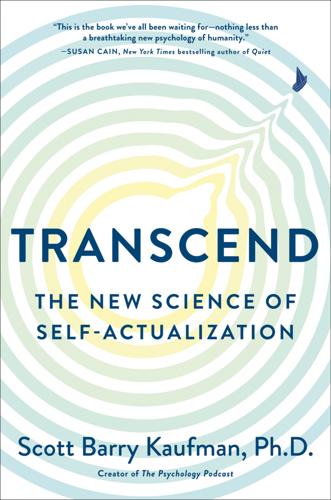
Transcend: The New Science of Self-Actualization
by
Scott Barry Kaufman
Published 6 Apr 2020
58 Also, there are plenty of examples of people who choose an “environmentally friendly” or “voluntarily simplistic” lifestyle, who also score high in life satisfaction despite their low income.59 In fact, research shows that, beyond a certain point, having more money can even be detrimental to growth and happiness. For one thing, more money tends to increase the materialistic drive, and materialism has been linked to decreases in happiness over time.60 We adapt quickly to the rewarding feeling of getting more money—what’s often referred to as the “hedonic treadmill”—leading to the constant feeling that no amount of money will ever be enough. As one team of researchers put it, “The cycle [of] . . . thrilling purchase, excitement fade, and subsequent desire for new material possessions . . . lends itself to materialism and decreased well-being.”61 More money also gives us more choices, and research shows that not only can more choices be overwhelming and stressful—“the paradox of choice”—but those who earn more than $100,000 a year spend more of their time engaging in unenjoyable activities (e.g., grocery shopping, commuting) and less time engaging in leisure than those earning less than $20,000 a year.62 More money also tends to make people less egalitarian and less empathetic toward strangers.63 Households that earn more than $100,000 a year donate a smaller percentage of their income to charity than those earning less than $25,000 a year.64 Even participating in an experience that makes you feel that you occupy a higher relative social class makes you less likely to give to charities than if you feel you are from a lower social class.
…
“evil,” 240–41 gossip, 43, 96–97 “gradient of autonomy,” 165 grandiose narcissism, 64, 71–76, 77, 78, 80, 122 Grant, Adam, 33, 166 Graves, Clare, 226 greed, 4, 131, 244 Greenberg, Jeff, 59 Griffiths, Roland, 209 grit and equanimity, 89, 171, 172–75, 178, 183 Grogan, Jessica, 185 Gross National Happiness, 237 group cohesion, 39–40, 44 growth, xviii, xix, xx, xxi, xxiv, xxv, xxvi, xxvii, xxviii, xxx–xxxi, xxxii, xxxiii–xxxiv, xxxv, xxxix, 29, 69–71, 72, 81, 81–185, 238 growth challenges, 279–309 growth-driven life motivations, 79, 80 growth-mindedness, 135 growth purchases vs. material purchases, 49–50 Haidt, Jonathan, 92, 201, 204, 206 “hangry” (from “hungry” and “angry”), 12 happiness, xx, xxi, xxv, xxvi, xxxiv, xxxvii growth, 84, 93, 100, 131, 132, 146–47, 153–54, 155–56, 170 healthy transcendence, 197, 208, 213, 214, 219, 223, 229, 237 security, 11, 26, 41, 43, 48–50, 51, 70, 79 Harari, Yuval, 213 Harlow, Harry, 35, 36, 54, 55 harmonious passion, 145, 171, 175–76 Hatt, Beth, 32 Hayes, Steven, 70 “health-fostering” victory, 215 health insurance, Americans’, 7 “healthy childishness,” 225 healthy transcendence, xxxi, 187–244 See also transcendence Heaphy, Emily, 42 heart disease and loneliness, 45 Heavy Head, Martin, 4 “hedonic treadmill,” 49 hedonism, 100, 229–30 Heitzman, A. Lynn, 240, 241, 243 “helicopter parenting,” 92 Herman Miller, 158 Herzog, Werner, 154 hierarchy of needs, xiii, xiv, xvi, xvii, xxi, xxiii–xxxix, xxxv, 7, 44, 148, 163, 167, 175, 185, 191, 219 “higher needs,” xv, xxviii high-quality connections, 42–45, 52 hippocampus, 25, 26–27 Hirsh, Jacob, 10 Hitler, Adolf, 167, 168 Hoffman, Edward, 150, 194 holistic perceiving, 222 Honnold, Alex (“No Big Deal”), 97–98, 99, 101 hope, 28, 30–34, 126, 129, 171, 177–78, 179, 228, 229, 237 Hope Scale, 178 Horney, Karen, xviii, xxiv, 83, 136 horticulturists (teachers, therapists, parents), xxiii hubristic pride, 79 human existence.
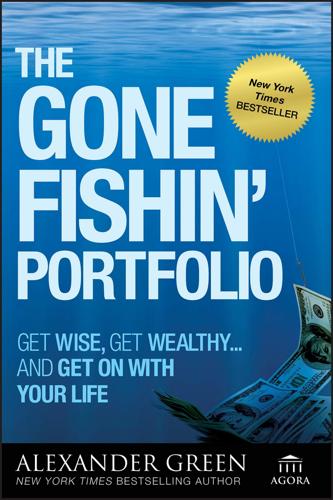
The Gone Fishin' Portfolio: Get Wise, Get Wealthy...and Get on With Your Life
by
Alexander Green
Published 15 Sep 2008
According to Akaisha, “Every time I looked at a latte or a new pair of shoes, I decided I didn’t need them. If you’re clear about what you want, it becomes easier. You can either buy this or be days closer to your goal.” Contrast this point of view with the materialistic mindset of many Americans, who often find themselves stuck on what psychologists call “the hedonic treadmill.” Instead of thinking about financial freedom, they’re obsessed with thoughts of a bigger house, a fancier car, the best new restaurants and, of course, a high-definition, 50-inch, flat-panel TV. I won’t argue that these things aren’t desirable. And, who knows, a bigger house may be a great investment (although not lately, and particularly not if you pull the equity out and spend it).
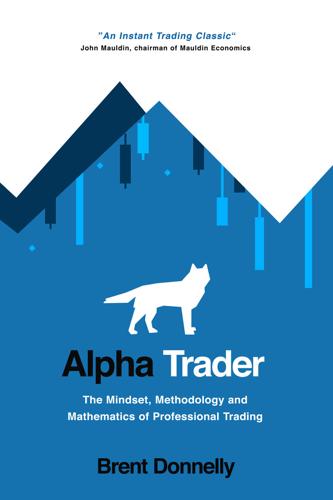
Alpha Trader
by
Brent Donnelly
Published 11 May 2021
This is a complex question given the instant feedback and direct monetary rewards of successful trading. Research shows that if you dream of being rich… No matter how rich you get, you will always wish you were richer. So, pursuing money for the sake of money is a pointless goal. There is a concept known as the hedonic treadmill which states that as a human being earns more money, his desires and expectations rise in tandem so that no amount of wealth will lead to greater happiness. Research shows this to be generally true. Once someone makes enough money to comfortably acquire shelter, clothing, food, and health care (annual income somewhere around $75,000 to $125,000 per year in most parts of the United States), additional increases in income do not increase happiness much.
…
Roth), 140 health, trader, 459, 481 See also exercise; meditation; mindfulness; yoga hedge fund traders/PMs, 78, 96, 106, 111, 116, 117, 118, 152, 189, 190, 195, 211 annual stop loss, 356, 357 appropriate capital, 149—150 evaluation and compensation, 354 free capital, 356 information asymmetry and, 156 Kelly Criterion and, 375 liquidity and, 283 as poker players, 192 success or failure of, 360 success rate, 40 hedge funds, 40, 78, 114, 150, 273 currency futures and, 421 macro analysis and, 347 pod-based, 162 hedonic treadmill, 128 Hefti, Andreas, 68 Heinke, Steve, 68 herding, 229-240, 483 belief in good stories and, 231 bubbles and, 236—240 conformity and, 230 fear of missing out and, 231—232 how to detect and combat, 234—236 incentives and, 232—233 reasons for market participant, 230—233 versus creative thinking, 232 See also Asch Conformity Experiment Hermann Grid Illusion, 180 Heuer, Richards J., 85—86, 88, 410 hindsight bias, 242 history, trader personal, 462—465 blue collar upbringing, 462—463 money versus happiness curve, 465 perception of money and, 463—464 thinking about, 462—465 Hollins, Peter, 106, 491 hot hand, 245—247 Hour Between Dog and Wolf, The (J.

Slouching Towards Utopia: An Economic History of the Twentieth Century
by
J. Bradford Delong
Published 6 Apr 2020
And we humans envision and then create new luxuries.33 Easterlin, bemused, puzzled over how “material concerns in the wealthiest nations today are as pressing as ever, and the pursuit of material needs as intense.” He saw humanity on a hedonic treadmill: “Generation after generation thinks it needs only another ten or twenty percent more income to be perfectly happy.… In the end, the triumph of economic growth is not a triumph of humanity over material wants; rather, it is the triumph of material wants over humanity.”34 We do not use our wealth to overmaster our wants. Rather, our wants use our wealth to continue to overmaster us. And this hedonic treadmill is one powerful reason why, even when all went very well, we only slouched rather than galloped toward utopia.

A Guide to the Good Life: The Ancient Art of Stoic Joy
by
William Braxton Irvine
Published 14 Feb 2009
The psychologists Shane Frederick and George Loewenstein have studied this phenomenon and given it a name: hedonic adaptation. To illustrate the adaptation process, they point to studies of lottery winners. Winning a lottery typically allows someone to live the life of his dreams. It turns out, though, that after an initial period of exhilaration, lottery winners end up about as happy as they previously were.4 They start taking their new Ferrari and mansion for granted, the way they previously took their rusted-out pickup and cramped apartment for granted. Another, less dramatic form of hedonic adaptation takes place when we make consumer purchases. Initially, we delight in the wide-screen television or fine leather handbag we bought.
…
Likewise, we experience hedonic adaptation in our career. We might once have dreamed of getting a certain job. We might consequently have worked hard in college and maybe graduate school as well to get on the proper career path, and on that path, we might have spent years making slow but steady progress toward our career goal. On finally landing the job of our dreams, we will be delighted, but before long we are likely to grow dissatisfied. We will grumble about our pay, our coworkers, and the failure of our boss to recognize our talents. We also experience hedonic adaptation in our relationships.
…
This might sound a bit silly, but to someone who has not lost his capacity for joy, the world is a wonderful place. To such a person, glasses are amazing; to everyone else, a glass is just a glass, and it is half empty to boot. Hedonic adaptation has the power to extinguish our enjoyment of the world. Because of adaptation, we take our life and what we have for granted rather than delighting in them. Negative visualization, though, is a powerful antidote to hedonic adaptation. By consciously thinking about the loss of what we have, we can regain our appreciation of it, and with this regained appreciation we can revitalize our capacity for joy. One reason children are capable of joy is because they take almost nothing for granted.
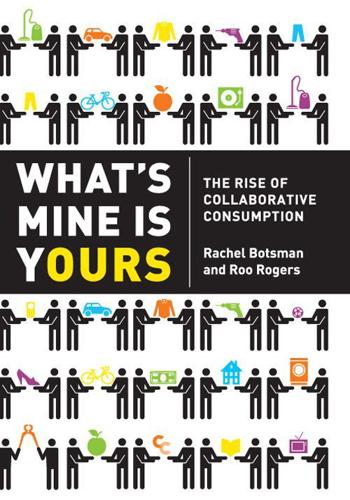
What's Mine Is Yours: How Collaborative Consumption Is Changing the Way We Live
by
Rachel Botsman
and
Roo Rogers
Published 2 Jan 2010
And it is only getting worse, as indicated by the massive increase in depression, anxiety, insomnia, heart disease, and obesity since the eighties.42 As political scientist Robert Lane comments in The Loss of Happiness in Market Democracies, “The appetite of our present materialism depends upon stirring up our wants—but not satisfying them.”43 Economists describe this emotional phenomenon as the “hedonic treadmill.” We work hard to acquire more stuff but feel unfulfilled because there is always something better, bigger, and faster than in the present. The distance between what we have and what we want, the “margin of discontent,”44 widens as the number of things we own increases. In other words, the more we have, the more we want.45 We are taught to dream and desire new things from an early age, as we are frequently asked, “What do you want for Christmas?”
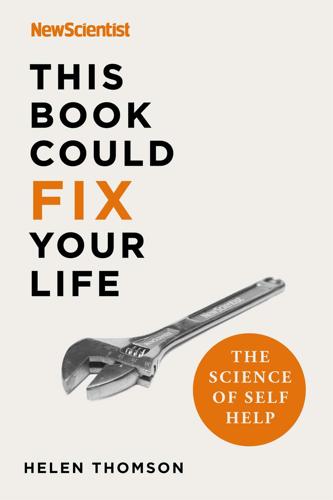
This Book Could Fix Your Life: The Science of Self Help
by
New Scientist
and
Helen Thomson
Published 7 Jan 2021
But most statistics contradict this instinct. Surveys consistently show that – crucially, once life’s basics are paid for – family income accounts for only a small variation in happiness across the population. The power of money to bring happiness is limited. Partly this comes down to something called the ‘hedonic treadmill’, neatly summarised by Aldous Huxley: ‘Habit converts luxurious enjoyments into dull and daily necessities’. Basically, we get a hit of happiness from new stuff, but after it becomes a normal part of life that pleasure wears off and our happiness level returns to where it started. This makes sense: although the tendency to adapt to our ‘new normal’ constrains our enjoyment of pleasurable things, it also protects us from the impact of sad or harmful environments – we adapt to these too.
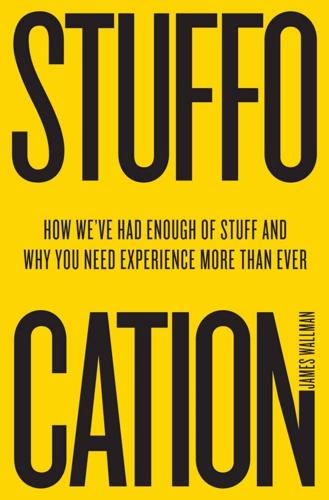
Stuffocation
by
James Wallman
Published 6 Dec 2013
Mass-produced goods, which are the natural product of the system, are the worst of all. They are so stripped of meaning and novelty that they have little chance of genuinely exciting or inspiring us. “The monotony of mass production is fully matched,” Scitovsky wrote, “by the monotony of its product.” So we become quickly bored with the goods we have – sociologists call this hedonic adaptation – and in the search for novelty, move on to the next thing, and begin the process again. Even where material goods are helpful, by helping us signify status, they create more problems than they solve. Because in today’s meritocratic society, having goods signifies success and, equally, not having goods says failure.
…
That camping holiday when all it did was rain, the bus trip when someone in the seat behind you threw up all the whole journey, the time you got laid off – somehow, those things, so awful at the time, never seem quite so horrific in the re-telling, do they? Material possessions are not as good as experiences because they are more likely to suffer from something psychologists call “hedonic adaptation”. Think of a new game or toy or mobile phone. You are, to begin with when you walk out of the shop, or just after the delivery man has been, very excited to have your shiny new thing. You play with it constantly, press buttons, learn how to use it, show it to friends. But as the days, weeks and months pass you get used to it, until, eventually, you do not even notice it anymore.
…
Because if it is harder to say which experience is better or worse, it is less likely that you will regret your choice, or think that yours is less good and suffer the indignity of lower status. This, psychologists have found, makes it easier to be happy with what you chose and, therefore, more likely to be happy. As well as being more prone to positive reinterpretation, less likely to be dulled by hedonic adaptation, and harder to compare, experiences are also better because we are more likely to view them as contributing to, and part of, our identities. That is, we are more likely to think of them as part of what makes us who we are. Think of the last time you went to a fancy-dress party or climbed to the top of a hill or went to a sporting event.

Daughter Detox: Recovering From an Unloving Mother and Reclaiming Your Life
by
Peg Streep
Published 14 May 2017
Humans also fall prey to what experts call “the impact bias.” Basically, we overestimate how future events, both good and bad, will affect us emotionally. We honestly believe that something good—getting the dream job, finishing school, moving to a new house—will lock in happiness forever. Thanks to what’s called either the “hedonic treadmill” or the “happiness set point,” the new thing that seemed to promise eternal happiness becomes, rather quickly, something we’re used to and thus stops making us happy. The dream job becomes the job you go to five days a week; graduating gives way to what to do next; and the house is where you live.
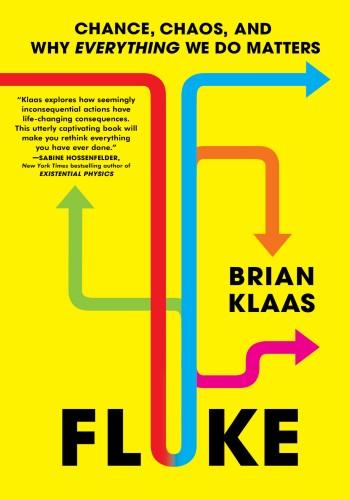
Fluke: Chance, Chaos, and Why Everything We Do Matters
by
Brian Klaas
Published 23 Jan 2024
The worst excesses of the self-help industry, particularly with books such as The Secret, is too often the self-obsessed narcissist’s guide to the universe, in which everything in existence can be beckoned to you if you just use the right words or thoughts to call it to your servitude. Even if the world worked that way (it doesn’t), research has established that humans tend to get stuck on a hedonic treadmill, in which we race and race as fast as we can toward the things that we think will make us happy—usually stuff and status—but in the end we find ourselves in the same place, right where we started. This isn’t to say that we should be stoics constantly chanting the Serenity Prayer, retreating from the injustices of the world, or accepting misfortune without trying to change our lot in life.

Meet the Frugalwoods: Achieving Financial Independence Through Simple Living
by
Elizabeth Willard Thames
Published 6 Mar 2018
But then we started to think, If it’s nice to eat out once a week, wouldn’t it be even nicer to get takeout another night, and nicer still to get lattes and scones every Saturday afternoon? What I didn’t know at the time is that Nate and I were victims of the hedonic adaptation that plagues our consumption-focused society. Hedonic adaptation is the concept that we calibrate ourselves to whatever we repeatedly do. If we constantly reward or treat ourselves (with restaurants and scones), we deaden our ability to derive true pleasure from those rewards. Then we require larger and more frequent rewards.
…
Like an addict, we start turning to money to solve more and more of our problems and to farm out more and more of our dissatisfaction with the life we’ve created and which we now must pay for. We become desensitized to pleasure and lose our capacity to experience joy from things we’d previously considered luxurious, such as a single restaurant meal a month. Nate and I realized we needed to disrupt this cycle of hedonic adaptation and recalibrate what brought us joy. Looking at every dollar we spent in a regular old month—not even a month when something noteworthy, like a friend’s wedding, happened—I felt like I do in the spring when I put on my bathing suit for the first time: exposed and larger than I had hoped. I was angry at myself.
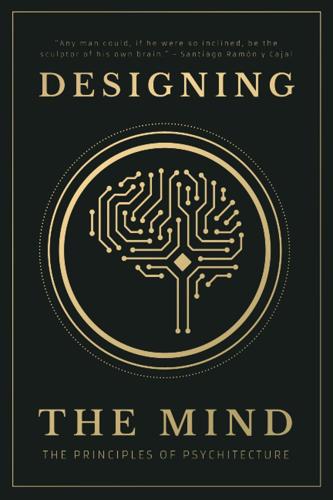
Designing the Mind: The Principles of Psychitecture
by
Designing The Mind
and
Ryan A Bush
Published 10 Jan 2021
Not only are many of the things for which we long impermanent, but even permanent achievements do not result in permanent satisfaction.24 We are built with a very clever mechanism which causes us to become quickly dissatisfied with our achievements and possessions and begin to look for ways to get even more (hedonic adaptation).25 At some point, it is inevitable that even the luckiest person will have nowhere to go but down relative to her own expectations. In Why Buddhism Is True, Robert Wright outlines a basic principle of Buddhism: Humans tend to anticipate more in the way of enduring satisfaction from the attainment of goals than will in fact transpire.
…
Emmanuel, ed., A Companion to Buddhist Philosophy, n.d. Robert Wright, Why Buddhism Is True: The Science and Philosophy of Meditation and Enlightenment. Chapter 1: Taking the Red Pill, n.d. Daniel Kahneman, Edward Diener, and Norbert Schwarz, eds., Well-Being: Foundations of Hedonic Psychology. Chapter 16: Hedonic Adaptation, First Paperback Edition (New York, NY: Russell Sage Foundation, 2003). Abraham H. Maslow, Toward a Psychology of Being, 3rd Edition. Chapter 1: Introduction: Toward a Psychology of Health, 3rd edition (cNew York: Wiley, 1998). Joachim C. Brunstein, “Personal Goals and Subjective Well-Being: A Longitudinal Study,” Journal of Personality and Social Psychology 65, no. 5 (1993): 1061–70, https://doi.org/10.1037/0022-3514.65.5.1061.
…
Wilhelm Hofmann et al., “Yes, But Are They Happy? Effects of Trait Self-Control on Affective Well-Being and Life Satisfaction,” Journal of Personality 82, no. 4 (2014): 265–77, https://doi.org/10.1111/jopy.12050. Kennon M. Sheldon and Sonja Lyubomirsky, “The Challenge of Staying Happier: Testing the Hedonic Adaptation Prevention Model,” Personality and Social Psychology Bulletin 38, no. 5 (May 1, 2012): 670–80, https://doi.org/10.1177/0146167212436400. William B. Irvine, A Guide to the Good Life: The Ancient Art of Stoic Joy. Chapter 5 - The Dichotomy of Control: On Becoming Invincible, 1st edition (Oxford University Press, 2008).
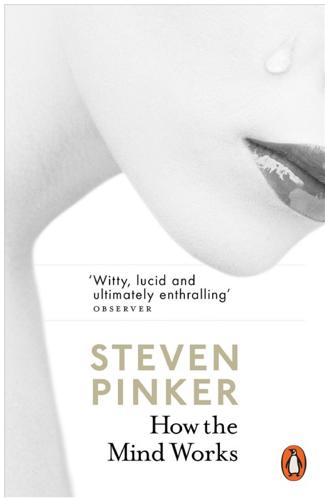
How the Mind Works
by
Steven Pinker
Published 1 Jan 1997
There are many ways to become infinitely worse off (from an infection, starvation, getting eaten, a fall, ad infinitum) and not many ways to become vastly better off. That makes prospective losses more worthy of attention than gains; there are more things that make us unhappy than things that make us happy. Donald Campbell, an early evolutionary psychologist who studied the psychology of pleasure, described humans as being on a “hedonic treadmill,” where gains in well-being leave us no happier in the long run. Indeed, the study of happiness often sounds like a sermon for traditional values. The numbers show that it is not the rich, privileged, robust, or good-looking who are happy; it is those who have spouses, friends, religion, and challenging, meaningful work.
…
Australian aborigines and ersatz savannas: Harris, 1992. 377 Reference frames in large terrains: Subbiah et al., 1996. 378 Disgust: Rozin & Fallon, 1987; Rozin, 1996. 379 Eating insects: Harris, 1985, p. 159. 380 Grossing out the Yanomamo: Chagnon, 1992. 381 Learning what is good to eat: Cashdan, 1994. 381 Mom and Dad as food tasters: Cashdan, 1994. 383 Contamination by contact: Tooby & Cosmides, personal communication. 383 Animalitos and optimal foraging: Harris, 1985. 384 Ecology and food taboos: Harris, 1985. 386 Phobophobia: Coined by Richard Lederer. 386 Fears and phobias: Brown, 1991; Marks & Nesse, 1994; Nesse & Williams, 1994; Rachman, 1978; Seligman, 1971; Marks, 1987; Davey, 1995. 387 Lion phobia in Chicago: Maurer, 1965. 388 Relative rarity of screaming meemies: Rachman, 1978; Myers & Diener, 1995. 388 Monkeys learning snake phobias: Mineka & Cook, 1993. 389 Conquering fear: Rachman, 1978. 390 Happiness and social comparisons: Kahneman & Tversky, 1984; Brown, 1985. Violence and inequality: Daly & Wilson, 1988, p. 288. 391 Who is happy?: Myers & Diener, 1995. Heritability of happiness baseline: Lykken & Tellegen, 1996. 392 Gains versus losses: Kahneman & Tversky, 1984; Ketelaar, 1995, 1997. 393 Hedonic treadmill: Brickman & Campbell, 1971; Campbell, 1975. 394 Murray and Esther: From Arthur Naiman’s Every Gay’s Guide to Yiddish. 395 Crime and discounting the future: Wilson & Herrnstein, 1985; Daly & Wilson, 1994; Rogers, 1994. 395 Myopic discounting: Kirby & Herrnstein, 1995. 395 Self-control and rational consumers: Schelling, 1984, p. 59 396 Two selves: Schelling, 1984, p. 58. 397 The selfish replicator: Williams, 1966, 1992; Dawkins, 1976/1989, 1982; Dennett, 1995; Sterelny & Kitcher, 1988; Maynard Smith, 1982; Trivers, 1981, 1985; Cosmides & Tooby, 1981; Cronin, 1992. 397 Selection of replicators, groups, and branches: Gould, 1980b; Wilson & Sober, 1994; Dennett, 1995; Williams, 1992; Dawkins, 1976/1989, 1982. 400 Kin selection: Williams & Williams, 1957; Hamilton, 1963, 1964; Maynard Smith, 1964; Dawkins, 1976/1989; Trivers, 1985. 402 Reciprocal altruism: Williams, 1966; Trivers, 1971, 1985; Dawkins, 1976/1989; Cosmides & Tooby, 1992; Brown, 1985, p. 93. 404 Reciprocal altruism and the emotions: Trivers, 1971, 1985; Alexander, 1987a; Axelrod, 1984; Wright, 1994a.

Human Frontiers: The Future of Big Ideas in an Age of Small Thinking
by
Michael Bhaskar
Published 2 Nov 2021
The leap from a galaxy of a huge number of stars, to a universe of a huge number of galaxies, to a multiverse of a huge number of, well, absolutely everything does not induce commensurately larger gasps. People talk of an infinite capacity for wonder. Maybe not. Next time you're scrolling through Facebook while vaguely watching that mind-blowing nature or physics documentary, check on your infinite capacity for wonder. Eventually it gets saturated. The notion of the hedonic treadmill suggests that our capacity for taking pleasure can be depleted. We adapt to happy circumstances, and what once gave us surges of joy – perhaps a new plaything or partner or promotion – quickly becomes normal. Something similar has occurred with ideas.49 What would once blow minds, change the world, crowd the streets, feels much smaller, elicits little more than a shrug.
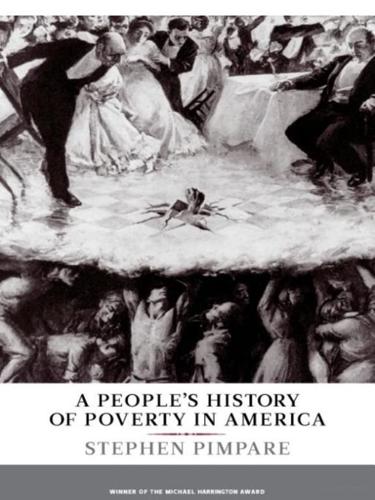
A People's History of Poverty in America
by
Stephen Pimpare
Published 11 Nov 2008
I didn’t even know we were poor. But when we moved, I felt surrounded by people who seemed incredibly wealthy and who made me feel terribly inferior because of the clothes I wore, the way I talked, and the food I ate.26 Moreover, living standards may be subject to what Richard Layard calls the “hedonic treadmill.” As he puts it, it’s “like alcohol or drugs. Once you have a certain new experience, you need to keep on having more of it if you want to sustain your happiness.”27 People adapt and adjust to their surroundings and to their living standards, and we know that people feel a loss more acutely than an equivalent gain.28 As Amartya Sen observes, “in a generally opulent country, more income is needed to buy enough commodities to achieve the same social functioning.”29 This is why many seek definitions of poverty that move beyond mere brute calculations of money income.30 One relative measure, and the one often used in international comparisons of poverty, is half the median income.
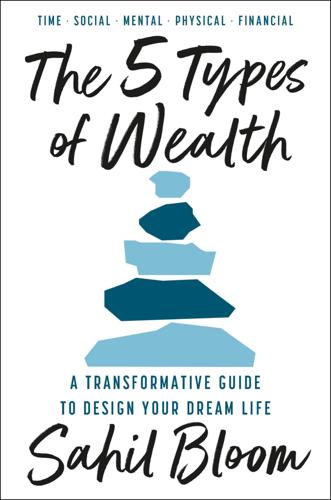
The 5 Types of Wealth: A Transformative Guide to Design Your Dream Life
by
Sahil Bloom
Published 4 Feb 2025
Rockefeller replied, “Just a little bit more.” The quest for more is the modern-day equivalent of the Sisyphean struggle. We push the boulder up the hill, working harder and longer to achieve whatever summit we’re chasing, only to have the boulder roll back down to the bottom and force us to begin anew. Hedonic adaptation—that biological predisposition to return to a baseline after positive events—means that no financial win ever quite satiates. Your current definition of more becomes your future definition of not enough as you set your sights on the next level that you convince yourself will bring happiness and contentment.
…
This subconscious reset—from “I’ll be happy when I have [$X]” to “I’ll be happy when I have triple [$X]”—creates the upward spiral of expectations that you need to avoid. You will never have true Financial Wealth if you allow your expectations—your definition of enough—to grow faster than your assets. There is no perfect antidote. Hedonic adaptation means our chase for more is genetically hardwired, but forcing the definition of enough out of the subconscious mind and into the conscious mind is a start. After my son was born, in May 2022, I started to contemplate exactly what my Enough Life would look like—that is, the life of lagom, where I have just the right amount of Financial Wealth.
…
T., 136 Grant Study, 136–37 Great Depression, 324 Great Resignation of 2021, 140 Greece (ancient), 69, 75, 102, 135, 149n, 211, 270–72 growing in love, 160, 168–73 growth, as pillar of Mental Wealth, 217, 220–23, 240–49, 256 growth mindset, 222–23 H Haise, Fred, 34 Hanks, Tom, 35, 42 Hanlon’s razor, 36 Happier Hour (Holmes), 83, 112 happiness, 161–62, 224 hard work, 346–47 Harris, Sam, 65 Harvard Business School, 20, 74, 332 Harvard College, 136 Harvard Law School, 136 Harvard Study of Adult Development, 137–38, 150 Harvard University, 205–6, 220, 223 health and wellness industry, 273–74 hedonic adaptation, 314, 316 Heh (god), 68 Heller, Joseph, 313, 318 helped, heard, or hugged method, 160, 176–77 Hendricks, Gay, 237 high competency pursuits, 235, 238 high-leverage systems, 46, 48–51, 125, 150, 200, 257, 308, 364 high stress, 304 Hinduism, 68, 210–11 Hitchens, Christopher, 36 Hitchens’s razor, 36 hobby, zone of, 237–39 Holmes, Cassie, 83, 112 Holmes, Elizabeth, 315 honesty, as pillar of Social Wealth, 151 hot yoga, 273 Housel, Morgan, 156, 332 How to Know a Person (Brooks), 180 Howard, Ron, 34 Huberman, Andrew, 286 Huberman Lab podcast, 286 humanist movement, 269, 271 hunter-gatherers, 135, 269–70 hydration, 284, 291, 293–94, 298 I I Will Teach You to Be Rich (Sethi), 341 Ideation Time, 118–20 ikigai, 212, 232–33, 257 Imaginable (McGonigal), 264 impostor syndrome, 347 impulse buying, 343, 362 Incans, 135 Inception (movie), 367 income generation, 316, 328–29, 335–36, 345–49, 363–64 income-producing products, 356–57 index funds, 342, 359 Indian cultures, 68 Indianapolis Colts, 266 input and output, 82–84, 94, 106, 225, 274 Inside Tracker, 301 intelligence, 137, 222 International Olympic Committee, 272 Interstellar (movie), 70 intimidation, 102, 105 investment property, 353–54, 360 invisible hand, 73 Irsay, Jim, 266 J Jainism, 68 Jobs, Steve, 148, 216–17, 315 Johnson, Bryan, 275–78 Journal of Aging Research, 279 Journal of Personality and Social Psychology, 83 Journal of the American Medical Association, 219 journaling, 228, 254–55 Julius Caesar, 268 Just Keep Buying (Maggiulli), 333, 352 juvenile delinquency, 136 K kairos, 75, 83 keto diet, 273 Keys, Alicia, 193 Kierkegaard, Soren, 250 Krasnow, Mark, 305 Krishna, 211 Kublai Khan, 323 L lagom, 315–16, 339–40 Lanchester, John, 323 Landis, Vicki, 132 language, 135 Lao Tzu, 22 lava game, 194–95 Leo X, Pope, 320 Leonardo da Vinci, 268–69, 271 Leroy, Sophie, 73 letter from future self, 52–55 leverage, defined, 46 Lewis, C.
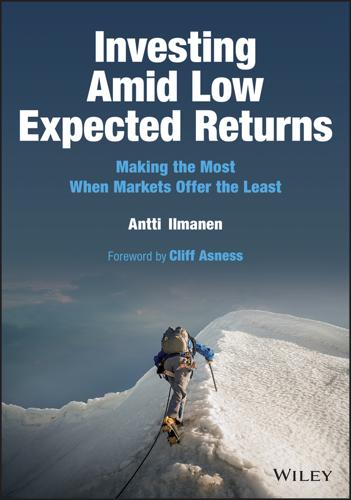
Investing Amid Low Expected Returns: Making the Most When Markets Offer the Least
by
Antti Ilmanen
Published 24 Feb 2022
After the subset of successful (in part, lucky) entrepreneurs sell their businesses, they may have overconfident and unrealistic expectations of feasible returns. This makes them vulnerable to dream-sellers promising high expected returns if they think that even mediocre players should be able to earn double-digit returns. 9 Given humans' incredible ability to adapt, rising standards of living raise our expectations. To resist jumping on the hedonic treadmill, it helps to recall the old quip that happiness equals the gap between reality and expectations. Balancing between striving for more and appreciating what you have is not easy. Survey evidence of the so-called happiness curve suggests that this balance shifts mid-life, making the above-50s more easily contented and happier, perhaps because their genetic duty is done.
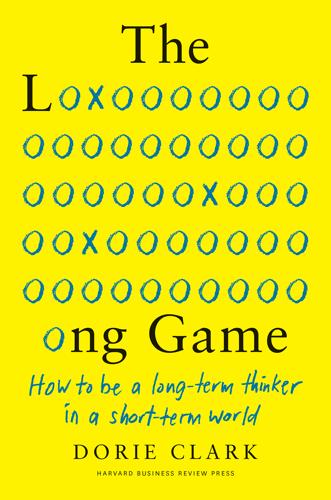
Long Game: How Long-Term Thinker Shorthb
by
Dorie Clark
Published 14 Oct 2021
“When we first started,” he recalls, “my first Forbes column, my first HBR column, my first tweet, my first LinkedIn follower, my first podcast: there’s all that euphoria.” His ideas began to be heard, and recognized, and amplified. One of his early hbr.org articles even went viral, becoming one of the ten most popular of the year. But, as he notes, “the honeymoon goes away quickly.” Psychologists call it hedonic adaptation when the happiness or excitement we feel about something fades, and we revert to our baseline levels. Getting published regularly in august publications would have seemed like an amazing victory to the Ron of a year or two prior. But now he had different problems to contend with. “You get four hundred page views on Forbes, and you suck,” he says.
…
See also networks and networking connectors, 150–151 content creation, 103–105, 118–119 gaining recognition through, 125 leveraging, 126–127 Corcoran, Marlena, 83–84 CORE Leadership Program, 63 costs opportunity, 45–46 physical/emotional, 46–47 Covid-19 pandemic, 3–5, 87 creating, 103–105 Crenshaw, Dave, 27–29, 197–198 culture going against the prevailing, 29 on our calling, 56 curiosity, 210 customer service, 40–41 Cutruzzula, Kara, 103–104 Davies, Ali, 24 deadlines, 88–89, 187–188 deception phase of exponential growth, 166–167 delayed gratification, 193–196 Deloitte, 63 Del Val, Dayna, 181–184 Design the Life You Love workshop, 110–111 Diamandis, Peter, 165–166 DiBernardo, Albert, 106, 200–201 Dierickx, Constance, 60–61 Dijksterhuis, Ap, 117–118 distance to empty, 197–199 diversity, long- vs. short-term thinking about, 6–7 documentary filmmaking, 57–58 Do It for Yourself (Cutruzzula), 104 dorieclark.com, 221 Drucker, Peter, 110, 117 Edison, Thomas, 181 Edmondson, Amy, 119 Edwards, Sue, 57–58 email, 21–22 emotional costs, 46–47 The E-Myth Revisited (Gerber), 102 e-newsletters, 220–221 Entrepreneurial You (Clark), 5, 99, 147, 220 entrepreneurship, learning, 101–103 Etsy, 62 execution mode, 3 hidden benefits of, 22–25 expectations, 168–169 experimentation, 15 20% time for, 14, 74–78 failure and, 180–181 expertise, recognition for, 125–127 exploration, 73–93 20% time for, 14, 74–78 carving out time for, 82–85 life portfolios and, 78–80 of New York City, 73–74, 81–82 realizing dreams through, 85–92 exponential growth, 165–167 exponential technologies, 165–166 failure, 9, 15 extreme goals and, 173–179 finding alternatives and, 184–187 involving your community and, 188–190 looking foolish and, 66–67 minimum benefit and, 90 multiple paths and, 181–184 resilience and, 211 rethinking, 173–190 family, 47–48 leveraging for, 120 meaning-based goals and, 55–56 prioritizing, 27–28 saying no and, 39, 46 Feingold, Sarah, 61–62 Fernandez, Jenny, 139–140, 149 Ferrazzi, Keith, 102 Ferriss, Tim, 23 focus, 14–15, 53 deciding what to be bad at and, 39–41 heads-up/heads-down strategy for, 99–100 on money, 55 strategic leverage and, 112, 115–128 thinking in waves and, 95–113 time for exploring, 73–93 Fogg, BJ, 195 FOMO (fear of missing out), 34, 47–48 Forbes, 97–98 Fowlds, Samantha, 205–206 Freestyle Love Supreme Academy, 65–66 Frei, Frances, 40–41 Friedman, Stew, 119 Fun Home (musical), 74 gatekeepers, 161–162 Gautam, Tanvi, 138–139 Gerber, Michael, 102 Germanotta, Stefani, 192 Getting Things Done (Allen), 29–30 Gino, Francesca, 133–134, 149 Give and Take (Grant), 141 Gmail, 75 goals, 14–15, 53 20% time and, 82–85 based on the kind of person you want to be, 65–67 coaches for, 86–88 deadlines for, 88–89 deciding what to be bad at and, 39–41 dreams and, 85–92 evaluating opportunities based on, 38–39 evaluating what you’re doing now and, 59–61 exploring, 92 extreme, 67–72, 173–179 failure and, 173–179 forgetting what others think and, 63–65 getting support for, 86 leveraging for professional, 122–123 optimizing for interesting, 14, 56–59 perseverance and, 157 planning around your priorities and, 27–30 remembering why you started and, 61–63 setting, 55–72 strategic overindexing and, 96–98 time frames for, 90–92 tracking data on, 115–116 Godin, Seth, 171 Goldsmith, Marshall, 109–112, 117 Good Morning America (TV show), 145–146 Good to Great (Collins), 102 Google, 159 20% time at, 14, 74–78 News, 75 X, 76–78 Granovetter, Mark, 132 Grant, Adam, 141 gratification, short-term vs. long-term, 13, 193–196 Gulati, Daniel, 147 Guthier, Christina, 122–123 habits, tiny, 195 Hagel, John, 34 Hall, Jeffrey, 132 Hamilton (musical), 65–66 Harry Potter (Rowling), 161 Harvard Business Review, 97–98, 137, 159 heads-up/heads-down strategy, 99–100 hedonic adaptation, 160 “Hell yeah or no” strategy, 35–37 Hersey, Paul, 109–110 Hesselbein, Frances, 110 Hill, Napoleon, 184 Horn, Sam, 187, 188 Incontrera, Marie, 70–71 information asking for, to evaluate opportunities, 42–44 attention to, 25 hoarding, 12 networking and, 107–108 innovation exponential growth and, 165–166 feature, 7 life portfolios in, 78–80 making time for, 14 space for, 29–30 interest optimizing for, 14, 56–59 setting goals based on, 59–61 time for exploring, 73–78 introverts, 107–108 jazz album, 146–149 Joel, Mitch, 144–145 Johnson, Rukiya, 55–56 Kalin, Rob, 62 KashKlik, 142–143 Kaur, Manbir, 46–47 Kim, W.
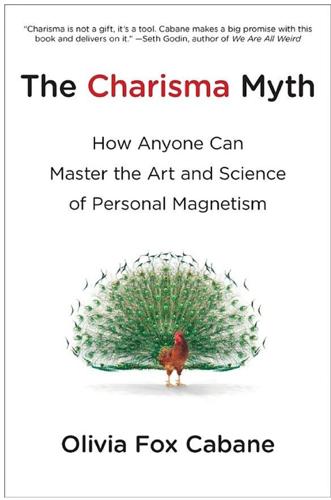
The Charisma Myth: How Anyone Can Master the Art and Science of Personal Magnetism
by
Olivia Fox Cabane
Published 1 Mar 2012
If you can access gratitude, an instant change will sweep through your body language from head to toe: your face will soften, your whole body will relax. Your body language will emanate both warmth and a particular grounded confidence that people will find very appealing. But few of us can simply decide to get into a state of gratitude. In fact, for most people, gratitude doesn’t come easy. Human beings are instinctively wired for hedonic adaptation: the tendency to take our blessings for granted.5 Telling yourself that you should be grateful is often counterproductive, as it only brings up guilt. Clients complain that when someone tells them “You should be grateful,” it only makes them feel worse: either resentful or guilty for not being grateful.
…
Index academia, 3 acceptance, 103, 231 adrenaline, 38, 170, 196–97 alpha males, 86, 219 American Express, 118–19 analogies, 189, 233 anger, 50, 52, 170 annoyances, 77 anxiety, 32–37, 38, 40, 42, 50, 56, 86, 90, 202 apologies, 165, 171, 180–83, 186 appearance, 102, 232 authority charisma and, 106 at presentations, 191 Apple, 101, 189 appreciation, 75–79, 168–70, 209, 233 arrogance, 106, 162 assertiveness, 92 athletic conditioning, 12, 38 attention, 138–39 attractiveness, 10 authority, 142, 191, 210 authority charisma, 98, 104–7, 109–10, 112, 119, 167, 231 awareness, 30–31, 161 bad news, 165, 172–75, 186, 233 Barnard, Hayes, 109, 215–16 Batman (film), 40 behavior, 232 visionary charisma and, 101 warmth and, 18 behavioral science, 11, 85, 94, 115, 150 Benjamin Franklin Effect, 167–68, 208 Berman, Adam, 34 blinking, 21, 153 boardroom presence, 5 body language, 4, 17, 18, 20–24, 26, 27, 39, 41, 42, 53, 58, 109, 111, 128, 143–64, 229–30, 232–34 for actors, 68 anxiety and, 32, 202 apologies and, 181 authority charisma and, 106 bad news and, 174, 186 compassion and, 176 criticism and, 179 empathy and, 171 enthusiasm, 139 exercise of, 91–92 focus charisma and, 99, 100 goodwill and, 80, 82 gratitude and, 76 kindness charisma and, 103 mental states created by, 91–92, 103, 240 mimicking, 146–50, 163, 164 on phone, 184 physical discomforts and, 29–31 stress hormones and, 170 visionary charisma and, 101 visualization and, 68, 69, 73, 97 Bosl, William, 35–36 bounce back technique, 124 Brach, Tara, 18 Bradoo, Privahini, 81 brain: as changeable, 68 imaginary v. real indistinguishable to, 24–25, 26, 44, 55 left frontal lobes, 88 Brando, Marlon, 68 breathing, 15, 16, 17, 30, 129, 141, 195–96, 198, 234, 235, 241–42 Brown, Brené, 45 brute force, 19 Buddha, 88 Bush, George W., 101, 110, 203, 216 business, 100 business success, handling uncertainty and, 34 California, University of, at Berkeley, 11 calls, 96–97 calm, 172 candles, 174 Capone, Al, 169 Carnegie, Dale, 135, 168 Ceci, Stephen, 139 CEOs, 6, 116–17, 218 Chariots of Fire, 71 charisma: as applied science, 6 authority, 98, 104–7, 109–10, 112, 119, 167, 231 as believed innate, 2, 4 benefits of, 2–3 choosing right style of, 98–114, 166 conscious practice of, 11, 12, 14, 15, 34–35, 46, 50–51, 56, 57, 62–63, 64–65, 69–70, 77–79, 81, 83, 87, 88–89, 91–92, 96, 108, 119, 121–22, 140, 141, 152, 155, 159–60, 199, 217, 235–43 creating mental states of, 67–97 in a crisis, 201–5, 234 as critical in business, 3 downsides of, 206–21 experimenting with, 111, 113, 114 fluctuations in level of, 4 focus, 98–101, 103, 107, 109, 110, 112, 166–67, 181, 214, 231 kindness, 98, 102–4, 107, 109, 110, 112, 133, 158, 171, 175, 214, 231 learning of, 2, 4, 22 myths of, 9–12, 229 obstacles to, 27–42, 43–66, 67, 230 as originating in mind, 21–23 putting work into, 6 studies of, 5, 9, 10, 51 styles of, 98–114, 231 visionary, 98, 101–2, 103, 107, 108, 109, 110, 112, 136, 167, 231 warming up for, 93–97, 103, 172 chin, 162, 182 chromatic effects, 191 Chrysler, 137 Churchill, Winston, 10, 50, 112, 201 Clinton, Bill, 2, 6, 80, 109, 134–35, 208–9, 216–17 clothing, 19, 30, 42, 47, 102, 106, 118–19, 127, 159, 230, 233–34 authority status and, 105 cognitive reappraisal, 52–54 cognitive science, 11 Columbia University, 91 comedians, 193 comfort, 152 comfort zones, 64–65, 114, 151, 224 comparison, 37 compassion, 79–82, 83–84, 97, 103, 150, 176, 231, 239 self-, 84–90, 103, 181, 239 compliments, 134–36 confidence, 32, 39–41, 43, 60, 67, 69, 70, 92, 97, 142, 161, 172 authority confidence and, 104–7 kindness charisma and, 102–4 self-, 84, 85–86, 94–95 conscious mirroring, 146–50 consultants, 100 continuous partial attention, 16 conversations, 7, 123–26, 127, 232 exiting, 125–26, 127, 179–80 hostile, 100 cortisol, 38 creativity, 107 critical thinking, 106 criticism, 165, 175–80, 186 self-, 38–39, 40, 42, 50, 86–87, 90 Dalai Lama, 5, 19, 87, 88, 98, 103, 104, 112 Darius, 147–49 Darwin, Charles, 74 Deckers Outdoors, 83 dedramatize, 46, 59, 66, 198, 202 defensiveness, 177 Deloitte, 83 delving into sensations, 61, 62–64, 100, 129 DeNiro, Robert, 68 depersonalization, 176–77, 233 depression, 86, 90 desperation, 75 destigmatizing, 43–46, 47, 51, 58, 59, 65, 66, 198, 202, 236 Deutsche Bank, 124–25 Diana, Princess of Wales, 112 difficult people, 7, 165–72 discomfort, 47, 60–61, 66 delving into, 61, 62–64 destigmatizing, 43–46, 47, 51, 58, 59, 65, 66, 198, 202, 236 mental, 31–41, 43, 44, 65 physical, 28–31, 42, 43, 44, 59, 65, 66 practice with, 62–63, 64–65 Disraeli, Benjamin, 9, 20, 124, 133 dissatisfaction, 37, 40, 42 distractions, 15–16 dramatic pauses, 196–97 Drucker, Peter, 220 Edison, Thomas, 74 Egypt, 120 Ekman, Paul, 111n e-mails, 73, 97, 183, 185, 186 Emerson, Ralph Waldo, 74 emotional contagion, 145–46, 164 emotions, 91, 144, 163, 211 empathy, 82, 145, 160, 170, 171, 176, 233 while delivering criticism, 175–76 facial expressions and, 174 energy, 92 engineers, 24 entertainment, 138, 142 enthusiasm, 139, 156, 185 envy, 207–11 equanimity, 201–2, 234 executive presence, 5 executives, 23 external skills, 23 extroverts, 108 eye contact, 111, 122, 153–56, 162, 164 “Eye of the Tiger” (song), 71 eyes, 28–29, 30, 31, 42 facial expressions, 14, 21–22, 38–39, 47, 91, 97, 111, 130–31 apologies and, 181 criticisms and, 179, 182 delayed, 184 empathy and, 174 Fauré, Gabriel, 196 fear, 40–41 feedback, 106, 107 Fehmi, Les, 154 Feuer, Michael, 184 fidgeting, 106, 149, 160, 161, 173 fight or flight, 5, 38, 41, 52, 117, 144, 159, 197 firelight, 174 fireside chats, 194 first impressions, 115–27, 149, 232 “firsts,” 177 Fisher, Helen, 153 “Flying” (song), 71 focus, 183–84, 191 focus charisma, 98–101, 103, 107, 109, 110, 112, 166–67, 181, 214, 231 Franklin, Benjamin, 167–68, 178 French Revolution, 201 frustration, 130 functional MRI scans, 80 funerals, imagining, 78–79, 83 Galbraith, John Kenneth, 115, 169 Gandhi, Mohandas, 112, 201 Gates, Bill, 19, 99, 112 Germer, Christopher, 87, 90 gestures, 139 Gilbert, Daniel, 16 Gilbert, Paul, 82 Gladstone, William, 9, 20 glucose, 29 goals, 107, 110, 113 Goldsmith, Marshall, 215, 220 Goleman, Daniel, 146 good feelings, 138, 142 goodwill, 79–82, 97, 103, 111, 114, 199, 231 criticism and, 182–83, 186 practice of, 81, 83 Google, 119, 135 gorilla exercise, 158, 159, 164, 193, 242 graffiti metaphor, 49, 50, 66 gratitude, 75–79, 97, 103, 231, 238 practice of, 77–79 gravitas, 92 Gross, James, 22n Gruenfeld, Deborah, 158, 159 Gulf War, 203 handshakes, 119–23, 127, 240 Hanson, Rick, 82 happiness, 53n, 81 Haque, Omar Sultan, 201 Harvard Business Review, 144, 146 Harvard Medical School, 55 Harvard University, 73, 91, 116–17 Hayes, Stephen, 49, 51 hedonic adaptation, 76 Hill, Napoleon, 74 Hitler, Adolf, 220 House, Robert, 3, 203 Howard, John Newton, 71 How to Win Friends and Influence People (Carnegie), 168 hugs, 73, 198 human resources, 116–17 hunter-gatherers, 117 Iacocca, Lee, 137 IBM, 99–100, 119 imaginary situations, 24–25, 26, 44, 55 compassion and, 83 funeral, 78–79, 83 immune system, 86 impact, 210 impatience, 63 impostor syndrome, 39–40, 41 income, 2 inferiority, 90 information, 138, 142 insecurity, 160 inspiring, 102 internal critic, 86 interrupting, 129, 130, 182 interviews, 38, 96–97, 113, 116–17, 119, 130, 159 intonation, 10, 106, 139–40, 141, 142, 194–95, 233, 241 introverts, 10, 98, 108 Iowa, University of, 119–20 iPhones, 189 iPod Nano, 136 irritants, 192 irritation, 155 Izuma, Keise, 168 JALIR sequence, 210–11 Joan of Arc, 101, 112 Jobs, Steve, 2, 101, 108, 112, 146, 189–90 increasing charisma of, 4–5 presentations rehearsed by, 192 Jones, Franklin, 175 Jones, Jim, 102 Jordan, Michael, 104, 216 Jungle Book, The (Kipling), 118 justification, 209 Keeler, Jack, 99–100 Kelleher, Herb, 146 Kennedy, John F., 129 Kerry, John, 107–8 Khurana, Rakesh, 215 kindness charisma, 98, 102–4, 107, 109, 110, 112, 133, 158, 171, 175, 214, 231 King, Martin Luther, Jr., 101, 112 Kipling, Rudyard, 118 Kosslyn, Stephen, 68 Krauss, Stephen, 70 Langer, Ellen, 25 language, 20, 136, 144, 186 Lao Tzu, 24 “lasts,” 177 leadership, 2, 3 compassion needed for, 83 Leahy, Robert, 32 lectures, 139–40 left frontal lobes, 88 life, enjoying, 17–18 limbic resonance, 146 Lincoln, Abraham, 74, 136 listening, 14, 17, 26, 100, 128–31, 142, 184, 231, 232, 241 Little Prince, The (Saint-Exupéry), 185 logic, 144, 163 lovable book, 90 love at first sight, 153 Lowndes, Leil, 185 Lurie, Bob, 40 Madonna, 98 Mao Zedong, 112, 220 marketing, 169 Martinez, Angel, 83 meditation, 12, 15, 16, 18, 45 meetings, 72–73, 96–97 memory cards, 189–90 mental discomfort, 31–41, 43, 44, 65 metaphors, 189, 190, 233 Method acting, 12, 68 Metta, 87–90, 239–40 Michelangelo, 27 microexpressions, 22, 182 mindfulness discipline, 15, 45 Mindful Path to Self-Compassion, The (Germer), 87 mindset shift, 15–16, 224 mind wandering, 16 mirror, 155 mirror neurons, 145 Miss Piggy, 92–93 MIT, 73 MIT Media Lab, 20, 126, 140 moms, 3 Monitor Group, 40 Monroe, Marilyn, 1, 4 Multiple Sclerosis Association, 203 Muppet Show, The, 92–93 music, 70–71, 95, 96, 174 Musk, Elon, 98–99 Mussolini, Benito, 104, 220 Napoleon I, Emperor of the French, 74, 201, 204 narcissism, 85 neediness, 75 Neff, Kristin, 86 negative associations, 131–34, 142 negativity, 37, 38–39, 40, 42, 46 neutralizing, 47–51, 58, 59, 65, 66, 202, 236 suppressing, 52 negativity bias, 48–49 negotiations, 100, 130 NeuroLeadership Institute, 38 neuronal connections, 68 neuroscience, 11 Newman, Paul, 68 New Scholars, 147–49 New York Times, 188 Ney, Marshal, 204 Nicklaus, Jack, 67 nocebo effect, 25–26 nodding, 10, 106, 149, 160, 161, 162, 164 numbers, 189–90 Obama, Barack, 109 Ochsner, Kevin, 22n OfficeMax, 184 Onassis, Aristotle, 153–54 open-ended questions, 123 Oracle, 119 oscillators, 146 outgoing personalities, 10 owning the stage, 193–94 oxytocin, 73, 170, 198 Paramount Equity, 109, 215 Parkinson’s Law, 55 patience, 100, 103 pauses, 10, 106, 130–31, 141, 234 pausing, 129 in presentations, 196–97 Pavlov, Ivan, 132 PayPal, 98 Penn, Sean, 68 performance, 53, 58 performance review, 174 Perot, Ross, 216 Persia, 132 personality, 10, 107–10, 113 personal magnetism, 6 personal space, 150–53 Peter Pan, 71 phenylethylamine (PEA), 153 phones, 183–85, 186 physical discomfort, 28–31, 42, 43, 59, 65, 66 physicians, 3 pictures, 136–39, 142 pitch, 140 placebo effect, 25, 26, 36, 55, 74 Play-Doh, 173–74 posture, 21, 91, 97, 147, 149, 150, 156–63, 164 authority charisma and, 106 in presentations, 198 Powell, Colin, 5, 104, 112 power, 5, 6, 13, 18–20, 21, 26, 27, 31, 67, 94, 100, 130, 139, 142, 162, 191, 224, 229–30, 231, 234 praise, 207–11 presence, 5–6, 12, 13–18, 26, 27, 31, 63, 129, 142, 154, 224, 229–30, 235 anxiety and, 32 appearance of, 191 body language and, 21 focus charisma and, 100, 231 techniques for, 15 presentations, 7, 72, 187–200, 215, 232, 233–34 charismatic message in, 188–90 colors at, 191 mid-course corrections, 197–99 Q&As at, 190 rehearsals of, 192–93 supporting points in, 189 warmth in, 194–95 Rao, Srikumar, 53n rationalization, 170–71, 186 reality: mind’s view of, 47–49, 50 rewriting, 51, 52–58, 59–60, 65, 66, 202, 236–37 reassurance, 161, 162, 164 resentment, 57, 58, 75, 130, 207–11 resilience, 64–65 responsibility, 210 responsibility transfer, 34–37, 42, 45, 60, 100, 202, 235–36 Rice, Condoleezza, 5 Riggio, Ronald, 143–44 Rock, David, 38 Rocky III, 71 role-playing, 96 romance, 2, 174 Rome, 120 Roosevelt, Franklin Delano, 136, 194 Saint-Exupéry, Antoine de, 185 sarcasm, 56 satisfaction, 58, 237 Schiro, Tom, 83 Schnabel, Arthur, 130 seating choices, 152–53, 242 Seinfeld, Jerry, 192, 193 self-acceptance, 85 self-compassion, 84–90, 103, 181, 239 self-confidence, 84, 85–86, 94–95 self-consciousness, 199 self-criticism, 38–39, 40, 42, 50, 86–87, 90 self-doubt, 39–41, 42, 43 self-esteem, 84–85, 94–95 self-evaluation, 85 self-warmth, 84 separation distress, 154 shame, 45–46, 50, 90 Sicilienne, The, 196 Sinatra, Frank, 198, 216 situations, 107, 110–13 smiling, 24, 141–42, 184 social comparison, 85 Social Intelligence, 146 social situations, 3 social skills, 23 social smile, 22 soft focus, 155 sounds, 15, 235 Southwest Airlines, 146 space, 158–59 speaking, 131–39, 142, 241 see also presentations Stalin, Joseph, 104, 220 Stanford Business School, 40 Stanford University, 157, 159 statistics, 189–90 status, 134, 160, 232 authority charisma and, 104–7, 231 stories, 189, 190, 233 Streep, Meryl, 68 stress, 2, 38, 41, 52, 53, 154–55 visualization and, 71 stress hormones, 38, 52, 170 stress system, 170, 174, 202 students, 3 suicide, 73 sympathy, 82 Tan, Chade-Meng, 45–46 teachers, 116 technical skills, 23 tempo, 140, 141, 142 tension, 59–60, 61 Teresa, Mother, 88, 112 Tesla Motors, 98–99 Texas, University of, 116 Thatcher, Margaret, 112 Thich Nhat Hanh, 44 threat response, 38 tone, 140 apologies and, 181 criticism and, 179 Tonight Show, The, 192 Top Gun, 71 traffic, 56 true smile, 24 trust, 2, 152 uncertainty, 32–37, 42, 101, 167 Uslan, Michael, 40 Vangelis, 71 vision, 203–5, 231, 234 visionary, 210 visionary charisma, 98, 101–2, 103, 107, 108, 109, 110, 112, 136, 167, 231 visualization, 67–74, 96, 231, 238 body language and, 68, 69, 73, 97 of funeral, 78–79, 83 of goodwill, 81 of historical counselors, 74 of invisible angel wings, 81, 158, 171, 174, 194 kindness charisma and, 103 before meetings, 72–73 of Metta, 88–89 for phone calls and e-mails, 183 practice for, 69 before presentations, 72 voice, 21, 139–42, 182 volume, 140–41, 193–94 vulnerability, 216–18, 221, 243 Walmart, 198 Walton, Sam, 198, 216 warming up, 93–97, 103, 172 warmth, 5, 6, 13, 18–20, 26, 27, 67, 74, 81, 92, 94, 97, 101, 106, 109, 123, 130, 139, 142, 150, 155, 156, 158, 161, 162, 163, 164, 172, 176, 182, 224, 229–30, 231, 232 anxiety and, 32 body language and, 21, 234 criticism and, 179 focus charisma and, 100 handshakes and, 121 kindness charisma and, 102–4, 231 on phone, 185 in presentations, 191, 194–95, 197 self-, 84 vocal, 141–42 Weiss, Alan, 144 white knights, 120 Williams, Redford, 170 willpower, 94 Winfrey, Oprah, 75, 108, 109, 110–11 Wise Brain Bulletin, 73 Wiseman Institute, 80 worst-case scenario, 50, 51 writing, 54, 56, 57
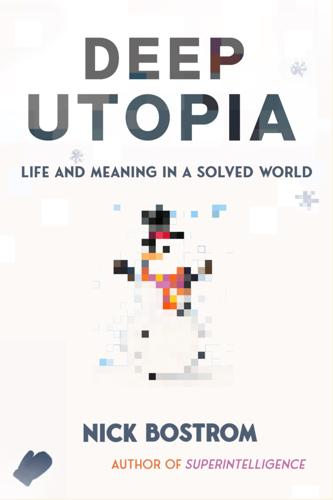
Deep Utopia: Life and Meaning in a Solved World
by
Nick Bostrom
Published 26 Mar 2024
Imagine how elated you would be now if this kind of habituation didn’t happen: if the joy you felt when you got your first toy truck remained undiminished to this day, and all subsequent joys—your first pair of skis, your first bicycle, your first kiss, your first promotion—kept stacking on top of each other. You’d be over the moon! Well, our limbic system (that old curmudgeon) puts paid to that. The hedonic treadmill continuously retreats under our feet, making us keep running while preventing us from ever getting to any fundamentally cheerier place. But how does this provide an incentive to work in a world of radical economic abundance? We may crave improvement, either for its own sake or as a means of getting a jolt of reward, but it still seems like this craving depends on there being other desires to define what counts as an improvement.
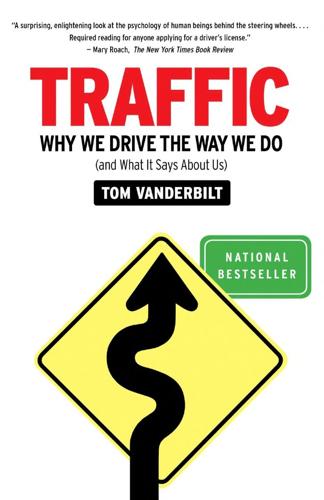
Traffic: Why We Drive the Way We Do (And What It Says About Us)
by
Tom Vanderbilt
Published 28 Jul 2008
Frey, “Stress That Doesn’t Pay Off: The Commuting Paradox” (September 2004), IZA Discussion Paper No. 1278, Zurich IEER Working Paper No. 151. Available at SSRN: http://ssrn.com/abstract=408220. grown the most: Robert H. Frank, Falling Behind (Berkeley: Univ. of California Press, 2007), p. 82. “hedonic adaptation”: See S. Frederick and G. Loewenstein, “Hedonic Adaptation,” in Scientific Perspectives on Enjoyment, Suffering, and Well-Being, ed. D. Kahneman, E. Diener, and N. Schwartz (New York: Russell Sage Foundation, 1999), pp. 303–29. more prone it is to variability: Nancy McGuckin and Nandu Srinivasan, “The Journey-to-Work in the Context of Daily Travel,” paper presented at the Transportation Research Board meeting, 2005.
…
A commuter who lives in the older suburb of Eagle Glen decides he wants to move to a new, bigger house in Fledgling Ridge. Getting the bigger house requires adding twenty minutes to his commute. This seems worth it because the bigger house provides such a boost to his quality of life. But gradually, that rosy glow fades. He quickly undergoes what psychologists call “hedonic adaptation.” Suddenly, the newer, bigger house just seems normal. Everyone else has the same newer, bigger house. Meanwhile, the commuter has lost time (more of which cannot be made, unlike money). This means less time to do the things that are shown to actually bring happiness. He’s locked into a longer commute, and studies show that the longer a commute is, the more prone it is to variability—to be longer or shorter than you expect.
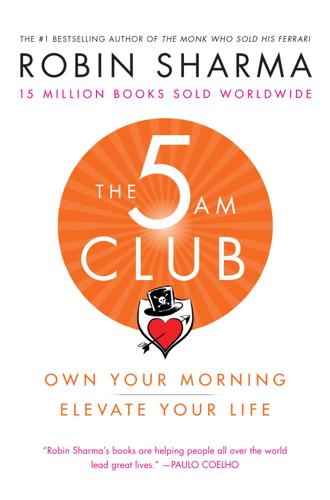
The 5 AM Club: Own Your Morning. Elevate Your Life.
by
Robin Sharma
Published 4 Dec 2018
Here’s how it read: The Billionaire’s Maxim #8 Continue Raising Your Life Standards Toward Absolute World-Class. Hedonic adaptation describes the psychological circumstance where human beings adapt to environmental and life changes. You receive the pay raise you’ve wanted for years, and you’re overjoyed for a day. Then, this new income level becomes your new normal. The joy you felt fades. Or, you move into a noisy apartment close to train tracks, yet over time you stop hearing the trains. Or maybe the dream car you just purchased staggers you with excitement until, after a few weeks, it becomes just another part of the scenery. These are examples of hedonic adaptation in operation. And the phenomenon unfolds for each of us, inside all our lives.

Tyler Cowen - Stubborn Attachments A Vision for a Society of Free, Prosperous, and Responsible Individuals
by
Meg Patrick
Frederick, Shane, “Cognitive Reflection and Decision Making,” Journal of Economic Perspectives, Fall 2005, 19, 4, 25-42. Frederick, Shane. “Valuing Future Life and Future Lives: A Framework for Understanding Discounting.” Journal of Economic Psychology, 2006, 27, 667-680. Frederick, Shane, and George Loewenstein. 1999. “Hedonic Adaptation.” In Daniel Kahneman, Ed Deiner, and Norbert Schwarz (eds.) Well-Being: The Foundations of Hedonic Psychology (302-329). New York: Russell Sage Foundation. Frederick, Shane, George Lewenstein, and Ted O’Donoghue. 2002. “Time Discounting and Time Preference: A Critical Review.” Journal of Economic Literature 40(2): 351-401.
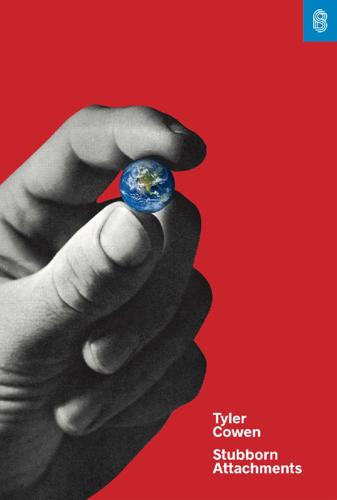
Stubborn Attachments: A Vision for a Society of Free, Prosperous, and Responsible Individuals
by
Tyler Cowen
Published 15 Oct 2018
“Cognitive Reflection and Decision Making.” Journal of Economic Perspectives 19, no. 4 (Fall): 25–42. Frederick, Shane. 2006. “Valuing Future Life and Future Lives: A Framework for Understanding Discounting.” Journal of Economic Psychology 27: 667–680. Frederick, Shane, and George Loewenstein. 1999. “Hedonic Adaptation.” In Well-Being: The Foundations of Hedonic Psychology, edited by Daniel Kahneman, Ed Diener, and Norbert Schwarz, 302–329. New York: Russell Sage Foundation. Frederick, Shane, George Loewenstein, and Ted O’Donoghue. 2002. “Time Discounting and Time Preference: A Critical Review.” Journal of Economic Literature 40, no. 2: 351–401.
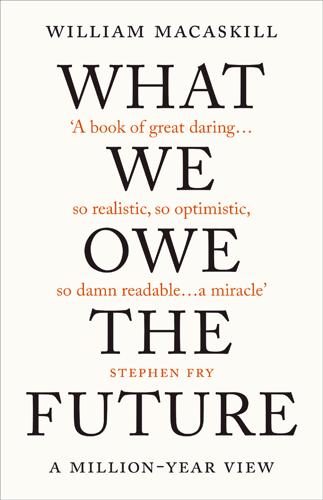
What We Owe the Future: A Million-Year View
by
William MacAskill
Published 31 Aug 2022
Ng 2008. 16. This is known as the “reference group effect” (Credé et al. 2010). 17. Ponocny et al. 2016, Table 3. Note that this is different to “hedonic adaptation,” which occurs when, after a chance in external life circumstances, someone returns to their previous, stable level of internal emotional state. For example, someone who permanently injured their leg in an accident might initially be quite unhappy, but over time they might hedonically adapt to their new condition and return to the level of happiness that they had previously had. Equally, someone who gets a promotion might initially be happier, but after a year or so their happiness would return to its prior state. 18.
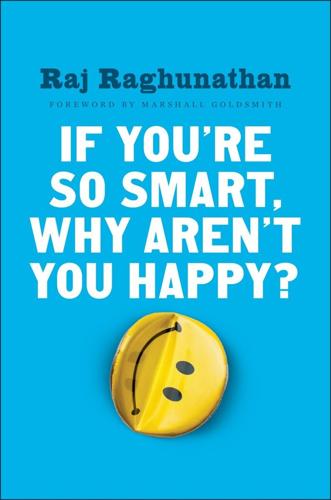
If You're So Smart, Why Aren't You Happy?
by
Raj Raghunathan
Published 25 Apr 2016
Raghunathan and J. R. Irwin, “Walking the Hedonic Product Treadmill: Default Contrast and Mood-Based Assimilation in Judgments of Predicted Happiness with a Target Product,” Journal of Consumer Research 28(3) (2001): 355–68. For a review of this topic (known as “hedonic adaptation”) see S. Frederick and G. Loewenstein, “Hedonic Adaptation,” in D. Kahneman, E. Diener, and N. Schwarz (eds.), Well-being: The Foundations of Hedonic Psychology (New York: Russell Sage Foundation, 1999). lottery winners are no happier than nonwinners: An early paper to document this phenomenon has, as you may know, become a classic.
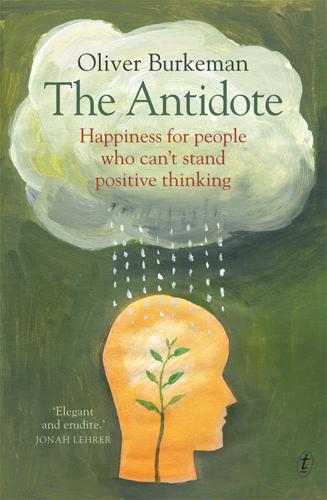
The Antidote: Happiness for People Who Can't Stand Positive Thinking
by
Oliver Burkeman
Published 1 Jul 2012
He calls it ‘negative visualisation’. The Stoics themselves, rather more pungently, called it ‘the premeditation of evils’. The first benefit of dwelling on how bad things might get is a straightforward one. Psychologists have long agreed that one of the greatest enemies of human happiness is ‘hedonic adaptation’ – the predictable and frustrating way in which any new source of pleasure we obtain, whether it’s as minor as a new piece of electronic gadgetry or as major as a marriage, swiftly gets relegated to the backdrop of our lives. We grow accustomed to it, and so it ceases to deliver so much joy.
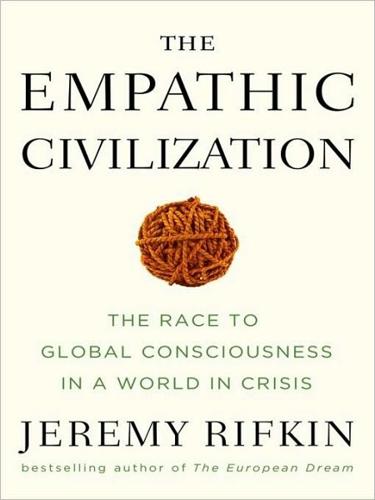
The Empathic Civilization: The Race to Global Consciousness in a World in Crisis
by
Jeremy Rifkin
Published 31 Dec 2009
We continually adjust to each new income level, and what were formerly considered luxuries quickly become necessities. Layard sums up the happiness syndrome. He writes:So living standards are to some extent like alcohol or drugs. Once you have a certain new experience, you need to keep on having more of it if you want to sustain your happiness. You are in fact on a kind of treadmill, a “hedonic” treadmill, where you have to keep running in order that your happiness stand still. 66 The happiness syndrome locks people into a race to despair. There is no way to get ahead of the game and find true happiness. The solution, of course, is clear, but it fl ies in the face of the Enlightenment idea that continuous acquisition of wealth increases one’s sense of autonomy and freedom, provides pleasure, and makes a person more happy.
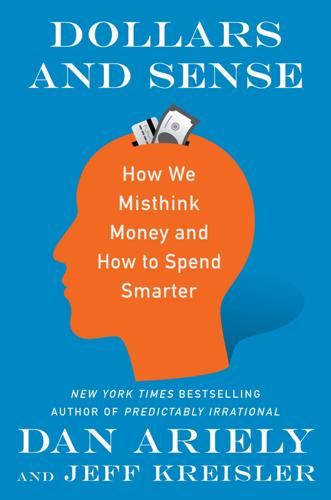
Dollars and Sense: How We Misthink Money and How to Spend Smarter
by
Dr. Dan Ariely
and
Jeff Kreisler
Published 7 Nov 2017
Marco Bertini (London Business School), Elie Ofek (Harvard Business School), and Dan Ariely (Duke), “The Impact of Add-On Features on Consumer Product Evaluations,” Journal of Consumer Research 36 (2009): 17–28. 13. Jordi Quoidbach (Harvard) and Elizabeth W. Dunn (University of British Columbia), “Give It Up: A Strategy for Combating Hedonic Adaptation,” Social Psychological and Personality Science 4, no. 5 (2013): 563–568. 14. Leonard Lee (Columbia University), Shane Frederick (MIT), and Dan Ariely (MIT), “Try It, You’ll Like It,” Psychological Science 17, no. 12 (2006): 1054–1058. CHAPTER 12: WE LOSE CONTROL 1. Polyana da Costa, “Survey: 36 Percent Not Saving for Retirement,” Bankrate, 2014, http://www.bankrate.com/finance/consumer-index/survey-36-percent-not-saving-for-retirement.aspx. 2.
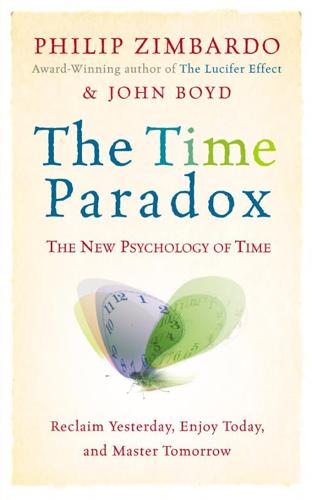
Time Paradox
by
Philip G. Zimbardo
and
John Boyd
Published 1 Jan 2008
Torrance, “The Utility of Different Health States as Perceived by the General Public,” Journal of Chronic Disease 31: 697–704 (1978); P. Dolan and D. Kahneman, “Interpretations of Utility and Their Implications for the Valuation of Health” (unpublished manuscript, Princeton University, 2005); and J. Riis et al., “Ignorance of Hedonic Adaptation to Hemo-Dialysis: A Study Using Ecological Momentary Assessment,” Journal of Experimental Psychology: General 134: 3–9 (2005). 14. P. Menzela et al., “The Role of Adaptation to Disability and Disease in Health State Valuation: A Preliminary Normative Analysis,” Social Science & Medicine 55: 2149–58 (2002). 15.
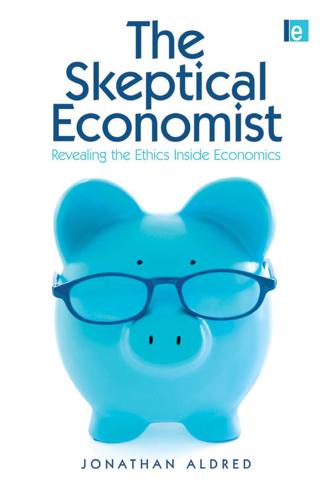
The Skeptical Economist: Revealing the Ethics Inside Economics
by
Jonathan Aldred
Published 1 Jan 2009
Daedalus Spring: 69-79 Frank, R., T. Gilovich and D. Regan (1993) ‘Does studying economics inhibit cooperation?’ Journal ofEconomic Perspectives 7(2): 159-171 Frank, R., T. Gilovich and D. Regan (1996) ‘Do economists make bad citizens?’ Journal of Economic Perspectives 10(1): 187-192 Frederick, S. and G. Loewenstein (1999) ‘Hedonic adaptation’ in Well-Being: The Foundations ofHedonic Psychology. D. Kahneman, E. Diener and N. Schwarz (eds) New York, Russell Sage Frederick, S., G. Loewenstein and T. O’Donoghue (2002) ‘Time discounting and time preference.’ Journal ofEconomic Literature 40: 351-401 Frey, B. (1997) ‘A constitution for knaves crowds out civic virtues.’
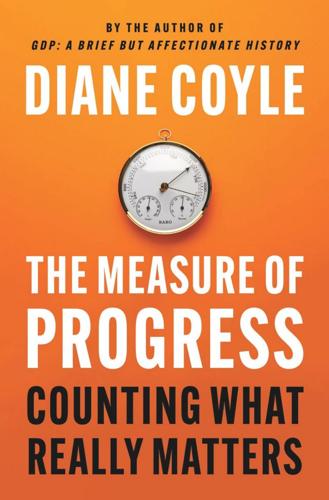
The Measure of Progress: Counting What Really Matters
by
Diane Coyle
Published 15 Apr 2025
However, some p eople are unpersuaded by statistical and empirical challenges to the paradox, insisting that the Easterlin results demonstrate that economic growth does not contribute to happiness. There are other tricky measurement issues in the well-being litera ture. One is the well-known “hedonic adaptation” phenomenon, whereby p eople evaluate their SWB response in relation to reference points or norms: p eople return to an apparent set point in their responses after a positive or negative life event. A less widely appreciated phenomenon is scale norming (Fabian 2022a), whereby respondents use qualitatively different scales to reply to the same question across different waves of a survey.
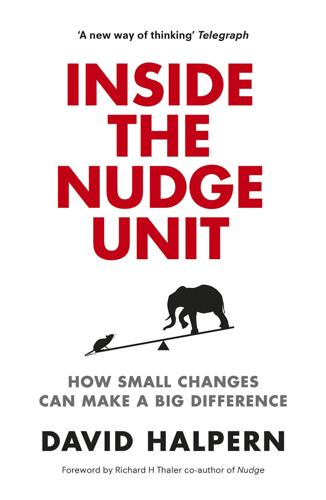
Inside the Nudge Unit: How Small Changes Can Make a Big Difference
by
David Halpern
Published 26 Aug 2015
In the words of a wonderful paper by Elizabeth Dunn and others, ‘If money doesn’t make you happy, then you probably aren’t spending it right’.12 For example, it appears that you should buy your kids experiences, rather than things, if you want to make them and yourself happier. Figure 35. Average life satisfaction versus GDP by country. The size of the points indicates population size. (Based on original plot by Angus Deaton using Gallup data.) Importantly, people often habituate to many material goods and circumstances, a process known as hedonic adaptation. When you first get your new car, it is a real source of pleasure, but after six months of sitting in traffic just like in your old car, that early buzz has substantially faded away. Such adaptation was famously argued by Richard Easterlin to be the leading contender for why Americans’ happiness had failed to increase since the 1950s despite steady increases in GDP, coining the term the Easterlin paradox.
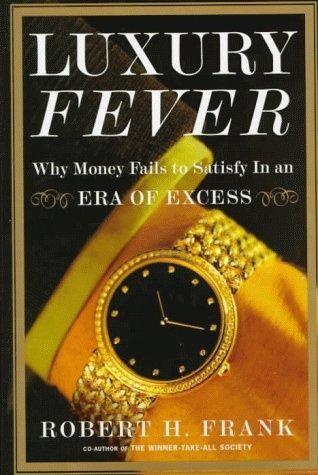
Luxury Fever: Why Money Fails to Satisfy in an Era of Excess
by
Robert H. Frank
Published 15 Jan 1999
Loewenstein, George, and David Schkade. “Wouldn’t It Be Nice? Predicting Future Feelings,” in Understanding Well-Being: Scientific Perspectives on Enjoyment and Suffering, ed. Daniel Kahneman, Ed Diener, and Norbert Schwartz, New York: Russell Sage, 1998. Loewenstein, George, and Shane Frederick. “Hedonic Adaptation: From the Bright Side to the Dark Side,” in Understanding Well-Being: Scientific Perspectives on Enjoyment and Suffering, ed. Daniel Kahneman, Ed Diener, and Norbert Schwartz, New York: Russell Sage, 1998. Long, L., and J. Perry. “Economic and Occupational Causes of Transit Operator Absenteeism: A Review of Research,” Transport Review 5, 1985: 247-67.
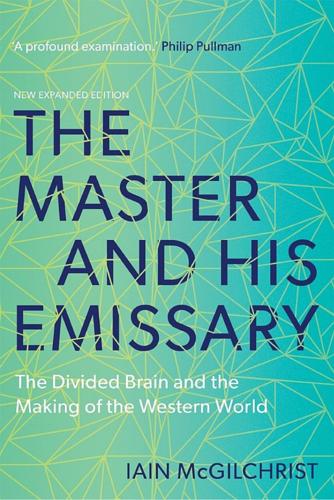
The Master and His Emissary: The Divided Brain and the Making of the Western World
by
Iain McGilchrist
Published 8 Oct 2012
Yet a repeated finding is that levels of happiness among the Japanese have not changed at all, and the latest data, before the current global economic crisis, showed a slight downturn.9 More recent evidence in Europe displays the same effect. The so-called Euro-Barometer surveys of satisfaction with life, covering fifteen European countries during the decade to 2000, shows four clusters, in each of which the consensus trend is horizontal or slightly negative.10 The hedonic treadmill makes sure of that: modern consumers everywhere are in a ‘permanent state of unfulfilled desire’.11 As usual Sam Johnson got there about a couple of centuries before the research: ‘Life is a progress from want to want, not from enjoyment to enjoyment.’12 Geoffrey Miller, a psychologist who has specialised in research into happiness, has found that a person’s age, sex, race, income, geographic location, nationality, and education level have only trivial correlations with happiness, typically explaining less than 2% of the variance.